St. Dorotheos: Even if we cannot endure much labor . . .
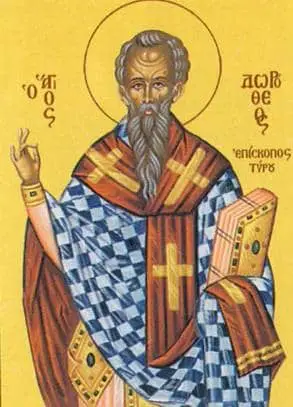
“Even if we cannot endure much labor because we are weak let us be set on humbling ourselves.”
— St. Dorotheos of Gaza

“Even if we cannot endure much labor because we are weak let us be set on humbling ourselves.”
— St. Dorotheos of Gaza
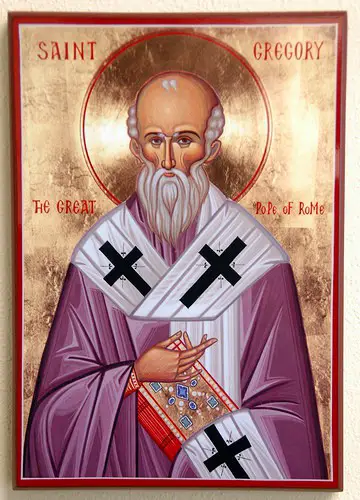
“Have confidence in the compassion of our Creator. Reflect well on what you are now doing, and keep before you the things you have done. Lift up your eyes to the overflowing compassion of heaven, and while He waits for you, draw near in tears to our merciful Judge. Having before your mind that He is a Just Judge, do not take your sins lightly; and having also in mind that He is compassionate, do not despair. The God-Man gives man confidence before God.”
— St. Gregory the Great
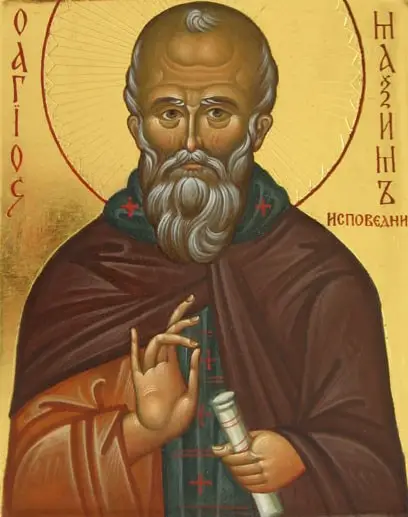
“There are said to be five reasons why God allows us to be assailed by demons. The first is so that, by attacking and counterattacking, we should learn to discriminate between virtue and vice. The second is so that, having acquired virtue through conflict and toil, we should keep it secure and immutable. The third is so that, when making progress in virtue, we should not become haughty but learn humility. The fourth is so that, having gained some experience of evil, we should ‘hate it with perfect hatred’ (cf. Ps. 139:22). The fifth and most important is so that, having achieved dispassion, we should forget neither our own weakness nor the power of Him who has helped us.”
+ St. Maximos the Confessor, Four Hundred Texts on Love 2.67, The Philokalia: The Complete Text (Vol. 2)
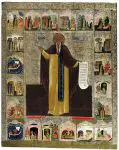
“If we detect any trace of hatred in our hearts against any man whatsoever for committing any fault, we are utterly estranged from love for God, since love for God absolutely precludes us from hating any man.”
– St. Maximus the Confessor
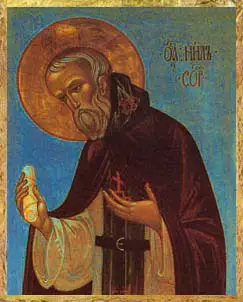
“Why do demons wish to excite in us gluttony, fornication, greed, anger, rancor and other passions? So that the mind, under their weight, should be unable to pray as it ought; for when the passions of our irrational part begin to act, they prevent the mind from acting rationally.”
— St. Nilus of Sinai

“Excessive care about worldly matters is characteristic of an unbelieving and fainthearted person, and woe to us, if, in taking care of ourselves, we do not use as our foundation our faith in God, who cares for us! If we do not attribute visible blessings to Him, which we use in this life, then how can we expect those blessings from Him which are promised in the future? We will not be of such little faith. By the words of our Savior, it is better first to seek the Kingdom of God, for the rest shall be added unto us (see Mt. 6:33).”
— St. Seraphim of Sarov
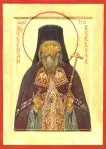
“Whatever you are doing, with whomever you are speaking, whether you are going somewhere or sitting, let your mind be with the Lord. You will forget yourself, and stray from this path; but again turn to the Lord and rebuke yourself with sorrow. This is the discipline of spiritual attentiveness.”
– St. Theophan the Recluse
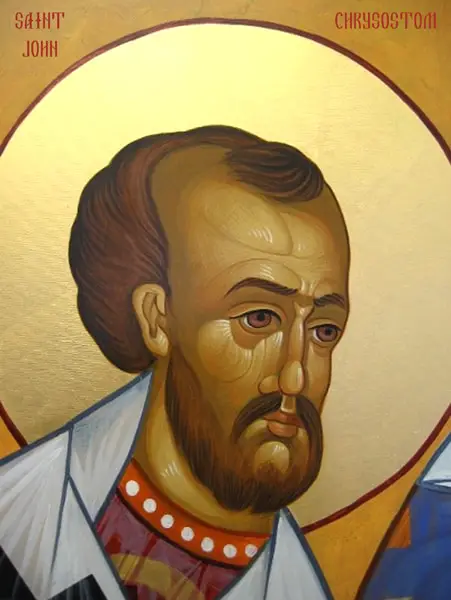
“When you are weary of praying, and dost not receive, consider how often you have heard a poor man calling upon you, and hast not listened to him, and he has not been angry nor insulted you.”
–St. John Chrysostom, Homily 11 on First Thessalonians
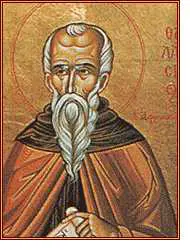
“Our memories can be stripped of passion through prayer, spiritual reading, self-control and love.”
+ St. Thalassios the Libyan, “On Love, Self-Control and Life in Accordance with the Intellect,” 3.37, The Philokalia: The Complete Text (Vol. 2)
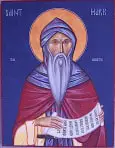
“Just as the bitterness of absinth helps a poor appetite, so misfortunes help a bad character. For the first benefits the physical condition, and the second leads to repentance.”
– St. Mark the Ascetic
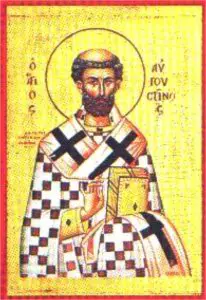
“Believe that others are better than you in the depths of their soul, although outwardly you may appear better than they.”
— St. Augustine
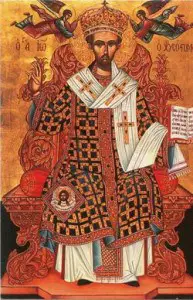
“Let us always guard our tongue; not that it should always be silent, but that it should speak at the proper time.”
— St. John Chrysostom

When, then, you make the sign of the cross on the forehead, arm yourself with a saintly boldness, and reinstall your soul in its old liberty; for you are not ignorant that the cross is a prize beyond all price.
Consider what is the price given for your ransom, and you will never more be slave to any man on earth. This reward and ransom is the cross. You should not then, carelessly make the sign on the forehead, but you should impress it on your heart with the love of a fervent faith. Nothing impure will dare to molest you on seeing the weapon, which overcometh all things.
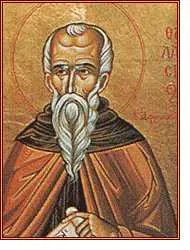
“If you share secretly in the joy of someone you envy, you will be freed from your jealousy; and you will also be freed from your jealousy if you keep silent about the person you envy.”
+ St. Thalassios the Libyan, “On Love, Self-Control and Life in Accordance with the Intellect,” 3.57, The Philokalia: The Complete Text (Vol. 2)
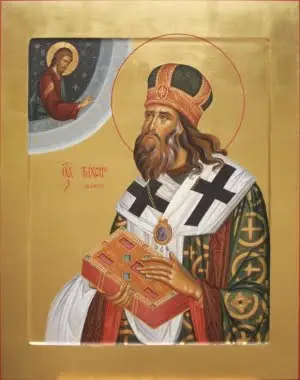
“If we want, Christian, to have our heart filled with divine love we must first empty them of the love of this world, its frivolous and sinful customs and then turn our hearts to the one God, our only good and happiness and eternal beatitude.”
— St. Tikhon of Zadonsk, “True Christianity”
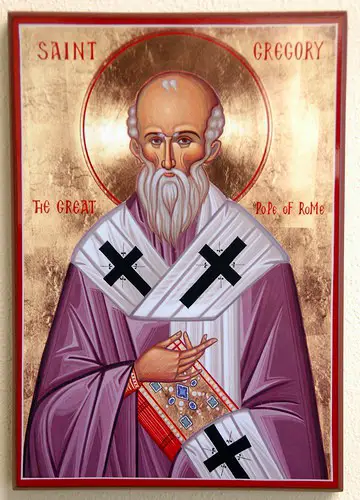
“Have confidence in the compassion of our Creator. Reflect well on what you are now doing, and keep before you the things you have done. Lift up your eyes to the overflowing compassion of heaven, and while He waits for you, draw near in tears to our merciful Judge. Having before your mind that He is a Just Judge, do not take your sins lightly; and having also in mind that He is compassionate, do not despair. The God-Man gives man confidence before God.”
— St. Gregory the Great
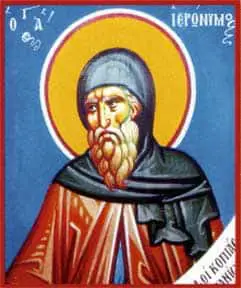
”Dwell not in the temple of idols . . . Do you not hear the great St. Paul, who says in other words, ‘Do not read either the pagan philosophers, or the orators, or the poets; do not repose in the study of their works.’ Let us not be too confident that we shall not believe the things we read. It is a crime to drink at the same time of the chalice of Jesus Christ and that of the demons.”
— St. Jerome

“We are fools for Christ’s sake” (1 Corinthians 4:10).
Thus speaks the great Apostle Paul who in the beginning was guided by worldly wisdom, which is against Christ, until he recognizes the falsehood and decay of the wisdom of the world and the light and stability of the wisdom of Christ. Then, the holy apostle did not become angry with the world because they called him “a fool for Christ’s sake” neither did he, in defiance of the world, hesitate to be called by this name.
It is not of any value to us how the world is going to regard or call us. However, it is important, and extremely important, how the holy angels in the heavens will regard and call us when, after death, we meet with them. This is of crucial importance and everything else is nothing.
Either we are fools for the world because of Christ or we are fools for Christ because of the world. O how short-lived is the sound of a word of the world! If the world would say to us “fool,” the world will die and its word will die! What then is the value of its word? But if the heavenly, immortal ones say to us “fool,” that will neither die nor is it removed from us as eternal condemnation.
Whoever does not believe in the Living God, nor in eternal life, nor in the Incarnation of the Lord Christ, nor in Christ’s Resurrection nor in the truth of the Gospel nor in God’s eternal mercy and justice – is it any wonder if he considers that one a fool who does believes in all of this?
O, may every one of us who cross ourselves with the Sign of the Cross not only find it easy to endure but with satisfaction receive the name “fool” for Christ’s sake! Let us rejoice and be glad if the non-believers call us such, for that means that we are close to Christ and far away from the non-believers. Let us rejoice and be glad and repeat with a powerful echo in the ears of the world: yes, yes, indeed we are fools for Christ’s sake!
O Lord Most-wise, strengthen us by Your power that we not fear the non-believing world neither when they lash us with whips nor when they insult us with words for Your sake.
+ St. Nikolai Velimirovich, Homily for February 22, Prologue of Ohrid
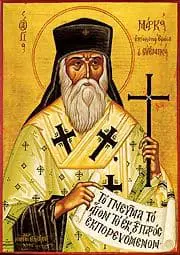
“If you do not want to suffer evil, do not inflict it, since the suffering of it inevitably follows its infliction. ‘For whatever a man sows he will also reap’ (Gal. 6:7).”
+ St. Mark the Ascetic
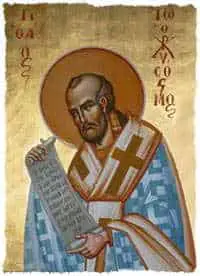
“Every family should have a room where Christ is welcome in the person of the hungry and thirsty stranger.”
— St. John Chrysostom
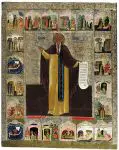
“The person who truly wishes to be healed is he who does not refuse treatment. This treatment consists of the pain and distress brought on by various misfortunes. He who refuses them does not realize what they accomplish in this world or what he will gain from them when he departs this life.”
– St. Maximos the Confessor, Third Century on Love, 82
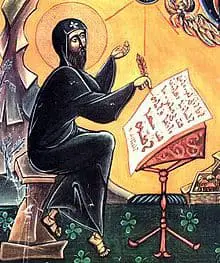
“Blessed the one who farms fair and good thoughts each day and by hope conquers the wicked passion of despondency, by which the Lord’s ascetics are warred upon.”
–St. Ephrem of Syria
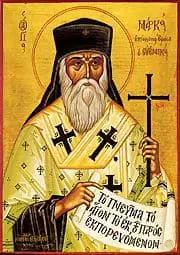
“Guard your mind, and you will not be harassed by temptations. But if you fail to guard it, accept patiently whatever trial comes.”
— St. Mark the Ascetic
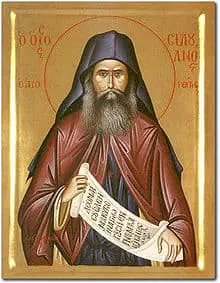
“The Lord wants us to love one another. Here is freedom: in love for God and neighbor. In this freedom, there is equality. In earthly orders, there may not be equality, but this is not important for the soul. Not everyone can be a king, not everyone a patriarch or a boss. But in any position it is possible to love God and to please Him, and only this is important. And whoever loves God more on earth will be in greater glory in His Kingdom.”
+ St. Silouan the Athonite, Wisdom from Mount Athos: The Writings of Staretz Silouan, 1866-1938, VI.23
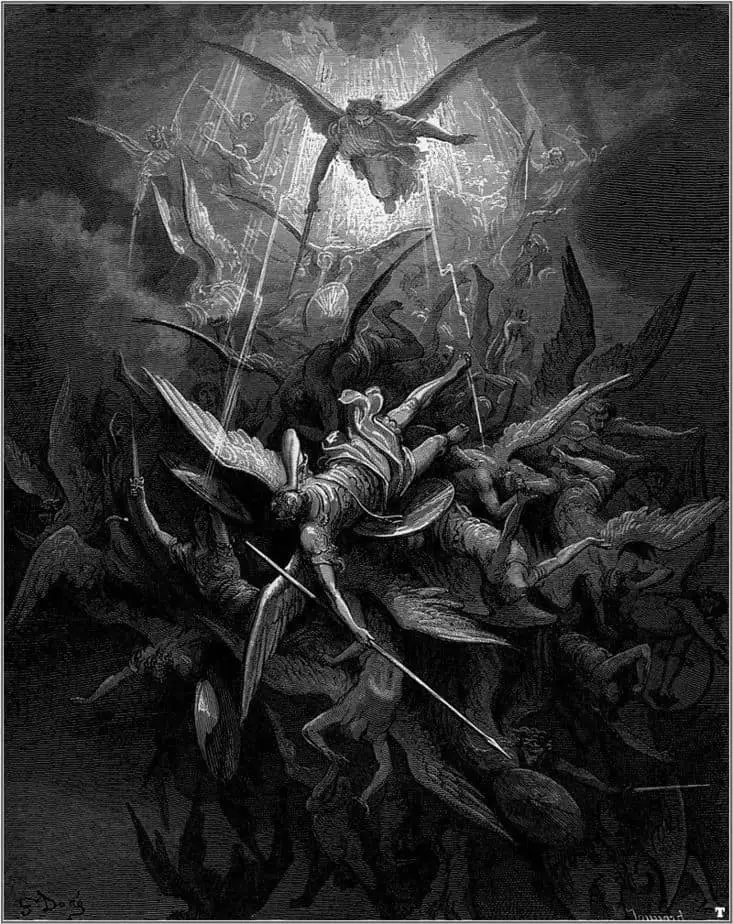
“He who fears God will pay careful attention to his soul and will free himself from communion with evil.”
+ St. Thalassios the Libyan, “On Love, Self-Control and Life in Accordance with the Intellect,” 2.63, The Philokalia: The Complete Text (Vol. 2)
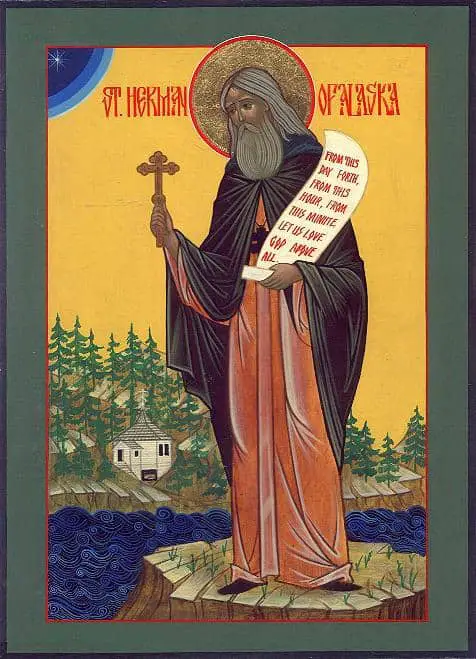
“And I, a sinner, have been trying to love God for more than forty years, and cannot say that I perfectly love Him. If we love someone we always remember him and try to please him; day and night our heart is occupied with that object.
Is that how you, gentlemen, love God? Do you often turn to Him, do you always remember Him, do you always pray to Him and fulfill His holy commandments? ‘For our good, for our happiness at least let us make a vow that from this day, from this hour, from this minute we shall strive to love God above all else and to fulfill His holy will.’”
+ St. Herman of Alaska
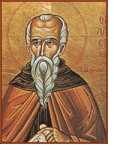
“Christ, Master of all, free us from all these destructive passions and the thoughts born of them.”
– St. Thalassios the Libyan

“Do not do anything without signing yourself with the sign of the Cross! When you depart on a journey, when you begin your work, when you go to study, when you are alone, and when you are with other people, seal yourself with the Holy Cross on your forehead, your body, your chest, your heart, your lips, your eyes, your ears. All of you should be sealed with the sign of Christ’s victory over hell. Then you will no longer be afraid of charms, evil spirits, or sorcery, because these are dissolved by the power of the Cross like wax before fire and like dust before the wind.”
— Elder Cleopa
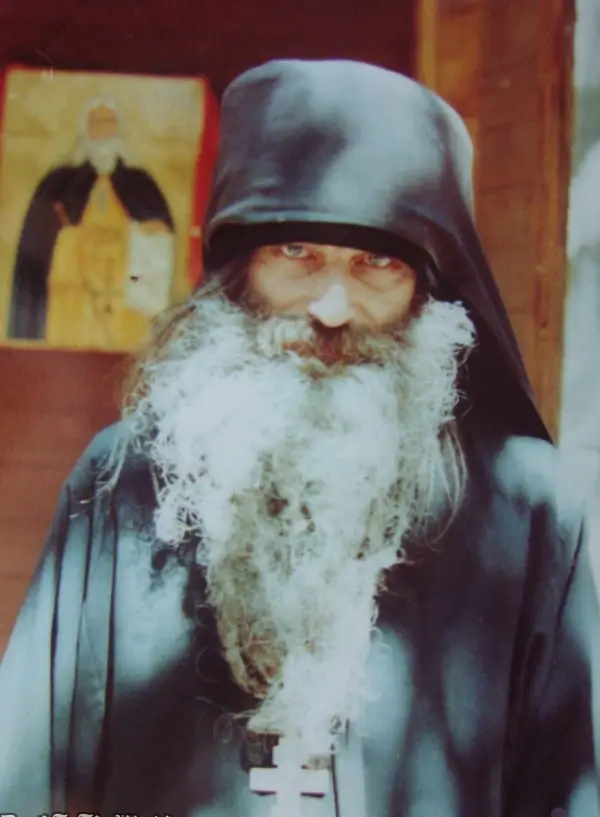
“It is later than you think! Hasten, therefore, to do the work of God.”
+ Fr. Seraphim Rose, Fr. Seraphim Rose: His Life and Works
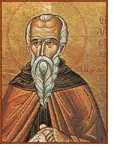
“There are three ways through which thoughts arise in you: through the senses, through the memory, and through the body’s temperament. Of these the most irksome are those that come through the memory.”
– St. Thalassios the Libyan
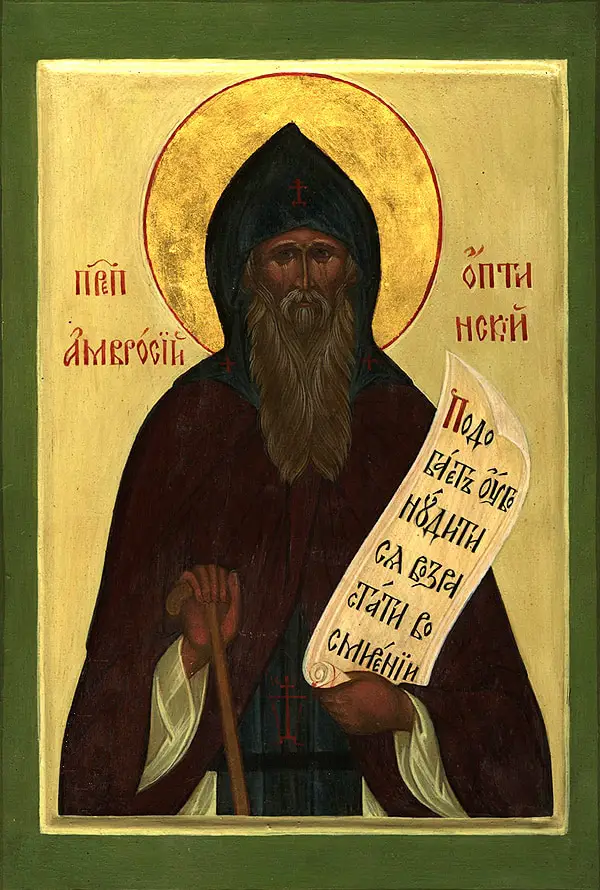
In vain do some of the Orthodox marvel at the current propaganda of the Roman Church, at the feigned selflessness and activity of her missionaries and at the zeal of the Latin sisters of mercy, and incorrectly ascribe to the Latin Church such importance, as if by her apostasy from the Orthodox Church, the latter remained longer such, and has the necessity to seek unification with the former. On rigorous examination, this opinion proves to be false; and the energetic Latin activity not only does not evoke surprise, but, on the contrary, arouses deep sorrow in the hearts of right-thinking people, who understand the truth.
The Eastern Orthodox Church, from apostolic times until now, observes unchanged and unblemished by innovations both the Gospel and Apostolic teachings, as well as the Tradition of the Holy Fathers and resolutions of the Ecumenical Councils, at which God-bearing men, having gathered from throughout the entire world, in a conciliar manner composed the divine Symbol of the Orthodox Faith [the Creed], and having proclaimed it aloud to the whole universe, in all respects perfect and complete, forbade on pain of terrible punishments any addition to it, any abridging, alteration, or rearrangement of even one iota of it. The Roman Church departed long ago into heresy and innovation. As far back as Basil the Great, certain bishops of Rome were condemned by him in his letter to Eusebius of Samosata, ‘They do not know and do not wish to know the truth; they argue with those who proclaim the truth to them, and assert their heresy.’
— St. Ambrose of Optina, “A Reply to One Well Disposed Towards the Latin Church: Regarding the unjust glory of the papists in the imaginary dignity of their Church”
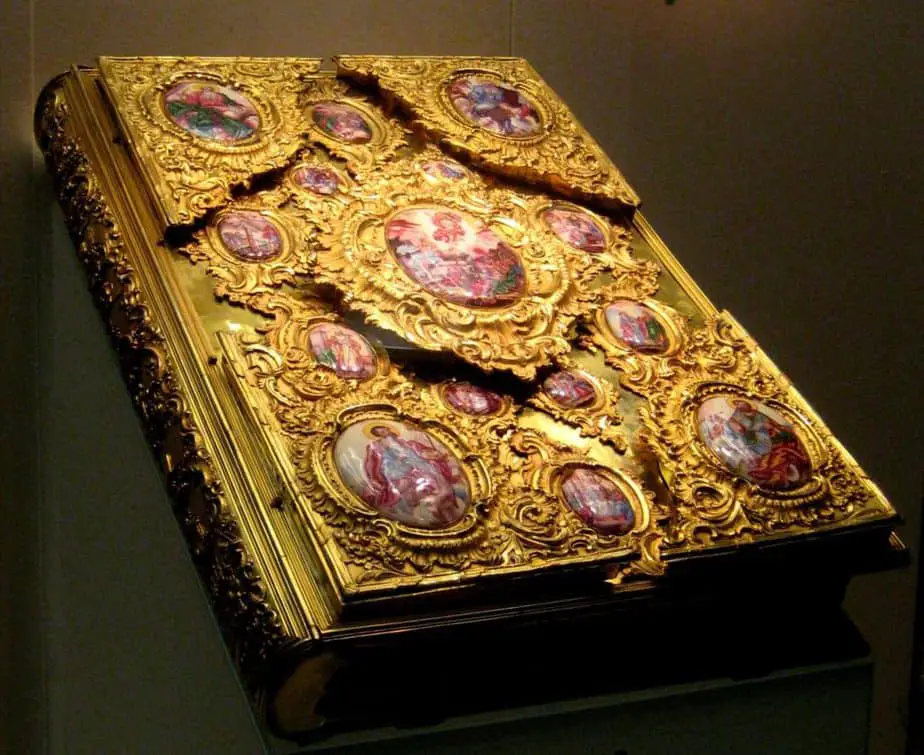
“Understand the words of Holy Scripture by putting them into practice, and do not fill yourself with conceit by elaborating on theoretical ideas.”
+ St. Mark the Ascetic, On the Spiritual Law Two Hundred Texts, The Philokalia: The Complete Text (Vol. 1)
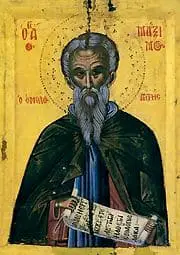
“Cleanse your intellect from anger, rancor and shameful thoughts, and you will be able to perceive the indwelling of Christ.”
+ St. Maximos the Confessor, Four Hundred Texts on Love 4.76, The Philokalia: The Complete Text (Vol. 2)
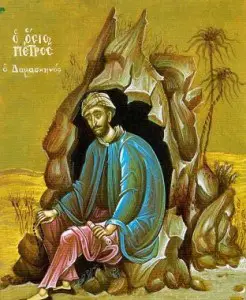
“As St John of Damaskos says, without attentiveness and watchfulness of the intellect we cannot be saved and rescued from the devil, who walks about ‘like a roaring lion, seeking whom he may devour’ (1 Pet. 5:8). For this reason the Lord often said to His disciples, ‘Watch and pray; for you do not know at what hour your Lord is coming’ (Matt. 26:41, 24:42). Through them He was giving a warning to us all about the remembrance of death, so that we should be prepared to offer a defense, grounded in works and attentiveness, that will be acceptable to God. For the demons, as St Hilarion has said, are immaterial and sleepless, concerned only to fight against us and to destroy our souls through word, act and thought. We lack a similar persistence, and concern ourselves now with our comfort and with ephemeral opinion, now with worldly matters, now with a thousand and one other things. We are not in the least interested in examining our life, so that our intellect may develop the habit of so doing and may give attention to itself unremittingly.”
+ St. Peter of Damaskos, “Book I: A Treasury of Divine Knowledge,” The Philokalia: The Complete Text (Vol. 3)
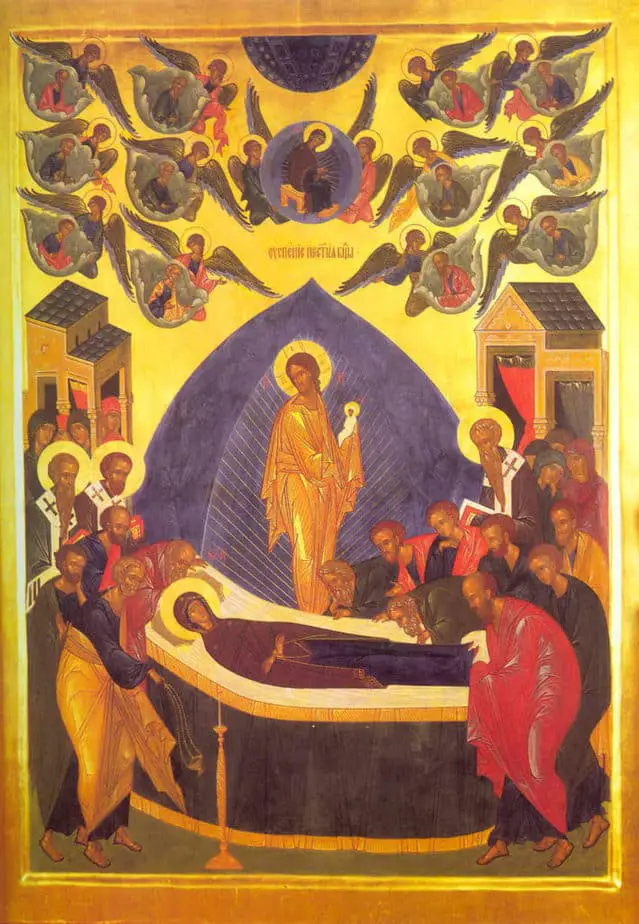
Feast of the Dormition of the Theotokos
Kontakion (Tone 2)
The grave and death could not hold the Mother of God, who is sleepless in her intercessions and an unchanging hope in her meditations. For as the Mother of Life she was transferred to life by Him Who dwelt in her ever-virgin womb.
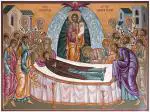
“Today the Holy Church solemnly glorifies the honorable Dormition or translation of the Mother of God from earth to heaven. A wonderful translation – she died without serious illness, peacefully. Her soul is taken up in the divine hands of Her Son and carried up into the heavenly abode, accompanied by the sweet singing of angels. And then, her most pure body is transferred by the apostles to Gethsemane where it is honorably buried, and on the third day it is resurrected and taken up to heaven. You see this on the icon of the Dormition of the Theotokos. On it is represented the life-bearing body of the Theotokos laying on a bier, surrounded by the apostles and hierarchs, and in the center of the icon the Lord holding in His hands the most pure soul of the Theotokos. The translation of the Mother of God is a paradigm of the translation in general of the souls of Christians to the other world.”
– St. John of Kronstadt, Sermon on the Dormition of the Theotokos
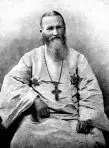
“We say that our dead have ‘fallen asleep’ or ‘passed away.’ What does this mean? This means that for the true Christian there is no death. Death was conquered by Christ on the cross. But there is a translation, i.e, a rearrangement of his condition, i.e. his soul is in another place, in another age, in another world beyond the grave, eternal, without end, that is what is meant by “falling asleep”. It is as if it were a temporary dream after which, by the voice of the Lord and the fearful yet wonderful trumpet of the Archangel, all the dead shall live and come forth each to his place: either to the resurrection of life or to the resurrection of condemnation (John 5:29). This is what the Christian means by translation. We should be ready for this translation, for the day of the general resurrection and judgment, for this indescribable world event, recorded in the Holy Scriptures.
This preparation for the meeting of the heavenly King before the dread judgment seat, after death, is essentially the person’s preparation throughout the whole of his life. This preparation means a change in all his thoughts, and the moral change of all his being, so that the whole man would be pure and white as snow, washing clean everything that defiles the body and spirit, so that he is adorned with every virtue: repentance, meekness, humility, gentleness, simplicity, chastity, mercifulness, abstention, spiritual contemplation, and burning love for God and neighbor.”
– St. John of Kronstadt, Sermon on the Dormition of the Theotokos
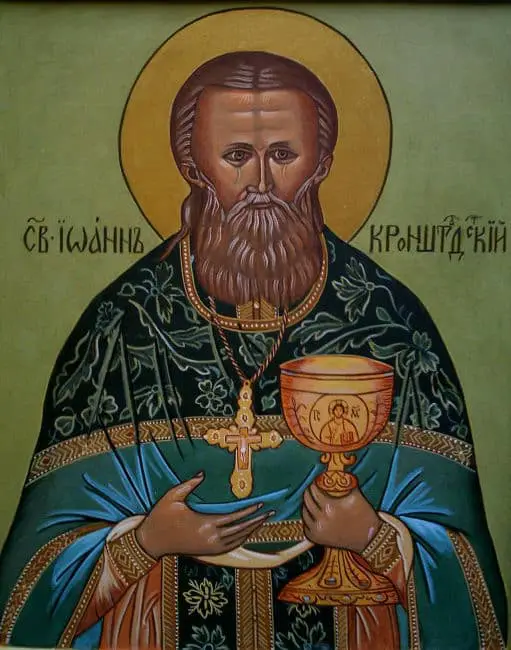
“Our preparation for meeting the heavenly King, and for the inheritance of eternal life in heaven, should consist of these things. The heavenly King desires souls adorned with immutable virtue, souls prepared so that the Very Lord Himself could abide in them. Do not marvel that the Very Lord wants to live in us. In fact the human soul is more spacious than the heavens and the earth, for it exists in the image of God. And if one removes sins from the soul, the Lord of all will settle in it and will fill it with Himself. “We will come to him and make our dwelling with him” (John 14:23), says the Lord about the souls who love Him.
And so, ye participants in the Christian feasts, and especially the present feast of the Dormition of the Mother of God, ye who are brightly adorned with every virtue and translated to the heavenly kingdom, to Her Son and God, proclaim to each and every one about preparing their souls to be the dwelling place of the Lord, about continual repentance, and about the incorruptible adornment of Christian virtue. Let your death also be unashamed and peaceful, serving as the pledge of a good answer at the dread judgment seat of Christ. Amen.”
— St. John of Kronstadt, Sermon on the Dormition of the Theotokos
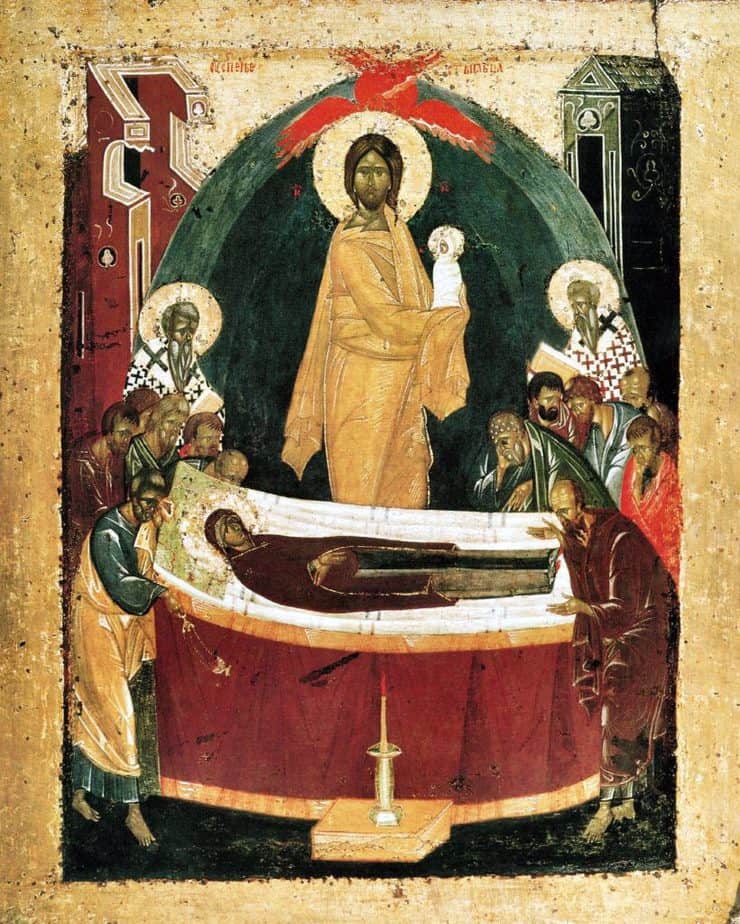
In giving birth thou didst keep thy virginity, and in thy falling asleep thou didst not forsake the world, O Mother of God. Thou didst pass on to life, since thou art the Mother of Life, and by thy intercessions thou redeemest our souls from death.
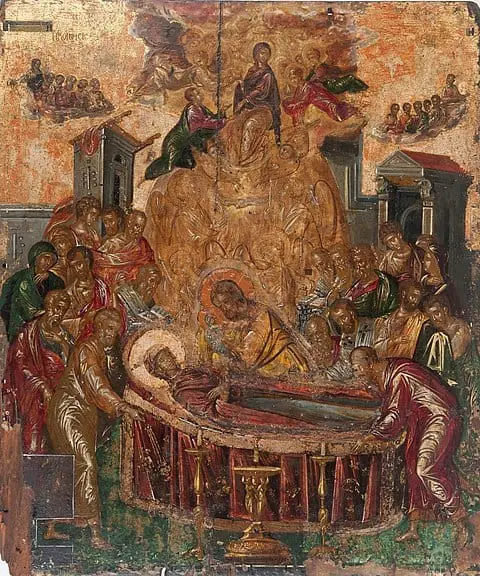
“Let us be happy, beloved brothers and sisters that we belong to the Holy Orthodox Church, worthily and rightly glorifying the Most Holy Sovereign Theotokos on this eminent day out of all the days of the year with special solemnity. There exists on earth many societies and entire governments that do not consider the need nor the obligation to call upon and glorify the Queen of heaven and earth, the Mother of Our Divine Lord Jesus Christ, and other saints and angels; to submissively serve Her lovingly, as the true Mother of God. Sadly in Russia nowadays we have heretics (among us) who actively dishonor the Mother of God, the saints, their icons, their relics and their festivals. O, if only they also unanimously with us glorified the worthy Queen of heaven and earth!”
— St. John of Kronstadt, Sermon on the Dormition of the Theotokos
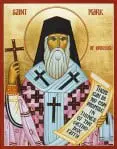
“The Latins are not only schismatics but heretics… we did not separate from them for any other reason other than the fact that they are heretics. This is precisely why we must not unite with them unless they dismiss the addition from the Creed filioque and confess the Creed as we do.”
– St. Mark of Ephesus
The perfect person does not only try to avoid evil. Nor does he do good for fear of punishment, still less in order to qualify for the hope of a promised reward.
The perfect person does good through love.
His actions are not motivated by desire for personal benefit, so he does not have personal advantage as his aim. But as soon as he has realized the beauty of doing good, he does it with all his energies and in all that he does.
He is not interested in fame, or a good reputation, or a human or divine reward.
The rule of life for a perfect person is to be in the image and likeness of God.
+ Clement of Alexandria
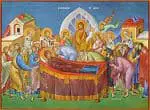
Today the universe dances with joy at your glorious memorial,
And cries out to you, O Mother of God:
“Rejoice, O Virgin, pride of Christians!”

“Love does not reflect. Love is simple. Love never mistakes. Likewise believe and trust without reflection, for faith and trust are also simple; or better: God, in whom we believe and in whom we trust, is an incomplex Being, as He is also simply love.”
— St. John of Kronstadt

“When the demons expel self-restraint from your intellect and besiege you with thoughts of unchastity, turn to the Lord with tears and say, ‘Now they have driven me out and encircled me’ (Ps. 17:11. LXX); ‘Thou art my supreme joy: deliver me from those who encircle me’ (Ps. 32:7. LXX). Then you will be safe.”
– St. Maximos the Confessor
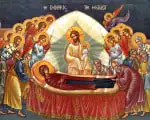
Dance with joy, O peoples!
Clap your hands with gladness!
Gather today with fervor and jubilation;
Sing with exultation.
The Mother of God is about to rise in glory,
Ascending from earth to heaven.
We ceaselessly praise her in song as truly Theotokos.
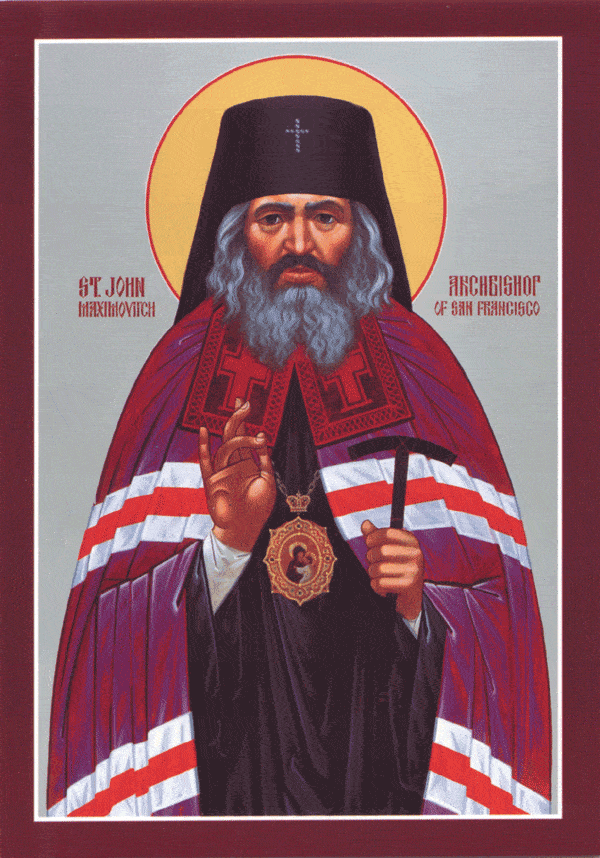
In the prophet Ezekiel (9:6) it is said that when the Angel of the Lord was sent to punish and destroy the sinning people, it was told him not to strike those on whom the “mark” had been made. In the original text this mark is called “tau,” the Hebrew letter corresponding to the letter “T,” which is how in ancient times the cross was made, which then was an instrument of punishment.
And so, even then was foretold the power of the Cross, which preserves those who venerate it. Likewise by many other events in the Old Testament the power of the Cross was indicated. Moses, who held his arms raised in the form of a cross during the battle, gave victory to the Israelites over the Amalekites. He also, dividing the Red Sea by a blow of his rod and by a transverse blow uniting the waters again, saved Israel from Pharaoh, who drowned in the water, while Israel crossed over on the dry bottom (Exodus, Chs. 14, 17).
Through the laying on of his hands in the form of a cross on his grandsons, Jacob gave a blessing to his descendants, foretelling at the same time their future until the coming of the “expectation of the nations” (Genesis, Ch. 48).
By the Cross, the Son of God having become man, accomplished our salvation. He humbled Himself and became obedient unto death, even the death of the Cross (Phil. 2:8). Having stretched out His hands upon the Cross, the Saviour with them, as it were, embraced the world, and by His blood shed on it, like a king with red ink, He signed the forgiveness of the human race.
The Cross of the Lord was the instrument by which He saved the world after the fall into sin. Through the Cross, He descended with His soul into hell so as to raise up from it the souls who were awaiting Him. By the Cross, Christ opened the doors of paradise which had been closed after our first ancestors had been banished from it. The Cross was sanctified by the Body of Christ which was nailed to it when He gave Himself over to torments and death for the salvation of the world, and it itself was then filled with life-giving power. By the Cross on Golgotha, the prince of this world was cast out (John 12:31) and an end was put to his authority. The weapon by which he was crushed became the sign of Christ’s victory.
The demonic hosts tremble when they see the Cross, for by the Cross the kingdom of hell was destroyed. They do not dare to draw near to anyone who is guarded by the Cross.
The whole human race, by the death of Christ on the Cross, received deliverance from the authority of the devil, and everyone who makes use of this saving weapon is inaccessible to the demons.
When legions of demons appeared to St. Anthony the Great and other desert-dwellers, they guarded themselves with the Sign of the Cross, and the demons vanished.
When they appeared to Saint Symeon the Stylite, who was standing on his pillar, what seemed to be a chariot to carry him to heaven, the Saint, before mounting it, crossed himself; it disappeared and the enemy, who had hoped to cast down the ascetic from the height of his pillar, was put to shame.
One cannot enumerate all the separate examples of the manifestation of the power of the Cross in various incidents. Invisibly and unceasingly there gushes from it the Divine grace that saves the world.
The Sign of the Cross is made at all the Mysteries and prayers of the Church. With the making of the Sign of the Cross over the bread and wine, they become the Body and Blood of Christ. With the immersion of the Cross, the waters are sanctified. The Sign of the Cross looses us from sins. “When we are guarded by the Cross, we oppose the enemy, not fearing his nets and barking.” Just as the flaming sword in the hands of the Cherubim barred the entrance into paradise of old, so the Cross now acts invisibly in the world, guarding it from perdition.
The Cross is the unconquerable weapon of pious kings in the battle with enemies. Through the apparition of the Cross in the sky, the dominion of Emperor Constantine was confirmed and an end was put to the persecution against the Church. The apparition of the Cross in the sky in Jerusalem in the days of Constantius the Arian proclaimed the victory of Orthodoxy. By the power of the Cross of the Lord, Christian kings reign and will reign until Antichrist, barring his path to power and restraining lawlessness (Saint John Chrysostom, Commentary on 11 Thes. 2:6-7).
The “sign of the Son of Man” (Matt. 24:30), that is, the Cross, will appear in the sky in order to proclaim the end of the present world and the coming of the eternal Kingdom of the Son of God. Then all the tribes of the earth shall weep, because they loved the present age and its lusts, but all who have endured persecution for righteousness and called on the name of the Lord shall rejoice and be glad. The Cross then will save from eternal perdition all who conquered temptations by the Cross, who crucified their flesh with its passions and lusts, and took up their cross and followed their Christ.
But those who hated the Cross of the Lord and did not engrave the Cross in their soul will perish forever. For “the Cross is the preserver of the whole universe, the Cross is the beauty of the Church, the Cross is the might of kings, the Cross is the confirmation of the faithful, the Cross is the glory of angels and the scourge of demons” (Monday Matins).
— St. John Maximovitch
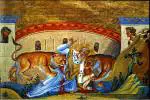
“All the ends of the world, and all the kingdoms of this earth, shall profit me nothing. It is better for me to die for the sake of Jesus Christ, than to reign over all the ends of the earth. ‘For what is a man profited, if he gain the whole world, but lose his own soul?’ I long after the Lord, the Son of the true God and Father, even Jesus Christ. Him I seek, who died for us and rose again. Pardon me, brethren: do not hinder me in attaining to life; for Jesus is the life of believers. Do not wish to keep me in a state of death,for life without Christ is death. While I desire to belong to God, do not ye give me over to the world. Suffer me to obtain pure light: when I have gone thither, I shall indeed be a man of God. Permit me to be an imitator of the passion of Christ, my God. If any one has Him within himself, let him consider what I desire, and let him have sympathy with me, as knowing how I am straitened.”
— St. Ignatius, Epistle to the Romans, Chapter 6
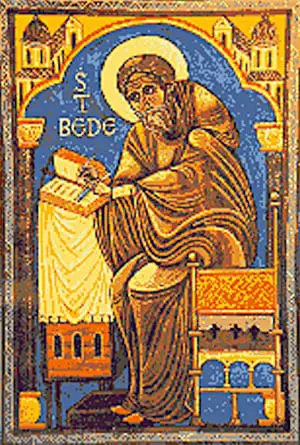
“‘You believe that God is one. You do well. The demons also believe, and they tremble.’ (James 2:19)
They alone know how to believe in God who love God, who are Christians not only in name but also in action and [way of] life, because without love faith is empty. With love, it is the faith of a Christian —without love, the faith of a demon.”
— St. Bede the Venerable, Commentary on James
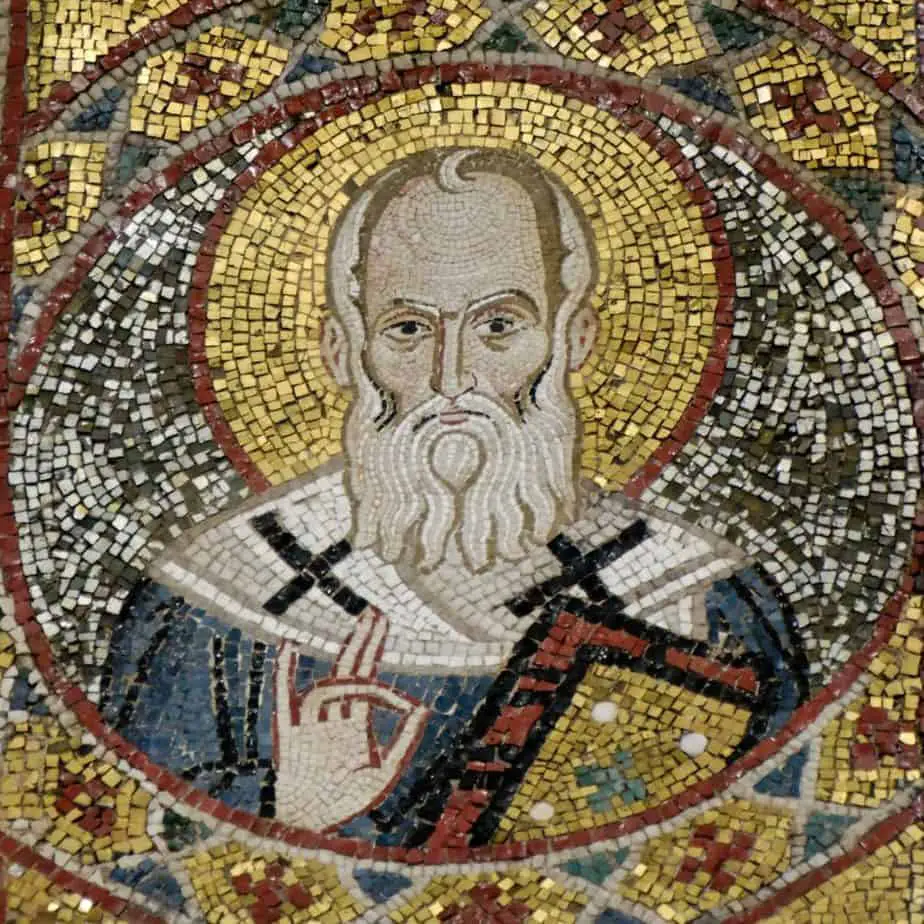
But since they neglect every path of righteousness, and look only to this one point, namely, which of the propositions submitted to them they shall bind or loose, (like those persons who in the theatres perform wrestling matches in public, but not that kind of wrestling in which the victory is won according to the rules of the sport, but a kind to deceive the eyes of those who are ignorant in such matters, and to catch applause), and every marketplace must buzz with their talking; and every dinner party be worried to death with silly talk and boredom; and every festival be made unfestive and full of dejection, and every occasion of mourning be consoled by a greater calamity—their questions—and all the women’s apartments accustomed to simplicity be thrown into confusion and be robbed of its flower of modesty by the torrent of their words…since, I say this is so, the evil is intolerable and not to be borne, and our Great Mystery is in danger of being made a thing of little moment. Well then, let these spies bear with us, moved as we are with fatherly compassion, and as holy Jeremiah says, torn in our hearts; let them bear with us so far as not to give a savage reception to our discourse upon this subject; and let them, if indeed they can, restrain their tongues for a short while and lend us their ears. However that may be, you shall at any rate suffer no loss. For either we shall have spoken in the ears of them that will hear, and our words will bear some fruit, namely an advantage to you (since the Sower soweth the Word upon every kind of mind; and the good and fertile bears fruit), or else you will depart despising this discourse of ours as you have despised others, and having drawn from it further material for gainsaying and railing at us, upon which to feast yourselves yet more…
Not to every one, my friends, does it belong to philosophize about God; not to every one; the Subject is not so cheap and low; and I will add, not before every audience, nor at all times, nor on all points; but on certain occasions, and before certain persons, and within certain limits.
— Gregory of Nazianzus, First Theological Oration
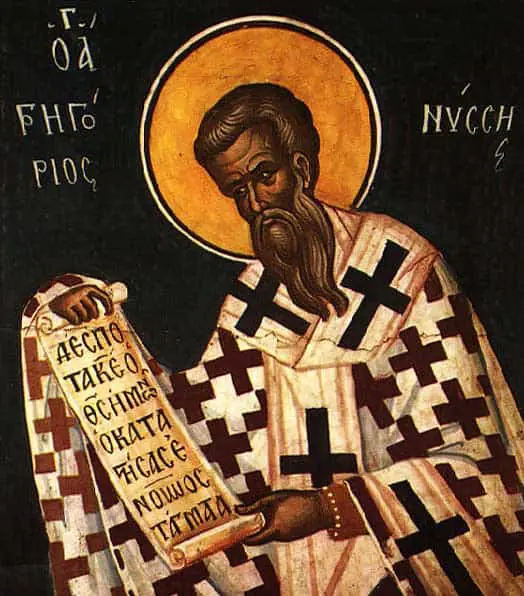
” …and that we might receive the teaching concerning the transcendent nature of the Deity which is given to us, as it were, ‘through a glass darkly’ from the older Scriptures,—from the Law, and the Prophets, and the Sapiential Books, as an evidence of the truth fully revealed to us, reverently accepting the meaning of the things which have been spoken, so as to accord in the faith set forth by the Lord of the whole Scripture, which faith we guard as we received it, word for word, in purity, without falsification, judging even a slight divergence from the words delivered to us an extreme blasphemy and impiety.”
— St. Gregory of Nyssa, Against Eunomius
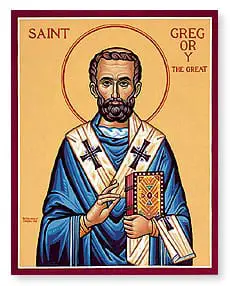
“It is better that scandals arise than the truth be suppressed.”
— St. Gregory the Great, Homilies on Ezekiel
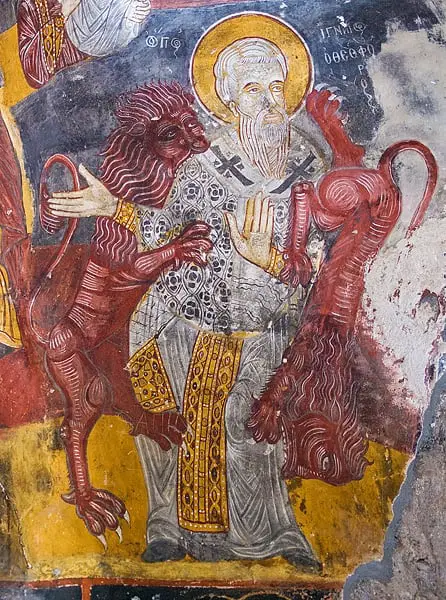
“Do not err, my brethren: if anyone follow a schismatic, he will not inherit the Kingdom of God. If any man walk about with strange doctrine, he cannot lie down with the passion. Take care, then, to use one Eucharist, so that whatever you do, you do according to God: for there is one Flesh of our Lord Jesus Christ, and one cup in the union of His Blood; one altar, as there is one bishop with the presbytery and my fellow servants, the deacons.”
— St. Ignatius Of Antioch, Epistle to the Philadelphians, 3:2-4:1, 110 A.D.
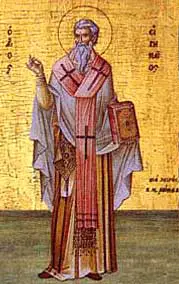
“We have learned the plan of our salvation from no one else other than from those through whom the gospel has come down to us. For they did at one time proclaim the gospel in public. And, at a later period, by the will of God, they handed the gospel down to us in the Scriptures-to be the ‘ground and pillar of our faith.’”
— St. Irenaus, Against Heresies
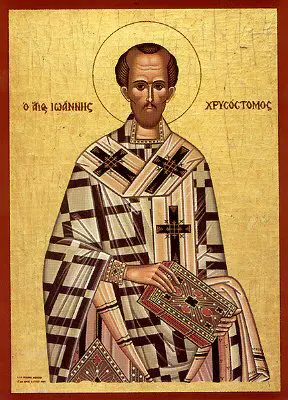
“I reminded you many times about the atheist heretics (non-Orthodox), and now I implore you not to compromise with them on anything, do not eat or drink with them in the name of friendship, better relations, love or peace, because he who is swayed and compromises with them renders himself foreign to the Catholic (universal) church.”
— St. John the Chrysostom
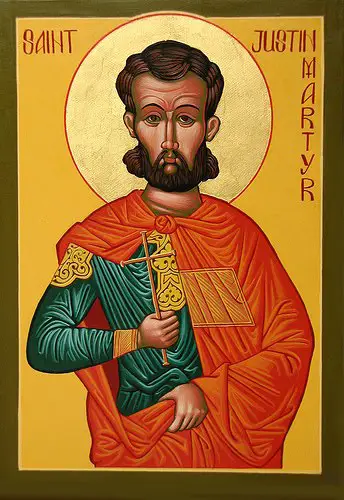
“Unless, therefore, a man by God’s great grace receives the power to understand what has been said and done by the prophets, the appearance of being able to repeat the words or the deeds will not profit him, if he cannot explain the argument of them. And will they not assuredly appear contemptible to many, since they are related by those who understood them not?”
— St. Justin Martyr, Dialogue with Trypho
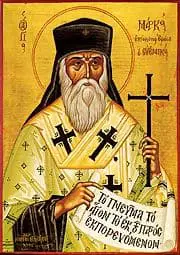
“All the teachers of the Church, all the Councils, and all the Divine Scriptures, exhort us to flee those who uphold other doctrines and to separate from communion with them.”
— St. Mark of Ephesus, Confession of Faith, XII, 304
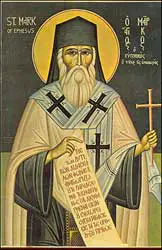
“It is impossible to recall peace without dissolving the cause of the schism— the primacy of the Pope exalting himself equal to God.”
+ St. Mark of Ephesus
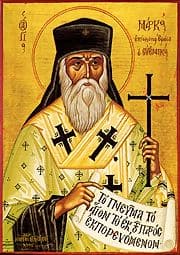
“We seek and we pray for our return to that time when, being united, we spoke the same things and there was no schism between us.”
+ St. Mark of Ephesus
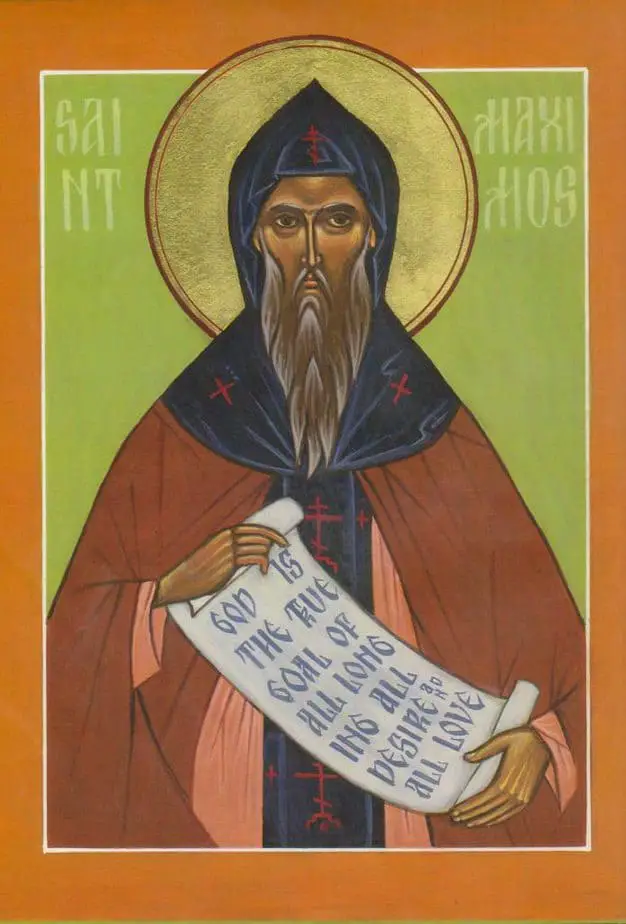
The sacred Scripture, taken as a whole, is like a human being. The Old Testament is the body and the New is the soul, the meaning it contains, the spirit. From another viewpoint we can say that the entire sacred Scripture, Old and New Testament, has two aspects: the historical content which corresponds to the body, and the deep meaning, the goal at which the mind should aim, which corresponds to the soul. If we think of human beings, we see they are mortal in their visible properties but immortal in their invisible qualities.
So with Scripture. It contains the letter, the visible text, which is transitory. But it also contains the spirit hidden beneath the letter, and this is never extinguished and this ought to be the object of our contemplation. Think of human beings again. If they want to be perfect, they master their passions and mortify the flesh. So with Scripture. If it is heard in a spiritual way, it trims the text, like circumcision.
Paul says: `Though our outer nature is wasting away, our inner nature is being renewed every day.’ [2 Cor. 4:16] We can say that also of Scripture. The further the letter is divorced from it, the more relevance the spirit acquires. The more the shadows of the literal sense retreat, the more the shining truth of the faith advances. And this is exactly why Scripture was composed.
— St. Maximos the Confessor
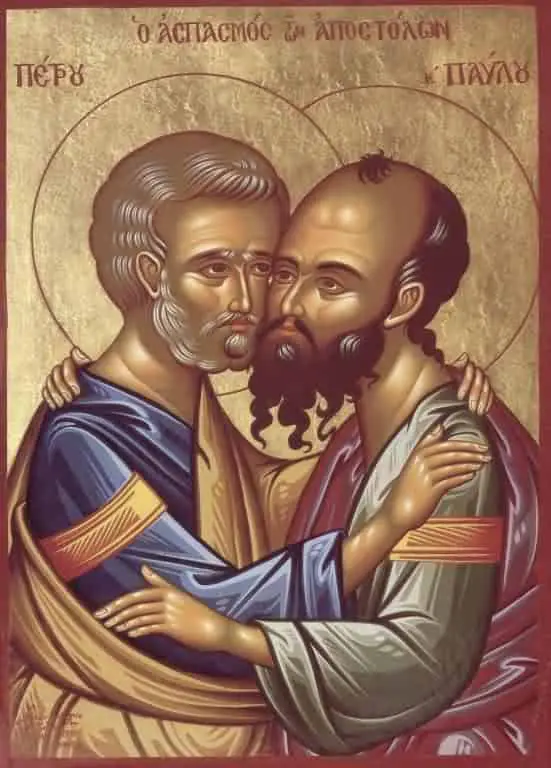
“I know that after I leave savage wolves will come in among you and will not spare the flock. Even from your own numbers men will arise and distort the truth in order to draw away disciples after them.”
— St. Paul, Acts 20:29-30
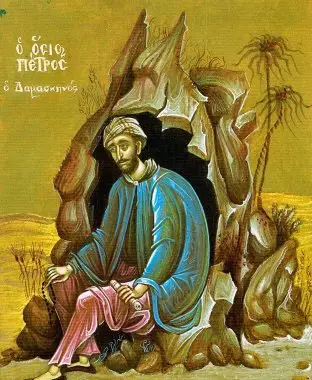
“Even if you are not what you should be, you should not despair. It is bad enough that you have sinned; why in addition do you wrong God by regarding him in your ignorance as powerless? Is he, who for your sake created the great universe that you behold, incapable of saving your soul? And if you say that this fact, as well as his incarnation, only makes your condemnation worse, then repent; and he will receive your repentance, as he accepted that of the prodigal son (Luke 15:20) and the prostitute (Luke 7:37-50). But if repentance is too much for you, and you sin out of habit even when you do not want to, show humility like the publican (Luke 18:13): this is enough to ensure your salvation. For he who sins without repenting, yet does not despair, must of necessity regard himself as the lowest of creatures, and will not dare to judge or censure anyone. Rather, he will marvel at God’s compassion.”
+ St. Peter of Damaskos, “Book I: A Treasury of Divine Knowledge, That Should Not Despair Even if We Sin Many Times,” The Philokalia: The Complete Text (Vol. 3)
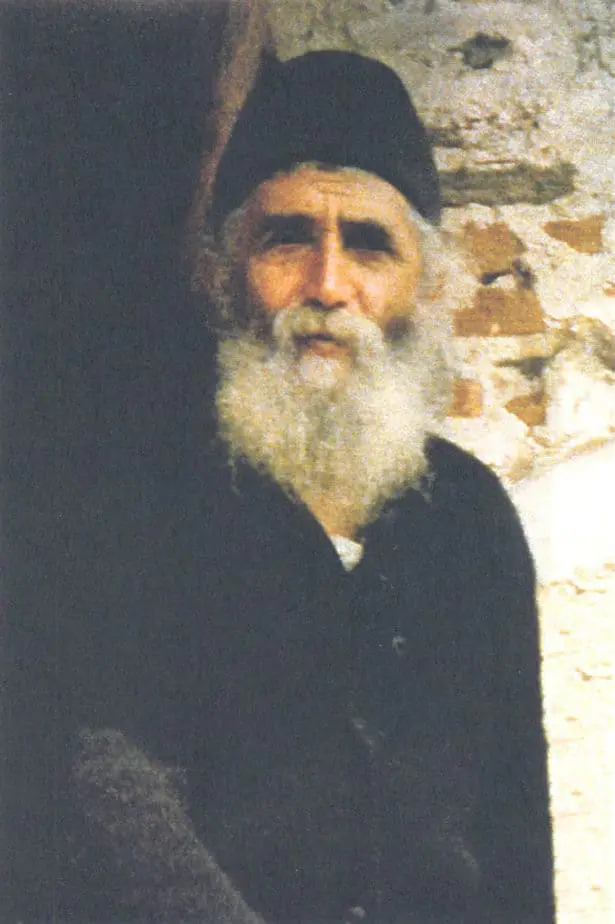
“What I see around me would drive me insane if I did not know that no matter what happens, God will have the last word.”
— Elder Paisios of the Holy Mountain
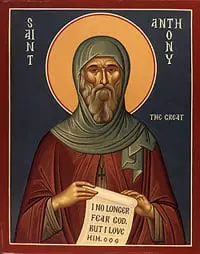
“Do not have a single thing to do with schismatics and absolutely nothing with heretics . . . As you know I myself have avoided them due to their Christ hating and heterodox heresy.”
— St. Anthony the Great
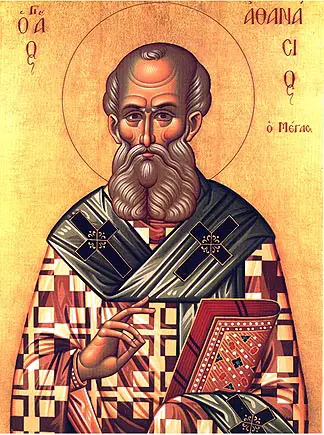
“As we walk the unerring and life-bringing path, let us pluck out the eye that scandalizes us-not the physical eye, but the noetic one. For example, if a bishop or presbyter-who are the eyes of the Church-conduct themselves in an evil manner and scandalize the people, they must be plucked out. For it is more profitable to gather without them in a house of prayer, than to be cast together with them into the gehenna of fire together with Annas and Caiaphas.”
— St. Athanasius the Great, PG 26:1257c
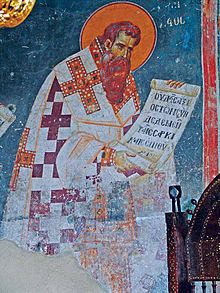
“Keep striving until the fire of heresy is put out, before it consumes the Church.”
— St. Basil the Great
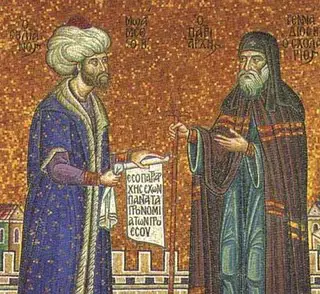
“Keep an eye on your bishops as far as their Orthodoxy is concerned lest they go so far as to teach doctrines against the true faith or celebrate with heretics and schismatics. As far as other things, they act out of ignorance or because the days are evil and they will give an account to God only.”
+ St. Gennadios Scholarios
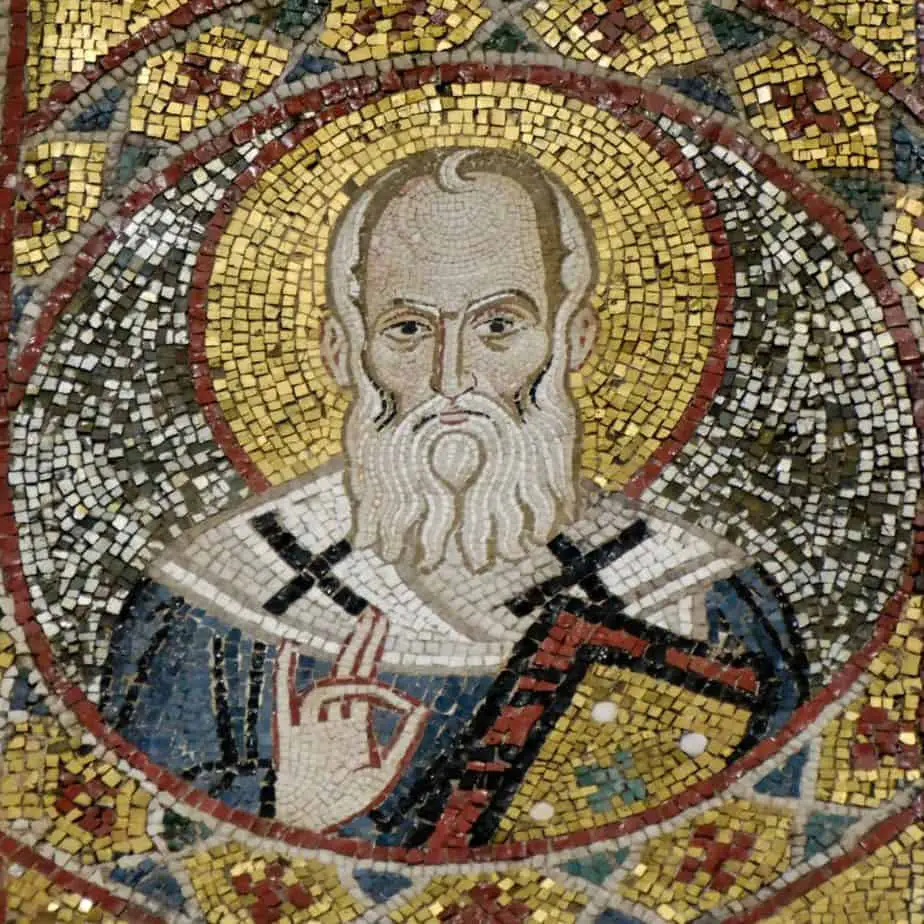
“We however, who extend the accuracy of the Spirit to the merest stroke and tittle, will never admit the impious assertion that even the smallest matters were dealt with haphazard by those who have recorded them, and have thus been borne in mind down to the present day: on the contrary, their purpose has been to supply memorials and instructions for our consideration under similar circumstances, should such befall us, and that the examples of the past might serve as rules and models, for our warning and imitation.”
— St. Gregory the Theologian
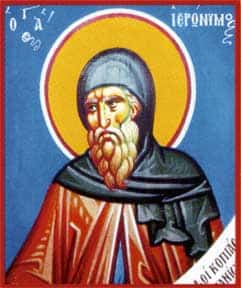
“May your actions never be unworthy of your words, may it not happen that, when you preach in church, someone might say to himself: ‘Why does he therefore not act like this?’. How could a teacher, on a full stomach, discuss fasting; even a thief can blame avarice; but in the priest of Christ the mind and words must harmonize.”
+ St. Jerome
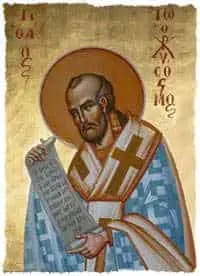
“Be aware not to be corrupted from love of the heretics; for this reason do not accept any false belief (dogma) in the name of love.”
— St. John Chrysostom
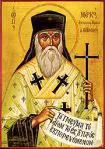
“Praise from others engenders sinful desire, while their condemnation of vice, if not only heard but accepted, engenders self-restraint.”
— St. Mark the Ascetic
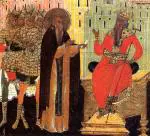
“I believe this to be a matter of hate towards man and separation from divine love when one attempts to give validity to a false faith (or teaching/teacher) which will ultimately corrupt its followers even more.”
– St. Maximos the Confessor
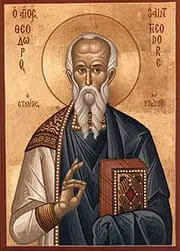
“For it is a commandment of the LORD not to be silent at a time when the Faith is in jeopardy. Speak, Scripture says, and hold not thy peace….”
–St. Theodore the Studite
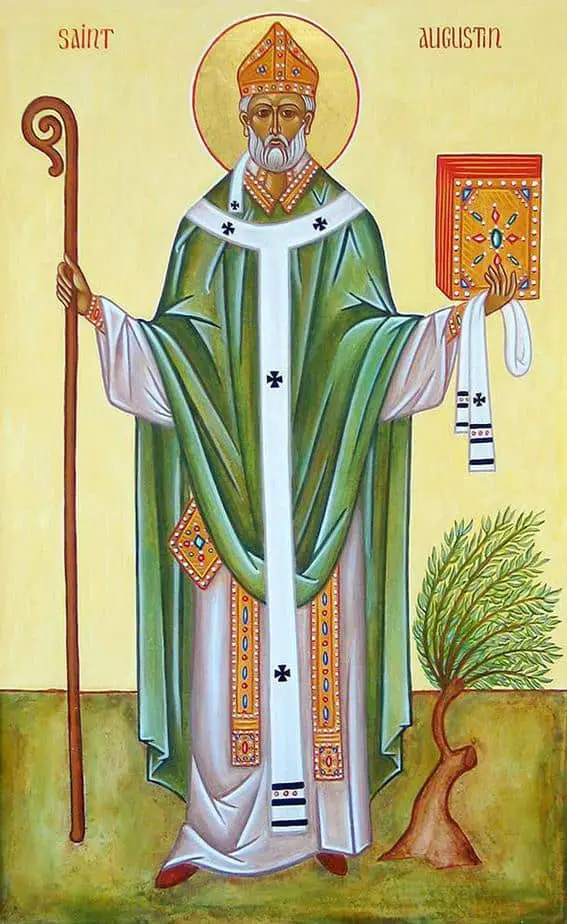
“For I confess to your Charity that I have learned to yield this respect and honour only to the canonical books of Scripture: of these alone do I most firmly believe that the authors were completely free from error. And if in these writings I am perplexed by anything which appears to me opposed to truth, I do not hesitate to suppose that either the manuscript is faulty, or the translator has not caught the meaning of what was said, or I myself have failed to understand it.”
— St. Augustine, Letter to St. Jerome, 1:3
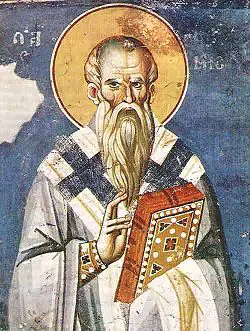
“Ye have searched the scriptures, which are true, which were given
through the Holy Ghost; and ye know that nothing unrighteous or counterfeit is written in them”
— St. Clement of Rome, 1 Clement 45:2-3
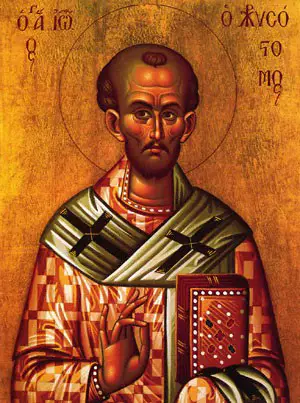
“Let us pass to the despotic part of the soul, spirit. We must not eliminate it utterly from the youth nor yet allow him to use it all the time. Let us train boys from earliest childhood to be patient when they suffer wrongs themselves, but, if they see another being wronged, to sally forth courageously and aid the sufferer in fitting measure.”
— St. John Chrysostom, An Address on Vainglory and the Right Way for Parents to Bring Up Their Children, 66.
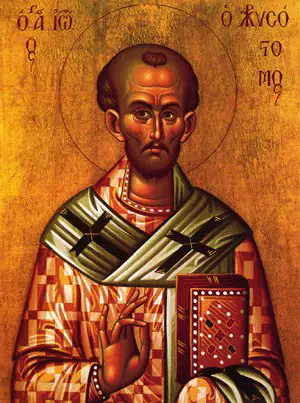
“Let us pass to the despotic part of the soul, spirit. We must not eliminate it utterly from the youth nor yet allow him to use it all the time. Let us train boys from earliest childhood to be patient when they suffer wrongs themselves, but, if they see another being wronged, to sally forth courageously and aid the sufferer in fitting measure.”
— St. John Chrysostom, An Address on Vainglory and the Right Way for Parents to Bring Up Their Children, 66.
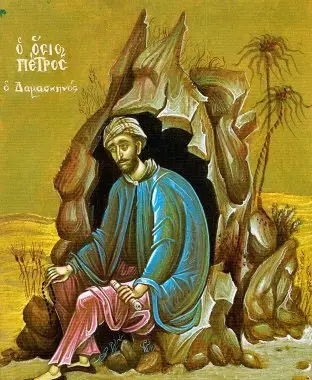
THAT THERE ARE NO CONTRADICTIONS IN HOLY SCRIPTURE
Whenever a person even slightly illumined reads the Scriptures or sings psalms he finds in them matter for contemplation and theology, one text supporting another. But he whose intellect is still unenlightened thinks that the Holy Scriptures are contradictory. Yet there is no contradiction in the Holy Scriptures: God forbid that there should be. For some texts are confirmed by others, while some were written with reference to a particular time of a particular person. Thus every word of Scripture is beyond reproach. The appearance of contradiction is due to our ignorance. We ought not to find fault with the Scriptures, but to the limit of our capacity we should attend to them as they are, and not as we would like them to be, after the manner of the Greeks and Jews. for the Greeks and Jews refused to admit that they did not understand, but out of conceit and self-satisfaction they found fault with the Scriptures and with the natural order of things, and interpreted them as they saw fit and not according to the will of God. As a result they were led into delusion and gave themselves over to every kind of evil.
The person who searches for the meaning of the Scriptures will not put forward his own opinion, bad or good; but, as St. Basil the Great and St. John Chrysostom have said, he will take as his teacher, not the learning of this world, but Holy Scripture itself. Then if his heart is pure and God puts something unpremeditated into it, he will accept it, providing he can find confirmation for it in the Scriptures, as St. Antony the Great says. For St. Isaac says that the thoughts that enter spontaneously and without premeditation into the intellects of those pursuing a life of stillness are to be accepted; but that to investigate and then to draw one’s own conclusions is an act of self-will and results in material knowledge.
This is especially the case if a person does not approach the Scriptures through the door of humility but, as St. John Chrysostom says, climbs up some other way, like a thief (cf. John 10:1), and forces them to accord with his allegorizing. For no one is more foolish than he who forces the meaning of the Scriptures or finds fault with them so as to demonstrate his own knowledge — or, rather, his own ignorance. What kind of knowledge can result from adapting the meaning of the Scriptures to suit one’s own likes and from daring to alter their words? The true sage is he who regards the text as authoritative and discovers, through the wisdom of the Spirit, the hidden mysteries to which the divine Scriptures bear witness.
The three great luminaries, St. Basil the Great, St. Gregory the Theologian and St. John Chrysostom, are outstanding examples of this: they base themselves either on the particular text they are considering or on some other passage of Scripture. Thus no one can contradict them, for they do not adduce external support for what they say, so that it might be claimed that it was merely their own opinion, but refer directly to the text under discussion or to some other scriptural passage that sheds light on it. And in this they are right; for what they understand and expound comes from the Holy Spirit, of whose inspiration they have been found worthy. No one, therefore, should do or mentally assent to anything if its integrity is in doubt and cannot be attested from Scripture. For what is the point of rejecting something who integrity Scripture clearly attests as being in accordance with God’s will, in order to do something else, whether good or not? Only passion could provoke such behaviour.
+ St. Peter of Damaskos, “Book I: A Treasury of Divine Knowledge,” The Philokalia: The Complete Text (Vol. 3)
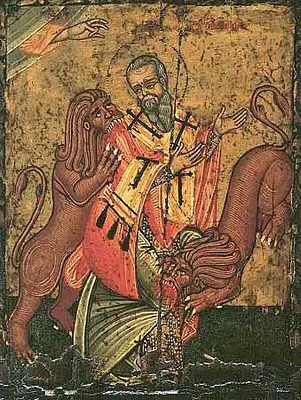
“Ye have never envied any one; ye have taught others. Now I desire that those things may be confirmed [by your conduct], which in your instructions ye enjoin [on others]. Only request in my behalf both inward and outward strength, that I may not only speak, but [truly] will; and that I may not merely be called a Christian, but really be found to be one. For if I be truly found [a Christian], I may also be called one, and be then deemed faithful, when I shall no longer appear to the world. Nothing visible is eternal. “For the things which are seen are temporal, but the things which are not seen are eternal.” For our God, Jesus Christ, now that He is with the Father, is all the more revealed [in His glory]. Christianity is not a thing of silence only, but also of [manifest] greatness.”
— St. Ignatius, Epistle to the Romans, Chapter 3

“Now if we are willing to examine the Scriptures in this way, carefully and systematically, we shall be able to obtain our salvation. If we unceasingly are preoccupied with them, we shall learn both correctness of doctrine and an upright way of life.
— St. John Chrysostom, Homily 53, Homilies on the Gospel of John
For less than the price of a cup of fancy coffee, you can get The Complete Ante-Nicene & Nicene and Post-Nicene Church Fathers Collection which can be read with the the free Kindle reading app. This includes 3 Series, 37 Volumes, 65 Authors, 1,000 Books, 18,000 Chapters, 16 Million Words.
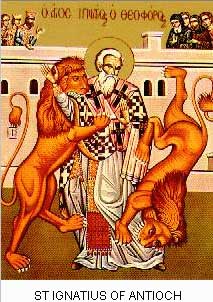
“For it is not my desire to act towards you as a man-pleaser, but as pleasing God, even as also ye please Him. For neither shall I ever have such [another] opportunity of attaining to God; nor will ye, if ye shall now be silent, ever be entitled to the honour of a better work. For if ye are silent concerning me, I shall become God’s; but if you show your love to my flesh, I shall again have to run my race. Pray, then, do not seek to confer any greater favour upon me than that I be sacrificed to God while the altar is still prepared; that, being gathered together in love, ye may sing praise to the Father, through Christ Jesus, that God has deemed me, the bishop of Syria, worthy to be sent forfrom the east unto the west. It is good to set from the world unto God, that I may rise again to Him.”
— St. Ignatius, Epistle to the Romans, Chapter 2
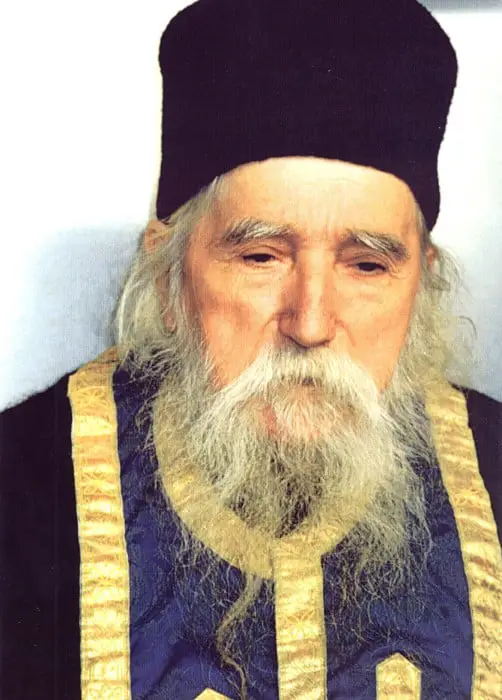
“The enemy will run like a wild ass from the man who has tasted the sweetness of prayer.”
— Elder Cleopas of Romania
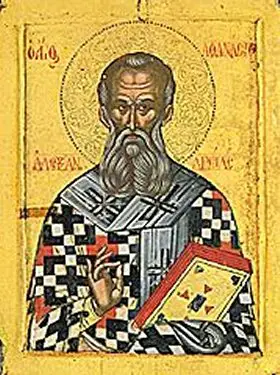
“Devils take great delight in fullness, and drunkenness and bodily comfort. Fasting possesses great power and it works glorious things. To fast is to banquet with angels.”
+ St. Athanasius the Great
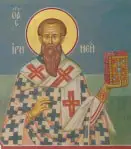
In accordance with this design, Mary the Virgin is found obedient, saying, Behold the handmaid of the Lord; be it unto me according to your word.
Luke 1:38 But Eve was disobedient; for she did not obey when as yet she was a virgin. And even as she, having indeed a husband, Adam, but being nevertheless as yet a virgin (for in Paradise they were both naked, and were not ashamed,
Genesis 2:25 inasmuch as they, having been created a short time previously, had no understanding of the procreation of children: for it was necessary that they should first come to adult age, and then multiply from that time onward), having become disobedient, was made the cause of death, both to herself and to the entire human race; so also did Mary, having a man betrothed [to her], and being nevertheless a virgin, by yielding obedience, become the cause of salvation, both to herself and the whole human race.
And on this account does the law term a woman betrothed to a man, the wife of him who had betrothed her, although she was as yet a virgin; thus indicating the back-reference from Mary to Eve, because what is joined together could not otherwise be put asunder than by inversion of the process by which these bonds of union had arisen; so that the former ties be cancelled by the latter, that the latter may set the former again at liberty. And it has, in fact, happened that the first compact looses from the second tie, but that the second tie takes the position of the first which has been cancelled. For this reason did the Lord declare that the first should in truth be last, and the last first. Matthew 19:30, Matthew 20:16 And the prophet, too, indicates the same, saying, instead of fathers, children have been born unto you.
For the Lord, having been born the First-begotten of the dead,
Revelation 1:5 and receiving into His bosom the ancient fathers, has regenerated them into the life of God, He having been made Himself the beginning of those that live, as Adam became the beginning of those who die. 1 Corinthians 15:20-22 Wherefore also Luke, commencing the genealogy with the Lord, carried it back to Adam, indicating that it was He who regenerated them into the Gospel of life, and not they Him. And thus also it was that the knot of Eve’s disobedience was loosed by the obedience of Mary. For what the virgin Eve had bound fast through unbelief, this did the virgin Mary set free through faith.
— St. Irenaeus, Against Heresies, Book 3 Chapter 22
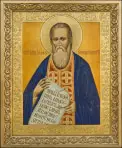
“How is it that all nature, and everything in nature, is so wisely arranged, and moves in such wonderful order? It is because the Creator Himself directs and governs it. How is it that in the nature of man—the crown of creation—there is so much disorder? Why are there so many irregularities and deformities in his life?
Because he took upon himself to direct and govern himself, against the Will and Wisdom of his Creator.
Sinful man! give yourself up wholly, all your life unto the Lord your God, and all your life will move in wise, beautiful, stately, and life-giving order, and will all become beautiful as the lives of God’s Saints, who gave themselves up entirely to Christ their God, and whom the Church daily offers to us, as an example to imitate.”
–St. John of Kronstadt
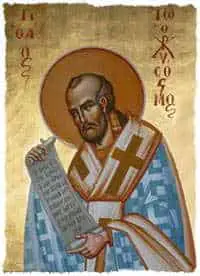
“This is the cause of all evils, the not knowing the Scriptures. We go into battle without arms, and how are we to come off safe?”
— St. John Chrysostom, Homily IX On Colossians
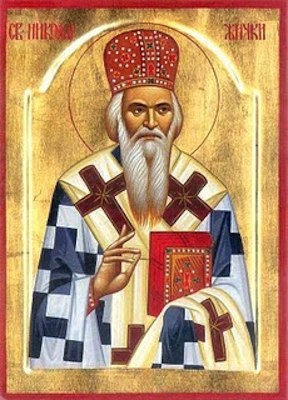
“One needs to distinguish a sinner from a penitent. If you have taken upon yourself the role to rebuke the sinner, guard yourself well, that you do not rebuke the penitent also. How dear the
repentant sinner is to God, call to mind the Parable of the Prodigal Son. Therefore, let it be very dear for you, he who has become dear to God. At one time it happened that a monk succumbed to sin for which he was banished from the monastery. This monk went to St. Anthony, confessed his sin, repented and remained with Anthony for a period of time. Then Anthony sent him back again to the monastery but they did not receive him and, again, they banished him. Again, the penitent came to Anthony. Again, Anthony sent him back to the monastery with a message to the fathers of the monastery: ‘One boat experienced shipwreck and lost its cargo; with great difficulty did that boat arrive in the harbor and you wish to drown even that which was saved from drowning!’ Hearing this wise message, the fathers received with joy the penitent brother into the monastery.”
— St. Nikolai Velimirovich
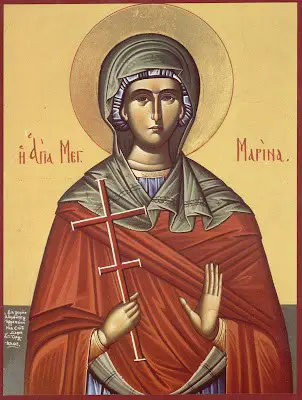
O Beginningless, Immortal, Timeless, Incomprehensible and Unimaginable Lord, the God of all and Creator of all creation, the Foreseer and Savior of all, as I have hoped in You, I thank You, that You have brought me to this hour, as I approach the crown of Your righteousness.
I hymn and bless Your uncountable compassion and philanthropy, as You desired to number me with Your chosen servants. Look down, now, upon me the lowly one, O God and Master, Lord of mercy, Ruler of all and All-powerful One, hearken to my prayer, and fulfill my entreaties in praise.
To the honor and glory of Your all-holy and worshiped name, grant remission of sins for all those who desire to build a church in the name of Your servant, or who serve in them with prayer, or who write of the struggle of my martyrdom, and to those who read it with faith, remembering the name of Your servant, and make them to bear fruit through Your power. I ask that for those who embrace this dwelling-place of my body, where I suffered martyrdom for Your love, grant forgiveness of sins according to the measure of their faith, and do not let any hand of damnation approach them, nor hunger, nor plague, nor any other danger of soul or body.
And all those who desire to celebrate, glorifying with faith and seeking Your salvation and mercy through me, grant to them Your good things in this world, and to go forth pleasing You, and make them worthy of Your heavenly Kingdom, for You are the only Good One and Lover-of-man, and the Giver of Good things, unto the ages. Amen.
–The Prayer of St. Marina, before being beheaded for Christ (amateur translation)
http://full-of-grace-and-truth.blogspot.com/2013/07/the-prayer-of-st-marina-before-being.html
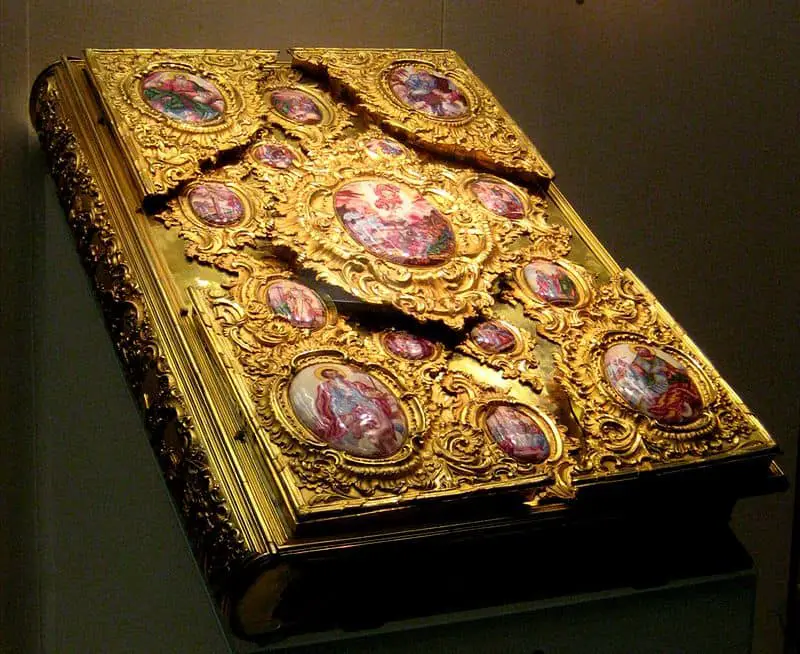
“Moreover, if the Devil does not dare to enter into the house where the Gospel lies, much less will he ever seize upon the soul which contains such thoughts as these, and no evil spirit will approach it, nor will the nature of sin come near. Well, then, sanctify your soul, sanctify your body by having these thoughts always in your heart and on your tongue. For if foul language is defiling and evokes evil spirits, it is evident that spiritual reading sanctifies the reader and attracts the grace of the Spirit.”
+ St. John Chrysostom, Homily 32, Homilies on the Gospel of John
For less than the price of a cup of fancy coffee, you can get The Complete Ante-Nicene & Nicene and Post-Nicene Church Fathers Collection which can be read with the the free Kindle reading app. This includes 3 Series, 37 Volumes, 65 Authors, 1,000 Books, 18,000 Chapters, 16 Million Words.
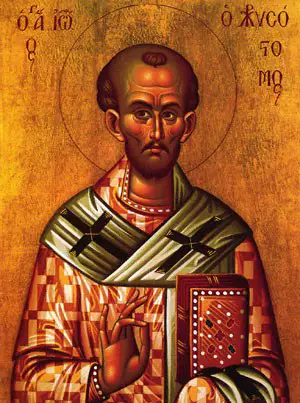
“It is not possible, I say not possible, ever to exhaust the mind of the Scriptures. It is a well which has no bottom.”
— St. John Chrysostom, Hom. XIX On Acts
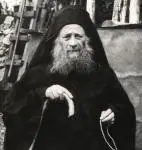
“God is everywhere. There is no place God is not…You cry out to Him, ‘Where art Thou, my God?’ And He answers, “I am present, my child! I am always beside you.’ Both inside and outside, above and below, wherever you turn, everything shouts, ‘God!’ In Him we live and move. We breathe God, we eat God, we clothe ourselves with God. Everything praises and blesses God. All of creation shouts His praise. Everything animate and inanimate speaks wondrously and glorifies the Creator. Let every breath praise the Lord!”
– Elder Joseph the Hesychast, 78th Letter
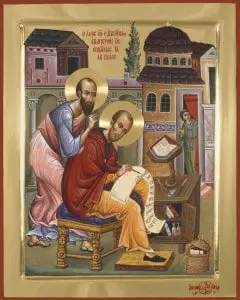
“Teach him to sing those psalms which are so full of love of wisdom; as at once concerning chastity or rather, before all, of not companying with the wicked, immediately with the very beginning of the book; (for therefore also it was that that prophet began on this wise, ‘Blessed is the man that hath not walked in the counsel of the ungodly’; Ps. i. I, and again, ‘I have not say in the council of vanity’; Ps. xxvi. 4, Sept., and again, ‘in his sight a wicked doer is contemned, but he honoreth those that fear the Lord,’ Ps. xv. 4, Sept.,) of companying the good, (and these subjects thou wilt find there in abundance,) of restraining the belly, of restraining the hand, of refraining from excess, of not overreaching; that money is nothing nor glory, and other things such like[…]When in these thou hast led him on from childhood, by little and little thou wilt lead him forward even to the higher things. The Psalms contain things, but the Hymns again have nothing human. When he has been instructed out of the Psalms, he will then know hymns also , as a diviner thing.”
— St. John Chrysostom, Homilies on Colossians, Homily 9
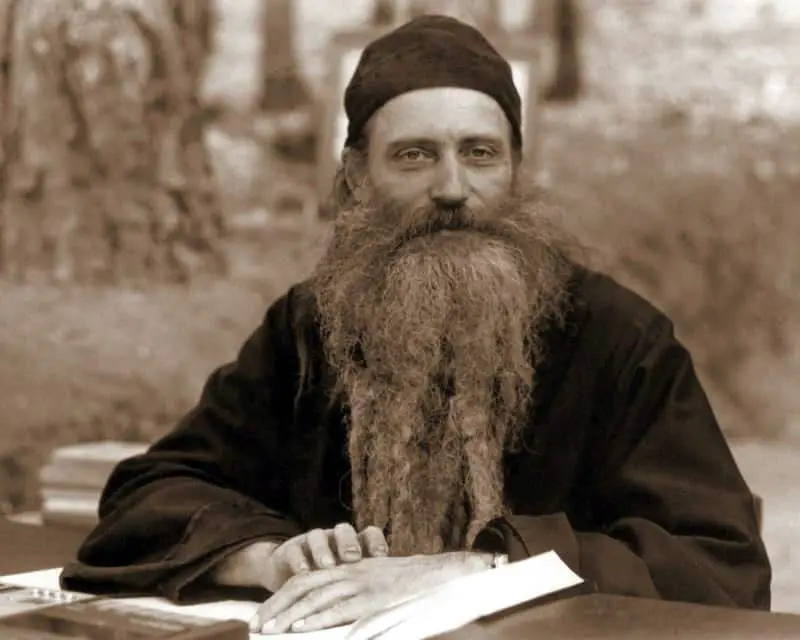
“Never has there been such an age of false teachers as this pitiful twentieth century, so rich in material gadgets and so poor in mind and soul. Every conceivable opinion, even the most absurd, even those hitherto rejected by the universal consent of all civilized peoples — now has its platform and its own ‘teacher.’ A few of these teachers come with demonstration or promise of ‘spiritual power’ and false miracles, as do some occultists and ‘charismatics’; but most of the contemporary teachers offer no more than a weak concoction of undigested ideas which they receive ‘out of the air,’ as it were, or from some modern self-appointed ‘wise man’ (Or woman) who knows more than all the ancients merely by living in our ‘enlightened’ modern times. As a result, philosophy has a thousand schools, and ‘Christianity’ a thousand sects. Where is the truth to be found in all this, if indeed it is to found at all in our most misguided times?
In only one place is there to be found the fount of true teaching, coming from God Himself, not diminished over the centuries but ever fresh, being one and the same in all those who truly teach it, leading those who follow it to eternal salvation. This place is the Orthodox Church of Christ, the fount is the grace of the All-Holy Spirit, and the true teachers of the Divine doctrine that issues from this fount are the Holy Fathers of the Orthodox Church.”
+ Fr. Seraphim Rose (1934-1982), as printed in the biography Father Seraphim Rose: His Life and Works by Hieromonk Damascene
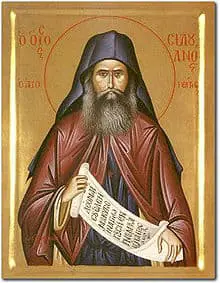
“We may study as much as we will but we shall still not come to know the Lord unless we live according to His commandments, for the Lord is not made known through learning but by the Holy Spirit. Many philosophers and scholars have arrived at a belief in the existence of God but they have not come to know God. And we monks apply ourselves day and night to the study of the Lord’s command but not all of us by a long way have come to know the Lord, although we believe in Him.”
— St. Silouan the Athonite
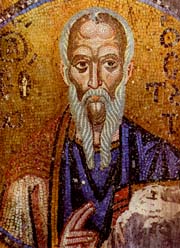
“Brethren and fathers, God, who fashioned us and brought us out of non-existence into being, has placed us in this life as in a schoolroom to learn to gospel of his kingdom.”
— St. Theodore the Studite

“Only if it is one and the same Christ who is consubstantial with the Father and with men can He save us, for the meeting ground between God and man is Flesh and Christ.”
— St. Cyril of Alexandria
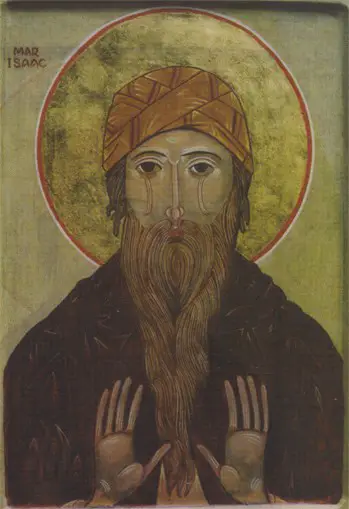
“At the time of darkness, more than anything else kneeling is helpful.”
— St. Isaac the Syrian

“In love did God bring the world into existence; in love is God going to bring it to that wondrous transformed state, and in love will the world be swallowed up in the great mystery of the one who has preformed all these things; in love will the whole course of the governance of creation be finally comprised.”
– St. Isaac of Syria
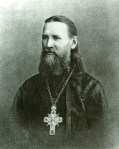
“Remember that God, during your prayers, is watching for your affirmative answer to the question which He is inwardly asking you: ‘Do you believe I am able to do this?’ To which question you must from the depth of your heart reply, ‘Yes, Lord’ (Mt. 9:28).”
— St. John of Kronstadt, My Life in Christ
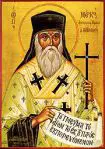
“No one is as good and kind as the Lord is; but He does not forgive one who does not repent.”
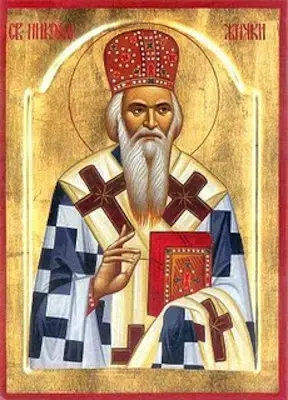
“If your heart has been softened either by repentance before God or by learning the boundless love of God towards you, do not be proud with those whose hearts are still hard. Remember how long your heart was hard and incorrigible. Seven brothers were ill in one hospital. One recovered from his illness and got up and rushed to serve his other brothers with brotherly love, to speed their recovery. Be like this brother. Consider all men to be your brothers, and sick brothers at that. And if you come to feel that God has given you better health than others, know that it is given through mercy, so in health you may serve your frailer brothers.”
+ St. Nikolai Velimirovich, March 31, Prologue of Ohrid

“Do not be surprised that you fall every day; do not give up, but stand your ground courageously. And assuredly the angel who guards you will honour your patience. While a wound is still fresh and warm it is easy to heal, but old, neglected and festering ones are hard to cure, and require for their care much treatment, cutting, plastering and cauterization. Many from long neglect become incurable. But with God all things are possible [Matthew 19:26].”
+ St. John Climicus, Step 5.30, Ladder of Divine Ascent
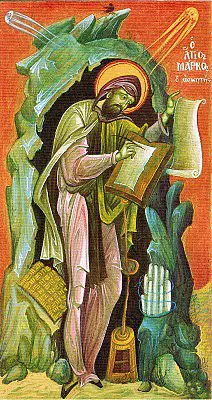
“He who neglects action and depends on theoretical knowledge holds a staff of reed instead of a double-edged sword; and when he confronts his enemies in time of war, ‘it will go into his hand, and pierce it’ (2 Kgs. 18:21), injecting its natural poison.”
— St. Mark the Ascetic
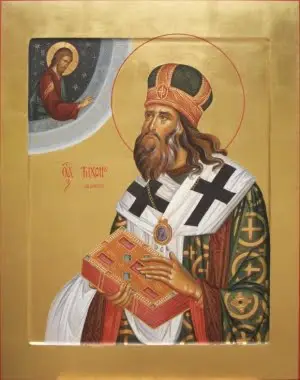
“Let thy mind fast from vain thoughts; let thy memory fast from remembering evil; let thy will fast from evil desire; let thine eyes fast from bad sights: turn away thine eyes that thou mayest not see vanity; let thine ears fast from vile songs and slanderous whispers; let thy tongue fast from slander, condemnation, blasphemy, falsehood, deception, foul language and every idle and rotten word; let thy hands fast from killing and from stealing another’s goods; let thy legs fast from going to evil deeds: Turn away from evil, and do good.”
— St. Tikhon of Zadonsk

“Let everything take second place to our care of our children, our bringing them up to the discipline and instruction of the Lord. If from the beginning we teach them to love true wisdom, they will have great wealth and glory than riches can provide. If a child learns a trade, or is highly educated for a lucrative profession, all this is nothing compared to the art of detachment from riches; if you want to make your child rich, teach him this. He is truly rich who does not desire great possessions, or surround himself with wealth, but who requires nothing…Don’t think that only monks need to learn the Bible; Children about to go our into the world stand in greater need of Scriptural knowledge.”
+ St. John Chrysostom, Homilies on Ephesians, Homily 21
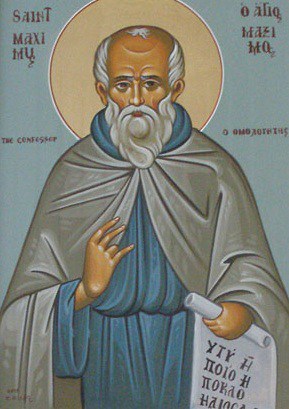
“Do not say that you are the temple of the Lord, writes Jeremiah (cf. Jer. 7:4); nor should you say that faith alone in our Lord Jesus Christ can save you, for this is impossible unless you also acquire love for Him through your works.
As for faith by itself, ‘the devils also believe, and tremble’ (Jas. 2:19).”
+ St. Maximos the Confessor, Four Hundred Texts on Love 1.39, The Philokalia: The Complete Text (Vol. 2)
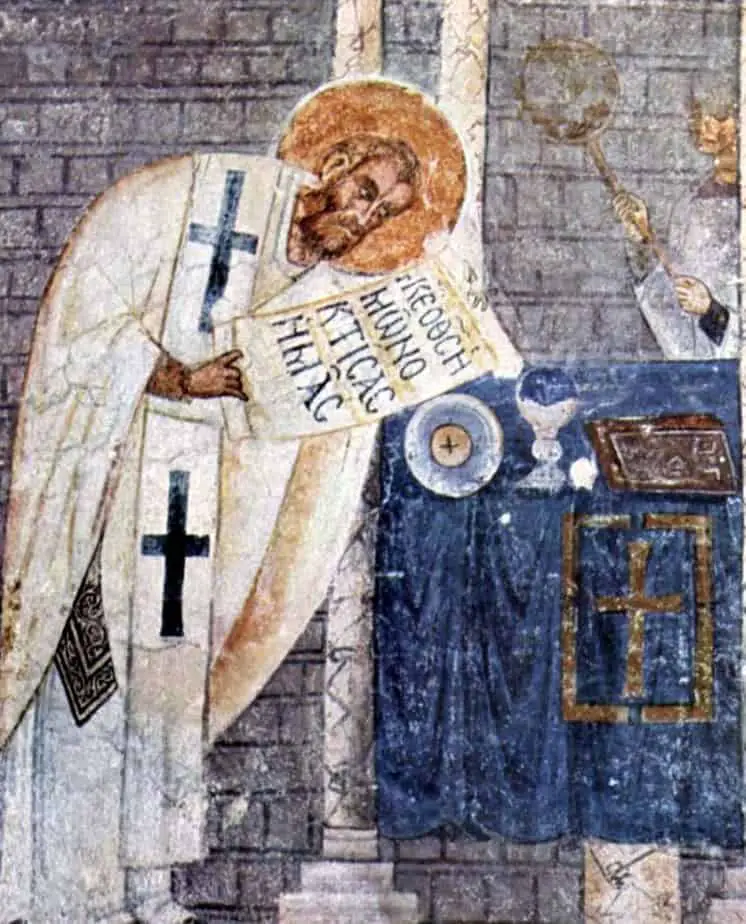
“I know the laws of allegory, though less by myself than from the works of others. There are those truly, who do not admit the common sense of the Scriptures, for whom water is not water, but some other nature, who see in a plant, in a fish, what their fancy wishes, who change the nature of reptiles and of wild beasts to suit their allegories, like the interpreters of dreams who explain visions in sleep to make them serve their own ends. For me grass is grass; plant, fish, wild beast, domestic animal, I take all in the literal sense. ‘For I am not ashamed of the Gospel’ [Romans 1:16].
‘And there was evening and there was morning: one day.’ And the evening and the morning were one day. Why does Scripture say ‘one day the first day’? Before speaking to us of the second, the third, and the fourth days, would it not have been more natural to call that one the first which began the series? If it therefore says ‘one day,’ it is from a wish to determine the measure of day and night, and to combine the time that they contain. Now twenty-four hours fill up the space of one day — we mean of a day and of a night; and if, at the time of the solstices, they have not both an equal length, the time marked by Scripture does not the less circumscribe their duration. It is as though it said: twenty-four hours measure the space of a day, or that, in reality a day is the time that the heavens starting from one point take to return there. Thus, every time that, in the revolution of the sun, evening and morning occupy the world, their periodical succession never exceeds the space of one day.”
— St. Basil the Great, Hexaemeron, Homily 2

“Never deem it an unnecessary thing that he should be a diligent hearer of the divine Scriptures. For there the first thing he hears will be this, ‘Honor thy father and thy mother’; so that this makes for thee. Never say, this is the business of monks. Am I making a monk of him? No. There is no need he should become a monk. Why be so afraid of a thing so replete with so much advantage? Make him a Christian.”
— St. John Chrysostom, Homilies on Ephesians, Homily 21

“The desire to rule is the mother of heresies.”
— St. John Chrysostom, Commentary on the Epistle of St. Paul to the Galatians
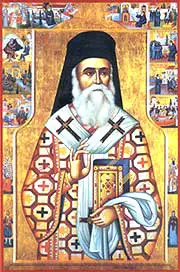
“We have within us deeply rooted weaknesses, passions, and defects. This can not all be cut out with one sharp motion, but patience, persistence, care and attention. The path leading to perfection is long. Pray to God so that he will strengthen you. Patiently accept your falls and, having stood up, immediately run to God, not remaining in that place where you have fallen. Do not despair if you keep falling into your old sins. Many of them are strong because they have received the force of habit. Only with the passage of time and with fervor will they be conquered. Don’t let anything deprive you of hope.”
— St. Nektarios of Aegina
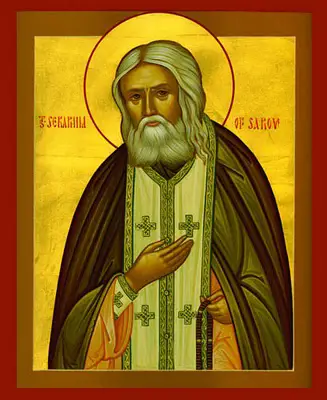
“When a man receives something Divine, in his heart he rejoices; but when he receives something diabolic, he is disturbed. The Christian heart, when it has received something Divine, does not demand anything else in order to convince it that this is precisely from the Lord; but by that very effect it is convinced that this is heavenly, for it senses within itself spiritual fruits: love, joy, peace, and the rest (cf. Gal. 5:22).”
— St. Seraphim of Sarov, Little Russian Philokalia: Vol. I
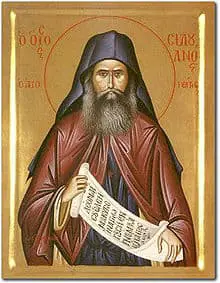
“Holy Relics are the earthly remains of those who have been taught by none other than Christ Himself to love their enemies even unto death, the death of the Cross, which is His glory, and which by grace becomes their glory too. Love for enemies is not a moral injunction, it is the fundamental criterion for the Christian way of life. This is Salvation.”
— St. Silouan the Athonite
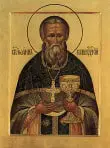
“When you doubt in the truth of any person or any event described in Holy Scripture, then remember that ‘all Scripture is given by inspiration of God,’ as the Apostle says, and is therefore true, and does not contain any imaginary persons, fables, and tales, although it includes parables which everyone can see are not true narratives but are written in figurative language. The whole of the Word of God is single, entire, indivisible truth; and if you admit that any narrative, sentence, or word is untrue, then you sin against the truth of the whole of Holy Scripture and its primordial Truth, which is God Himself. ‘I am the truth,” said the Lord; ‘Thy word is truth,’ said Jesus Christ to God the Father. Thus, consider the whole of the Holy Scripture as truth; everything that is said in it has either taken place or takes place.”
– St. John of Kronstadt, My Life in Christ
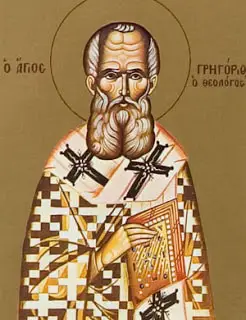
“We needed an Incarnate God, a God put to death, that we might live. We were put to death together with Him, that we might be cleansed; we rose again with Him because we were put to death with Him; we were glorified with Him, because we rose again with Him.”
— St. Gregory the Theologian, Oration 45, 28
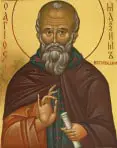
“Stop defiling your flesh with shameful deeds and polluting your soul with wicked thoughts; then the peace of God will descend upon you and bring you love.”
St. Maximos the Confessor
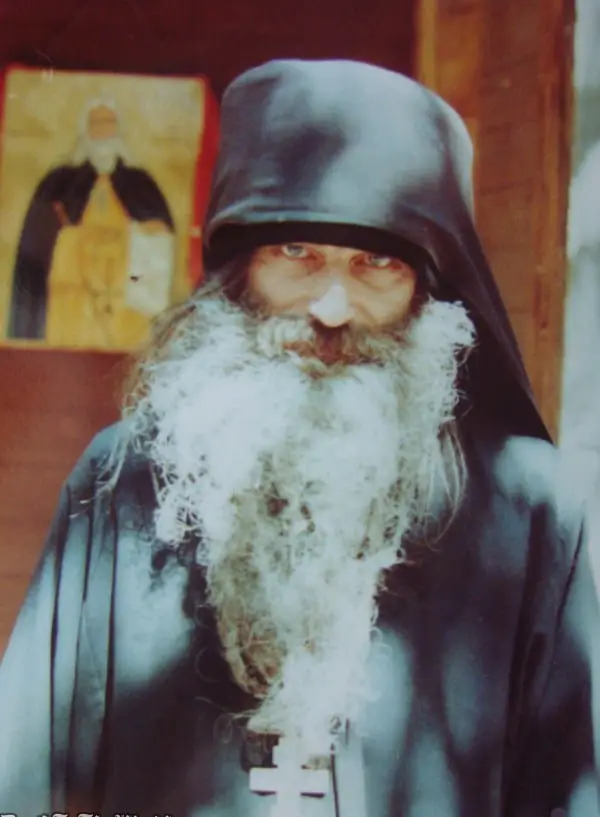
“Let not us, who would be Christians, expect anything else from it than to be crucified. For to be Christian is to be crucified, in this time and in any time since Christ came for the first time. His life is the example — and warning — to us all. We must be crucified personally, mystically; for through crucifixion is the only path to resurrection. If we would rise with Christ, we must first be humbled with Him — even to the ultimate humiliation, being devoured and spit forth by the uncomprehending world. And we must be crucified outwardly, in the eyes of the world; for Christ’s Kingdom is not of this world, and the world cannot bear it, even a single representative of it, even for a single moment. The world can only accept Antichrist, now or at any time. No wonder then, that it is hard to be a Christian — it is not hard, it is impossible. No one can knowingly accept a way of life which, the more truly it is lived, lead the more surely to one’s own destruction. And that is why we constantly rebel, try to make life easier, try to be half-Christian, try to make the best of both worlds We must ultimately choose — our felicity lies in one world or the other, not in both. God give us the strength to pursue the path to crucifixion; there is no other way to be Christian.”
— Eugene Rose (who later became Fr. Seraphim) from his journal as printed in the biography Father Seraphim Rose: His Life and Works by Hieromonk Damascene
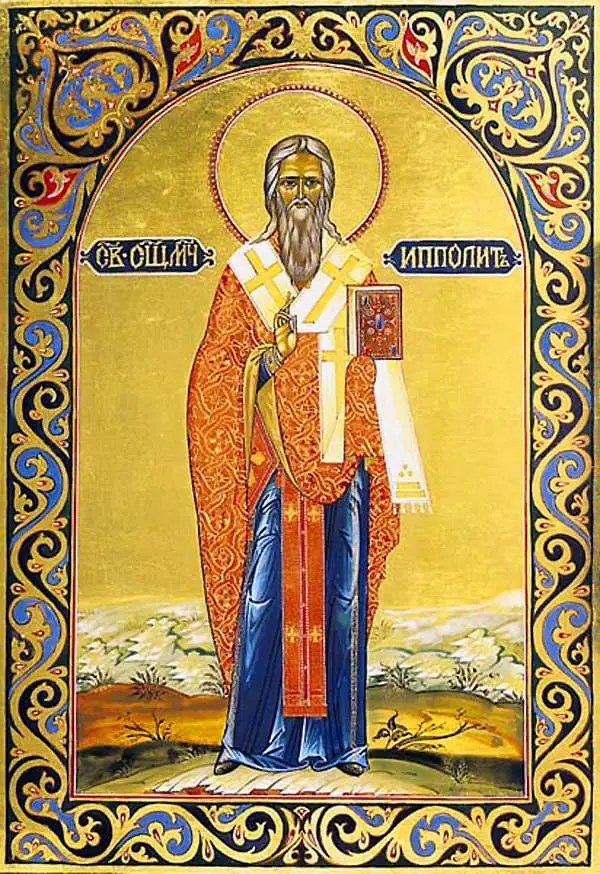
“But the pious confession of the believer is that, with a view to our salvation, . . . the Creator of all things incorporated with Himself a rational soul and a sensible body from the all-holy Mary, ever-virgin, by an undefiled conception, without conversion, and was made man in nature, but separate from wickedness: the same was perfect God, and the same was perfect man; the same was in nature at once perfect God and man.”
— St. Hippolytus of Rome, Against Beron and Helix, Frag VIII, 210 AD
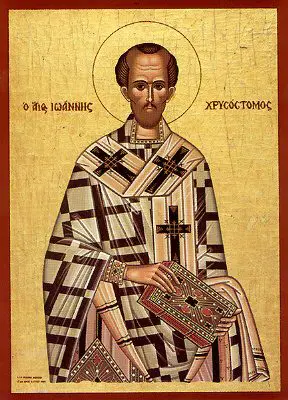
“So let the name of the saints enter our homes through the naming of our children, to train not only the child but the father, when he reflects that he is the father of John or Elijah or James; for, if the name be given with forethought to pay honor to those that have departed, and we grasp at our kinship with the righteous rather than with our forebears, this too will greatly help us and our children. Do not because it is a small thing regard it as small; its purpose is to succour us.”
— St. John Chrysostom, An Address on Vainglory and the Right Way for Parents to Bring Up Their Children 50.
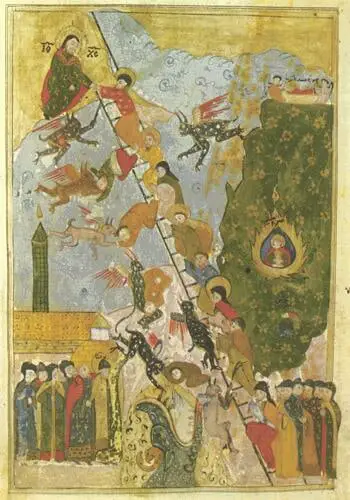
“If the Holy Spirit is peace of soul, as He is said to be, and as He is in reality, and if anger is disturbance of heart, as it actually is and as it is said to be, then nothing so prevents His presence in us as anger.”
— St. John Climacus, Ladder of Divine Ascent, Step 8.14
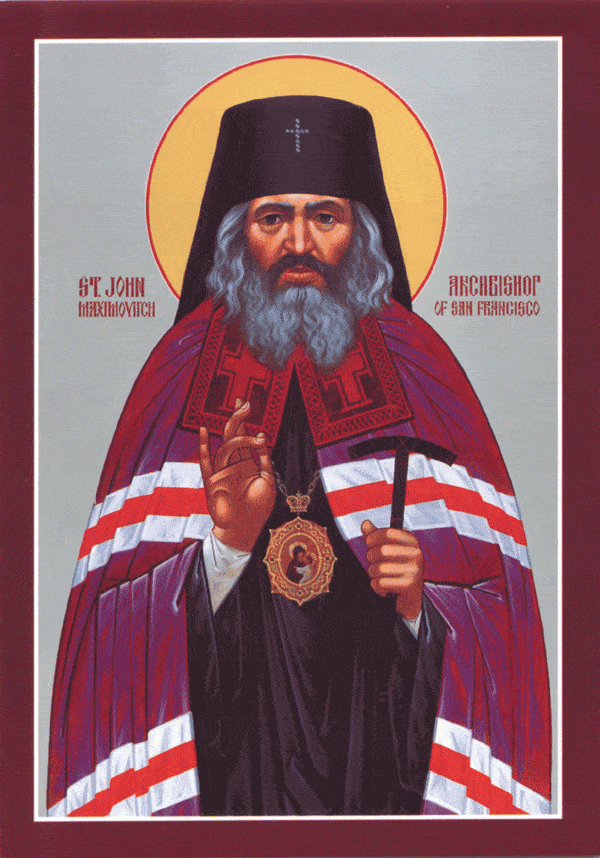
“Just as a basic concern is to be careful of anything that might be harmful to our physical health, so our spiritual concern should watch out for anything that might harm our spiritual life and the work of faith and salvation. Therefore, carefully and attentively assess your inner impulses: are they from God or from the spirit of evil?”
— St. John Maximovitch

“When praying with people, we sometimes have to pierce through with our prayer as if it were the hardest wall—human souls, hardened and petrified by earthly passions—to penetrate the Egyptian darkness, the darkness of passions and worldly attachments.
The simpler the people one prays with the easier it is.”
This is why it is sometimes difficult to pray.
— St John of Kronstadt
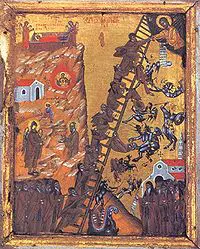
“At no time do we find God revealing the sins which have been confessed to Him, lest by making these public knowledge, He should impede those who would confess and so make them incurably sick.”
— St. John of the Ladder, To the Shepherd, PG 88, 1196B
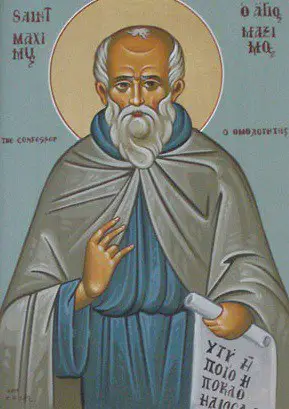
“Just as the thought of fire does not warm the body, so faith without love does not actualize the light of spiritual knowledge in the soul.
Just as the light of the sun attracts a healthy eye, so through love knowledge of God naturally draws to itself the pure intellect.”
+ St. Maximos the Confessor, Four Hundred Texts on Love 1.31-32, The Philokalia: The Complete Text (Vol. 2)
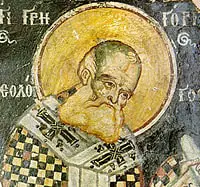
“It is better to choose a commendable war than peace which separates from God. The faith which I was taught by the Holy Fathers which I taught at all times without adjusting according to the times, this faith I will never stop teaching; I was born with it and I live by it.”
— St. Gregory the Theologian
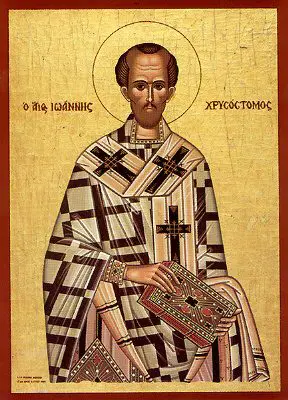
“If you are a Christian, no earthly city is yours. Of our City ‘the Builder and Maker is God.’ Though we may gain possession of the whole world, we are withal but strangers and sojourners in it all. We are enrolled in heaven: our citizenship is there! Let us not, after the manner of little children, despise things that are great, and admire those which are little! Not our city’s greatness, but virtue of soul is our ornament and defense. If you suppose dignity to belong to a city, think how many persons must partake in this dignity, who are whoremongers, effeminate, depraved and full of ten thousand evil things, and at last despise such honor! But that City above is not of this kind; for it is impossible that he can be a partaker of it, who has not exhibited every virtue.”
— St. John Chrysostom, On the Statues
Also available very cheaply in a Kindle version that can be read with the free Kindle reading app.
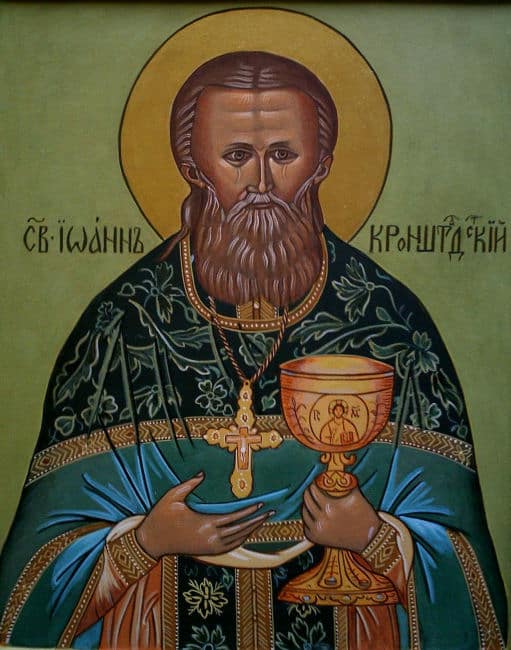
“Sometimes during a lengthy prayer only a few minutes are really pleasing to God, and constitute true prayer, true service to Him. The chief thing in prayer is the nearness of the heart to God.”
— St. John of Kronstadt, My Life in Christ
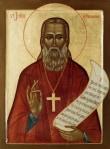
“When you pray that your sins may be forgiven, strengthen yourself always by faith, and trust in God’s mercy, Who is ever ready to forgive our sins after sincere prayer, and fear lest despair should fall on your heart — that despair which declares itself by deep despondency and forced tears. What are your sins in comparison to God’s mercy, whatever they be, if only you truly repent of them? But it often happens that when a man prays, he does not, in his heart, inwardly hope that his sins will be forgiven, counting them as though they were above God’s mercy. Therefore, he certainly will not obtain forgiveness, even should he shed fountains of involuntary tears; and with a sorrowful, straitened heart he will depart from the Gracious God: which is only what he deserves. ‘Believe that ye receive them,’ says the Lord, ‘and ye shall have them.’ Not to be sure of receiving what you ask God for, is a blasphemy against God.”
— St. John of Kronstadt
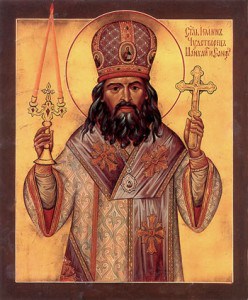
“The Divine Services in their composition contain all the fullness of the dogmatic teaching of the Church and set forth the path to salvation. They present invaluable spiritual wealth. The more fully and precisely they are fulfilled, the more benefit the participants receive from them. Those who perform them carelessly and who shorten them by their laziness rob their flock, depriving them of their very daily bread, stealing from them a most valuable treasure. The shortening of the services which comes about through lack of strength must be done wisely and performed circumspectly in order not to touch that which should not be tampered with.”
— St. John of Shanghai and San Francisco

“To obey the commandments of our Saviour Jesus Christ is worthy neither of blame nor of condemnation.”
— Saint Justin Martyr at his trial

Nothing else remains after confession, Spiritual Father, except to keep the sins you hear a secret, and to never reveal them, either by word, or by letter, or by a bodily gesture, or by any other sign, even if you are in danger of death, for that which the wise Sirach says applies to you: “Have you heard a word? Let it die with you” (Sir. 19:8); meaning, if you heard a secret word, let the word also die along with you, and do not tell it to either a friend of yours or an enemy of yours, for as long as you live. And further still, that which the Prophet Micah says: “Trust not in friends… beware of thy wife, so as not to commit anything to her” (Mic. 7:5).
For if you reveal them, firstly, you will be suspended or daresay deposed completely by the Ecclesiastical Canons, and according to political laws you will be thrown in jail for the rest of your life and have your tongue cut out. Secondly, you become a reason for more Christians not to confess, being afraid that you will reveal their sins, just as it happened during the time of Nektarios of Constantinople when the Christians did not want to confess on account of a Spiritual Father who revealed the sin of a woman. The divine Chrysostom both witnessed these things and suffered because of them on account of his trying to convince the people to confess. It is impossible for me to describe in words how much punishment this brings upon you, who are the cause of these things.
— St. Nicodemus the Holy Mountain (St. Nicodemus the Hagiorite), Exomologetarion. A Manual of Confession
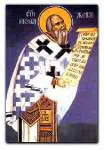
“In the man who only theorizes about faith, there is a great deal of room for the demon. But in the man who gives himself to sincere prayer and fasting, there is only the narrowest space for the demon, and he must flee from such a man.”
– St. Nikolai Velimirovic
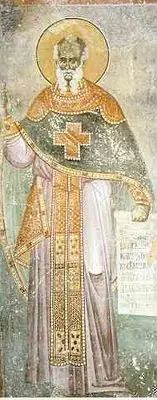
“This is the sum of the mystery: to be corpses to the world but alive to God.”
— St. Theodore the Studite
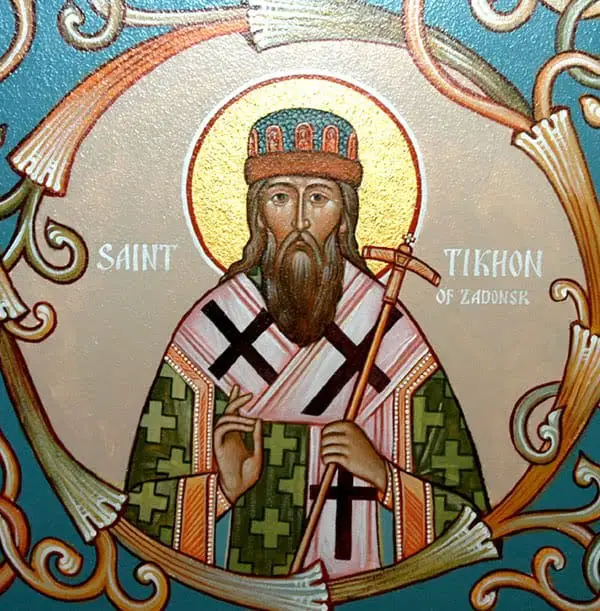
“Do we refuse to forgive? God, too, will refuse to forgive us. As we treat our neighbours, so also does God treat us. The forgiveness or unforgiveness of your sins, then, and hence also your salvation or destruction, depend on you yourself. For without forgiveness of sins there is no salvation. You can see for yourself how serious it is.”
— St. Tikhon of Zadonsk, Journey to Heaven: Counsels on the Particular Duties of Every Christian
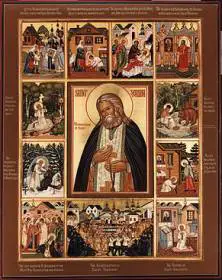
“There is nothing better than peace in Christ, for it brings victory over all the evil spirits on earth and in the air. When peace dwells in a man’s heart it enables him to contemplate the grace of the Holy Spirit from within. He who dwells in peace collects spiritual gifts as it were with a scoop, and he sheds the light of knowledge on others. All our thoughts, all our desires, all our efforts, and all our actions should make us say constantly with the Church: “O Lord, give us peace!” When a man lives in peace, God reveals mysteries to him..”
— St. Seraphim of Sarov
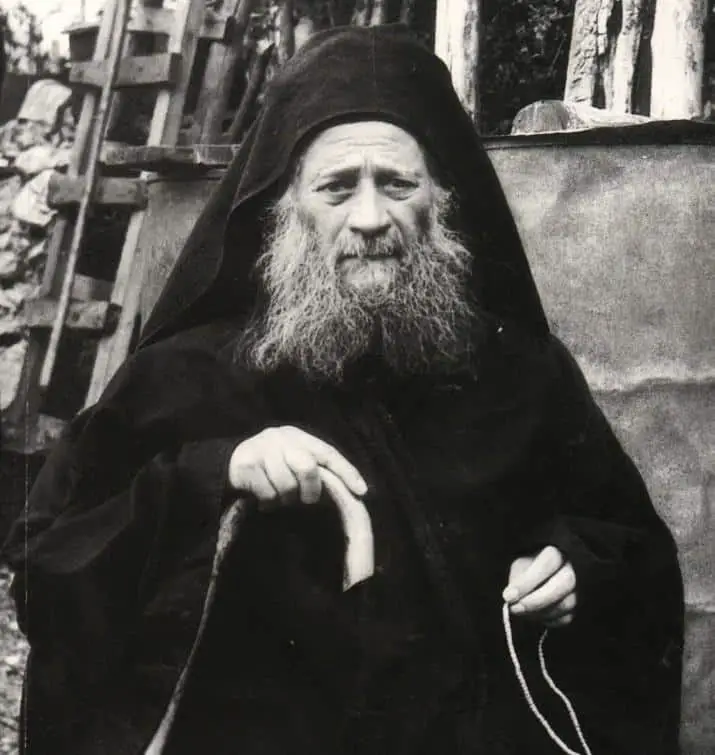
I received your letter, my child, and I saw your anxiety. But don’t be sad, my child. Don’t worry so much. Even though you have fallen again, get up again. You have been called to a heavenly road. It is not surprising for someone running to stumble. It just takes patience and repentance at every moment.
Therefore, always do a metanoia when you are wrong and don’t lose time, because the longer you wait to seek forgiveness, the more you allow the evil one to spread his roots within you. Don’t let him make roots to your detriment.
Therefore, don’t despair when you fall, but get up eagerly and do a metanoia saying, “Forgive me, my dear Christ. I am human and weak.” The Lord has not abandoned you. But since you still have a great deal of worldly pride, a great deal of vainglory, our Christ lets you make mistakes and fall, so that you perceive and come to know your weakness every day, so that you become patient with others who make mistakes, and so that you do not judge the brethren when they make mistakes, but rather put up with them.
So every time you fall, get up again and at once seek forgiveness. Don’t hide sorrow in your heart, because sorrow and despondency are the joy of the evil one. They fill one’s soul with bitterness and give birth to many evils. Whereas the frame of mind of someone who repents says, “I have sinned! Forgive me Father!” and he expels the sorrow. He says, “Am I not a weak human? So what do I expect?” Truly, my child this is how it is. So take courage.
Only when the grace of God comes does a person stand on his feet. Otherwise, without grace, he always changes and always falls. So be a man and don’t be afraid at all.
Do you see how that brother you wrote about endured the temptation? You, too, should do likewise. Acquire a brave spirit against the temptations that come. In any case, they will come. Forget about what your despondency and indolence tell you. Don’t be afraid of them. Just as the previous temptations passed by the grace of God, these, too, will pass once they do their job.
Temptations are medicines and healing herbs that heal our visible passions and our invisible wounds. So have patience in order to profit every day, to store up wages, rest, and joy in the heavenly kingdom. For the night of death is coming when no one will be able to work anymore. Therefore, hurry. Time is short.
You should know this too: a victorious life lasting only one day with trophies and crowns is better than a negligent life lasting many years. Because one man’s struggle, with knowledge and spiritual perception that lasts one day, has the same value as another man’s struggle, who struggles negligently without knowledge for fifty years.
Without a struggle and shedding your blood, don’t expect freedom from the passions. Our earth produces thorns and thistles after the Fall. We have been ordered to clean it, but only with much pain, bloody hands, and many sighs are the thorns and thistles uprooted. So weep, shed streams of tears, and soften the earth of your heart. Once the ground is wet, you can easily uproot the thorns.
— Elder Joseph the Hesychast

“For not eating and drinking makes friendship: such friendship even robbers have and murderers. But if we are friends, if we truly care for one another, let us in these respects help one another. This leads us to a profitable friendship: let us hinder those things which lead away to hell.”
— St. John Chrysostom, Homily 30 on Hebrews
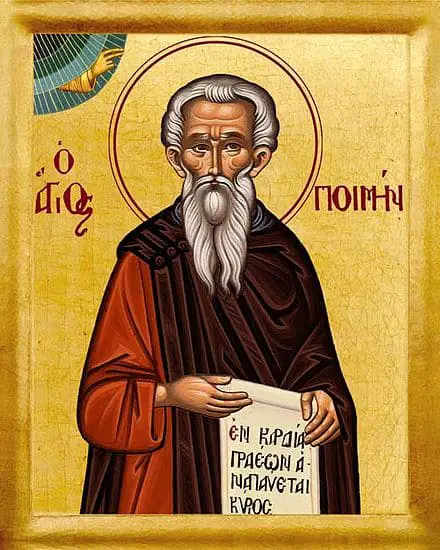
“A man may seem to be silent, but if his heart is condemning others, he is babbling ceaselessly. But there may be another who talks from morning till night and yet he is truly silent, that is, he says nothing that is not profitable.”
— St. Abba Pimen
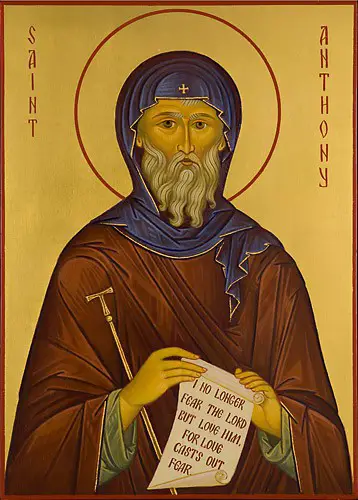
The devil is afraid of us when we pray and make sacrifices. He is also afraid when we are humble and good. He is especially afraid when we love Jesus very much. He runs away when we make the Sign of the Cross.
+ St. Anthony the Great
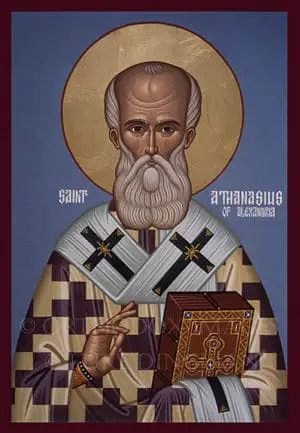
“Even on the Cross He did not hide Himself from sight; rather, He made all creation witness to the presence of its Maker.”
— St. Athanasius the Great, On the Incarnation
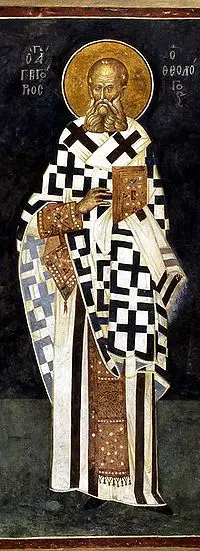
Yesterday I was crucified with Him; today I am glorified with Him.
Yesterday I died with Him; today I am made alive with Him.
Yesterday I was buried with Him; today I am raised up with Him.
Let us offer to Him Who suffered and rose again for us … ourselves, the possession most precious to God and most proper.
Let us become like Christ, since Christ became like us.
Let us become Divine for His sake, since for us He became Man.
He assumed the worse that He might give us the better. He became poor that by His poverty we might become rich. He accepted the form of a servant that we might win back our freedom.
He came down that we might be lifted up. He was tempted that through Him we might conquer. He was dishonored that He might glorify us. He died that He might save us. He ascended that He might draw to Himself us, who were thrown down through the fall of sin.
Let us give all, offer all, to Him who gave Himself a Ransom and Reconciliation for us.
We needed an incarnate God, a God put to death, that we might live. We were put to death together with Him that we might be cleansed. We rose again with Him because we were put to death with Him. We were glorified with Him because we rose again with Him.
A few drops of Blood recreate the whole of creation!
— St. Gregory the Theologian, Easter Orations
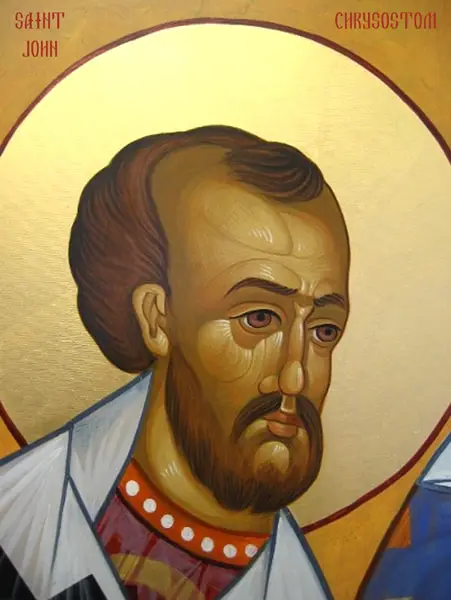
“Make sure that you do not limit your prayer merely to a particular part of the day. Turn to prayer at anytime.”
— St. John Chrysostom
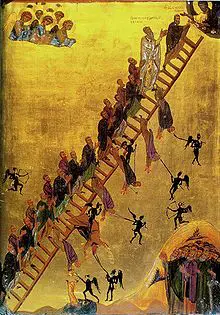
“An angel fell from Heaven without any other passion except pride, and so we may ask whether it is possible to ascend to Heaven by humility alone, without any other of the virtues.”
+ St. John Climacus, Ladder of Divine Ascent, Step 23.12
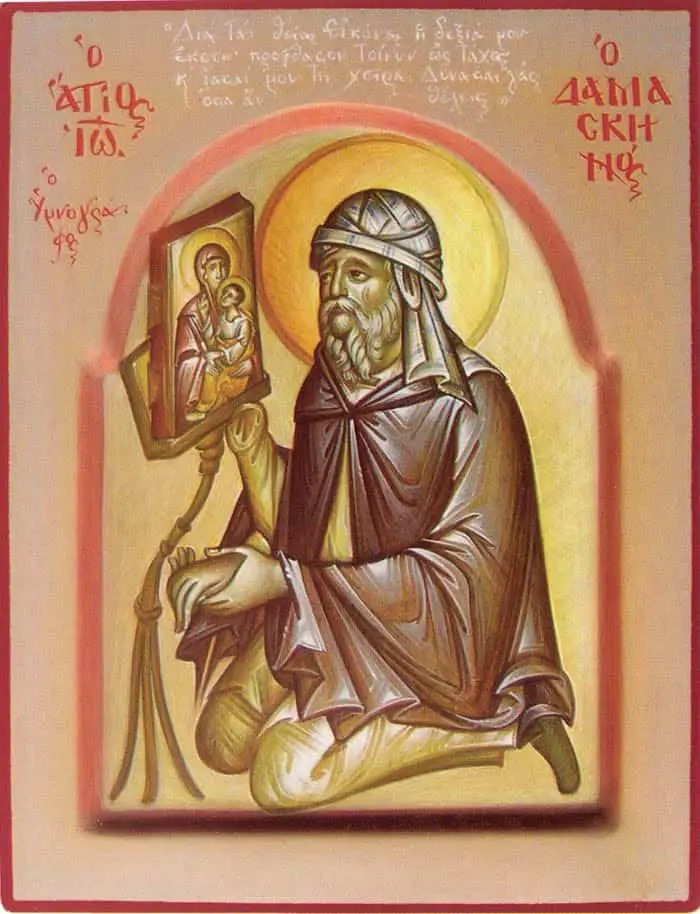
”Does any one who has divine knowledge and spiritual understanding not recognize that [iconoclasm] is a ruse of the devil? For he does not want his defeat and shame to be spread abroad, nor the glory of God and his saints to be recorded.”
— St. John of Damascus
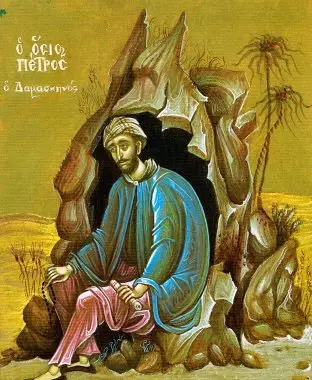
Whenever a person even slightly illumined reads the Scriptures or sings psalms he finds in them matter for contemplation and theology, one text supporting another. But he whose intellect is still unenlightened thinks that the Holy Scriptures are contradictory. Yet there is no contradiction in the Holy Scriptures: God forbid that there should be. For some texts are confirmed by others, while some were written with reference to a particular time or a particular person.
Thus every word of Scripture is beyond reproach. The appearance of contradiction is due to our ignorance. We ought not to find fault with the Scriptures, but to the limit of our capacity we should attend to them as they are, and not as we would like them to be, after the manner of the Greeks and Jews. For the Greeks and Jews refused to admit that they did not understand, but out of conceit and self- satisfaction they found fault with the Scriptures and with the natural order of things, and interpreted them as they saw fit and not according to the will of God. As a result they were led into delusion and gave themselves over to every kind of evil.
The person who searches for the meaning of the Scriptures will not put forward his own opinion, bad or good; but, as St Basil the Great and St John Chrysostom have said, he will take as his teacher, not the learning of this world, but Holy Scripture itself. Then if his heart is pure and God puts something unpremeditated into it, he will accept it, providing he can find confirmation for it in the Scriptures, as St Antony the Great says. For St Isaac says that the thoughts that enter spontaneously and without premeditation into the intellects of those pursuing a life of stillness are to be accepted; but that to investigate and then to draw one’s own conclusions is an act of self-will and results in material knowledge.
This is especially the case if a person does not approach the Scriptures through the door of humility but, as St John Chrysostom says, climbs up some other way, like a thief (cf. John 10:1), and forces them to accord with his allegorizing. For no one is more foolish than he who forces the meaning of the Scriptures or finds fault with them so as to demonstrate his own knowledge-or, rather, his own ignorance. What kind of knowledge can result from adapting the meaning of the Scriptures to suit one’s own likes and from daring to alter their words? The true sage is he who regards the text as authoritative and discovers, through the wisdom of the Spirit, the hidden mysteries to which the divine Scriptures bear witness.
The three great luminaries, St Basil the Great, St Gregory the Theologian and St John Chrysostom, are outstanding examples of this: they base themselves either on the particular text they are considering or on some other passage of Scripture. Thus no one can contradict them, for they do not adduce external support for what they say, so that it might be claimed that it was merely their own opinion, but refer directly to the text under discussion or to some other scriptural passage that sheds light on it. And in this they are right; for what they understand and expound comes from the Holy Spirit, of whose inspiration they have been found worthy.
No one, therefore, should do or mentally assent to anything if its integrity is in doubt and cannot be attested from Scripture. For what is the point of rejecting something whose integrity Scripture clearly attests as being in accordance with God’s will, in order to do something else, whether good or not? Only passion could provoke such behavior.
— St. Peter of Damascus, The Philokalia (vol. 3), “A Treasury of Divine Knowledge”
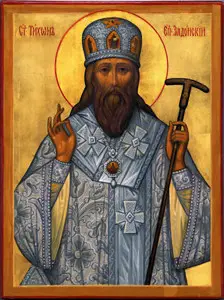
“When pride retreats from a man, humility begins to dwell in him, and the more pride is diminished, so much more does humility grow. The one gives way to the other as to its opposite. Darkness departs and light appears. Pride is darkness, but humility is light.”
— St. Tikhon of Zadonsk, Journey to Heaven: Counsels on the Particular Duties of Every Christian

“Give thanks to God for everything. Try to be manly. Pull yourself together a bit. Do you know what Christians are suffering in other countries? There are such difficulties in Russia! But here many exhibit indifference. There’s not enough disposition to kindness, love of devotion. You see, if we don’t begin to make war against evil, to expose those who tempt believers, then the evil will grow larger. If we throw aside fear then the faithful will be emboldened a bit. And those who wage war against the Church will have a harder time. In the past our nation lived spiritually, so God blessed her, and the saints helped us in miraculous fashion. And we were victorious against our enemies, who always outnumbered us. Today we continue to call ourselves Orthodox Christians, but we don’t live Orthodox lives.”
— Elder Paisios of Mount Athos
“Having beheld the Resurrection of Christ, let us worship the holy Lord Jesus, the only sinless one. We venerate Thy cross, O Christ, and Thy holy Resurrection we praise and glorify. For Thou art our God, and we know none other than Thee. We call on Thy name. O come, all ye faithful, let us venerate Christ’s holy Resurrection. For behold, through the cross joy hath come into all the world. Ever blessing the Lord, we praise his Resurrection: for by enduring the cross, he hath slain death by death.”
— Having Beheld the Resurrection of Christ, sung after the Gospel Reading of Sunday Matins
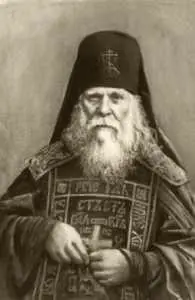
“No matter what bitterness has befallen you, no matter what unpleasantness has happened to you, say, “I shall endure this for Jesus Christ!” and it will be easier for you. For the name of Jesus Christ is powerful. Through it all unpleasantness is calmed, and demons disappear. Your disappointments will also be calmed and you pusillanimity will be quieted.”
— St. Anthony of Optina
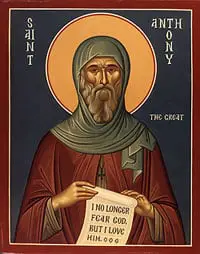
“One who knows oneself, knows God: and one who knows God is worthy to worship Him as is right. Therefore, my beloveds in the Lord, know yourselves.”
— St. Anthony the Great
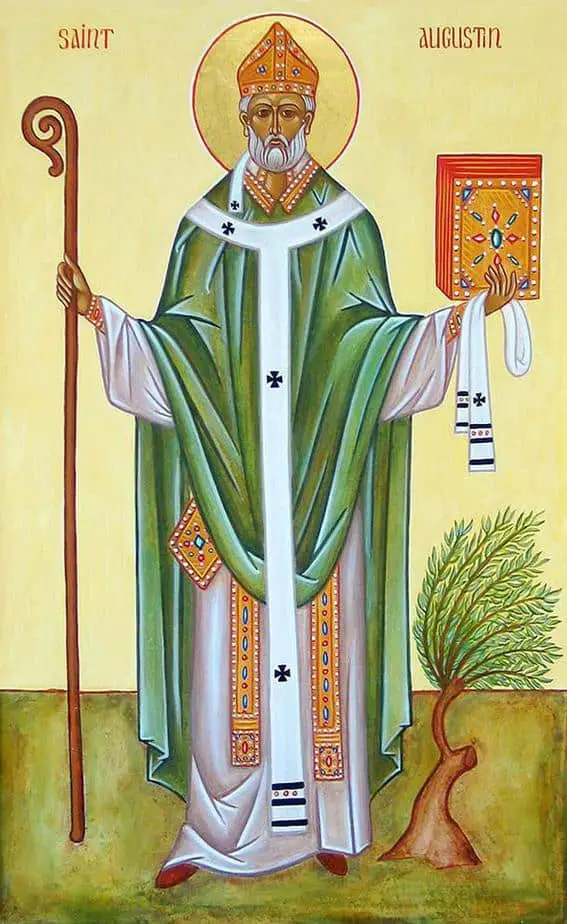
“Find out how much God has given you and from it take what you need; the remainder is needed by others.”
— St. Augustine of Hippo
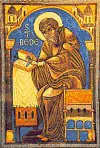
“Better a stupid and unlettered brother who, working the good things he knows, merits life in Heaven than one who though being distinguished for his learning in the Scriptures, or even holding the place of a doctor, lacks the bread of love.”– St. Bede the Venerable
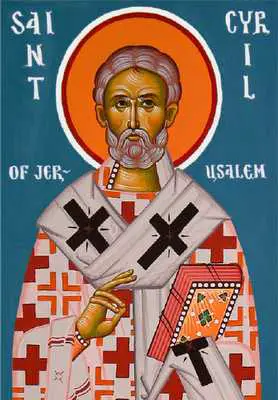
“Keep careful watch, to ensure that the enemy does not make off with any who are off guard or remiss; and that no heretic may pervert part of what you have been given. Accepting the faith is like putting into the bank the money we have given you; God will ask you for an account of this deposit.”
— St. Cyril of Jerusalem

“There is no sin which cannot be pardoned except that one which lacks repentance, and there is no gift which is not augmented save that which remains without acknowledgement. For the portion of the fool is small in his eyes.”
+ St. Isaac the Syrian, “Six Treatises on the Behaviour of Excellence”, Mystical Treatises by Isaac of Nineveh

“Correct faith does not benefit in anything when life is corrupted.”
— St. John Chrysostom
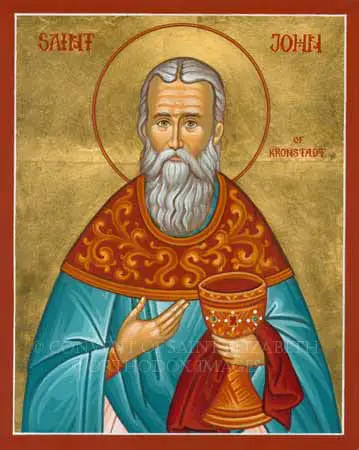
“‘I believe in one Holy, Catholic, and Apostolic Church.’ Do you believe that all Orthodox Christians are members of one and the same body, and that therefore we must all ‘keep the unity of the Spirit in the bond of peace,” must care for one… another, help one another? Do you believe that the saints are likewise members of the one body of Christ – that is, of the Church, and are our brethren, interceding for us before God in heaven? Do you respect every Christian, as a member of Christ, as His brother according to human nature? Do you love everybody as yourself, as your own flesh and blood? Do you generously forgive offenses? Do you help others in need, if you yourself have means? Do you teach the ignorant? Do you turn the sinner from the error of his ways? Do you comfort those who are in affliction? Faith in the Holy, Catholic, and Apostolic Church inspires, obliges you to do all this; and for all this you are promised a great reward from the Head of the Church – our Lord Jesus Christ.”
+ St. John of Kronstadt
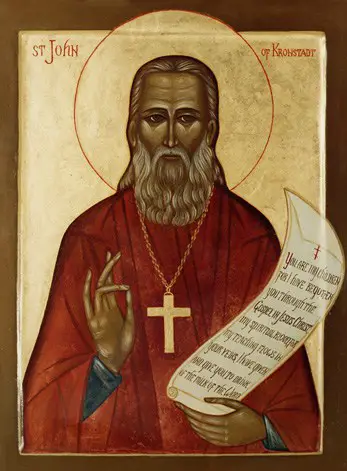
“‘When you look at the candles and lamps burning in church, rise in thought from the material fire to the immaterial fire of the Holy Ghost,’ for our God is a consuming fire.” When you see and smell the fragrant incense, rise in thought to the spiritual fragrance of the Holy Ghost, ‘for we are unto God a sweet savor of Christ.’”
— St. John of Kronstadt, My Life in Christ
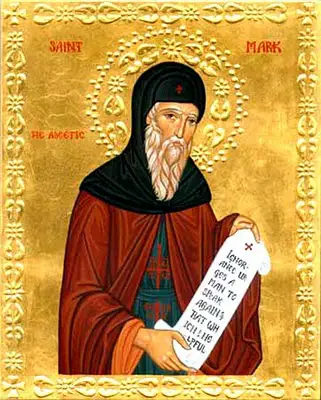
“Rain cannot fall without a cloud, and we cannot please God without a good conscience.”
— St. Mark the Ascetic
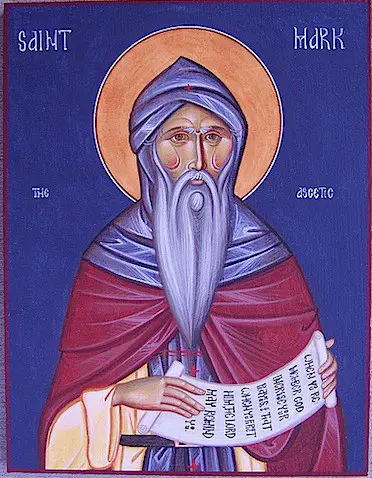
‘When harmed, insulted or persecuted by someone, do not think of the present but wait for the future, and you will find he has brought you much good, not only in this life but also in the life to come.”
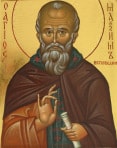
“He who has genuinely renounced worldly things, and lovingly and sincerely serves his neighbor, is soon set free from every passion and made a partaker of God’s love and knowledge.”
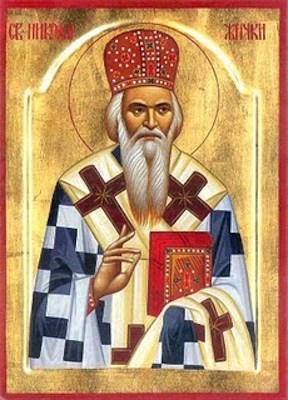
“Either we are fools for the world because of Christ or we are fools for Christ because of the world. O how short-lived is the sound of a word of the world! If the world would say to us ‘fool,’ the world will die and its word will die! What then is the value of its word? But if the heavenly, immortal ones say to us ‘fool,’ that will neither die nor is it removed from us as eternal condemnation.”
— St. Nikolai Velimirovich
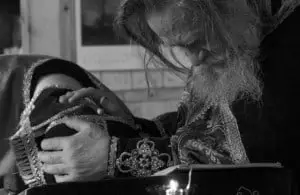
God is loving to man, and loving in no small measure. For say not, I have committed fornication and adultery: I have done dreadful things, and not once only, but often: will He forgive? Will He grant pardon? Hear what the Psalmist says: How great is the multitude of Your goodness, O Lord!
Your accumulated offenses surpass not the multitude of God’s mercies: your wounds surpass not the great Physician’s skill. Only give yourself up in faith: tell the Physician your ailment: say thou also, like David: I said, I will confess me my sin unto the Lord: and the same shall be done in your case, which he says immediately: And you forgave the wickedness of my heart.
+ St. Cyril of Jerusalem, 2.6, Catechetical Lectures
Read cheaply on Kindle. No Kindle? Try the free reader for your phone, tablet, or computer.
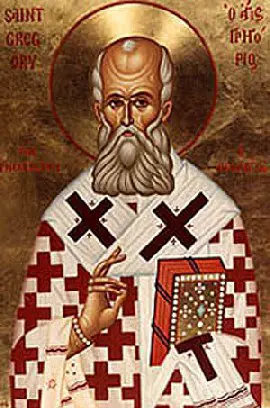
“Take, in the next place, the subjection by which you subject the Son to the Father. What, you say, is He not now subject, or must He, if He is God, be subject to God? You are fashioning your argument as if it concerned some robber, or some hostile deity. But look at it in this manner: that as for my sake He was called a curse, who destroyed my curse; and sin, who taketh away the sin of the world; and became a new Adam to take the place of the old, just so He makes my disobedience His own as Head of the whole body.
As long then as I am disobedient and rebellious, both by denial of God and by my passions, so long Christ also is called disobedient on my account. But when all things shall be subdued unto Him on the one hand by acknowledgment of Him, and on the other by a reformation, then He Himself also will have fulfilled His submission, bringing me whom He has saved to God. For this, according to my view, is the subjection of Christ; namely, the fulfilling of the Father’s Will. But as the Son subjects all to the Father, so does the Father to the Son; the One by His Work, the Other by His good pleasure, as we have already said. And thus He Who subjects presents to God that which he has subjected, making our condition His own. Of the same kind, it appears to me, is the expression, ‘My God, My God, why hast Thou forsaken Me?’ It was not He who was forsaken either by the Father, or by His own Godhead, as some have thought, as if It were afraid of the Passion, and therefore withdrew Itself from Him in His Sufferings (for who compelled Him either to be born on earth at all, or to be lifted up on the Cross?) But as I said, He was in His own Person representing us. For we were the forsaken and despised before, but now by the Sufferings of Him Who could not suffer, we were taken up and saved. Similarly, He makes His own our folly and our transgressions; and says what follows in the Psalm, for it is very evident that the 22nd Psalm refers to Christ.”
— St. Gregory the Theologian, On God and Christ, Oration 30, V
Note: The Orthodox Christian Church numbers the Psalms according to the Septuagint. Psalm 22 would be Psalm 23 in Protestant Bibles and begins, “My God, my God, why hast though forsaken me . . .” More Info

“To love Christ means not to be a hireling, not to look upon a noble life as an enterprise or trade, but to be a true benefactor and to do everything only for the sake of love for God.”
— St. John Chrysostom, Commentary on the Acts of the Apostles, Homily
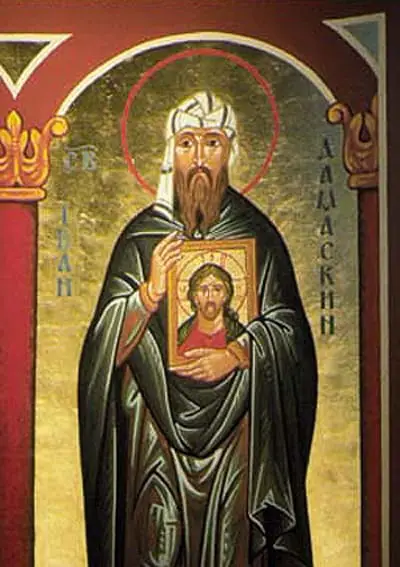
“The whole earth is a living icon of the face of God.”
— St. John of Damascus, Treatise
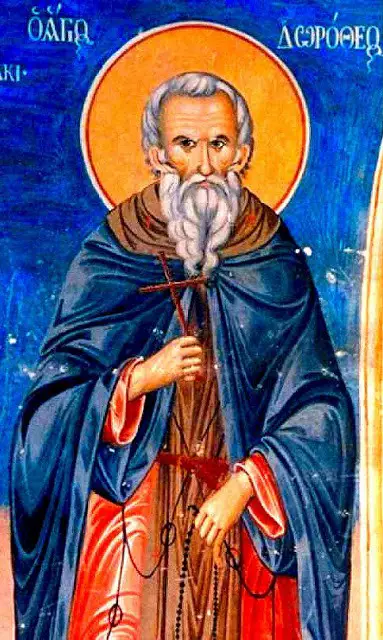
“The more one is united to his neighbor the more he is united to God.”
–St. Dorotheos of Gaza
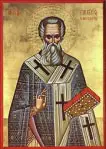
“All who have lived according to God still live unto God, though they have departed this life. For this reason, God is called the God of Abraham, Isaac and Jacob, since He is the God, not of the dead, but of the living (cf. Mt. 22:32).”
— St. Gregory the Theologian
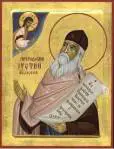
“A man in this world must solve a problem: to be with Christ, or to be against Him. And every man decides this, whether he wants to or not. He will either be a lover of Christ or a fighter of Christ. There is no third option.”
— St. Justin Popovich
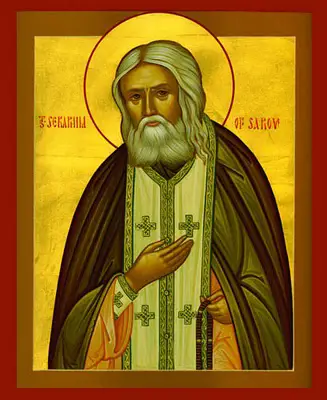
“The fact that I am a monk and you are a layman is of no importance. The Lord listens equally to the monk and to the man of the world provided both are true believer. He looks for a heart full of true faith into which to send his Spirit. For the heart of a man is capable of containing the Kingdom of God. The Holy Spirit and the Kingdom of God are one.”
— St. Seraphim of Sarov
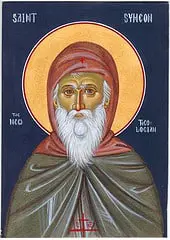
“Through repentance the filth of our foul actions is washed away. After this, we participate in the Holy Spirit, not automatically, but according to the faith, humility and inner disposition of the repentance in which our soul is engaged. For this reason it is good to repent each day as the act of repentance is unending.”
— St. Symeon the New Theologian, Philiokalia Volume 2
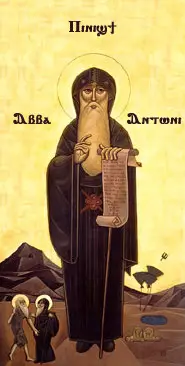
“Always have the fear of God before your eyes. Remember Him who gives death and lives. Hate the world and all that is in it. Hate the peace that comes from the flesh. Renounce this life, so that you may be alive to God.”
— St. Anthony the Great
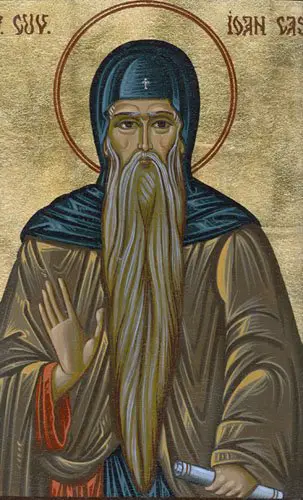
“It should be known, however, that the unclean spirits obey human beings in two ways. Either they are rendered submissive to the holiness of the faithful through divine grace and power or, having been soothed by sacrifices and by certain songs of the impious, they fawn over them as over friends.”
— St. John Cassian
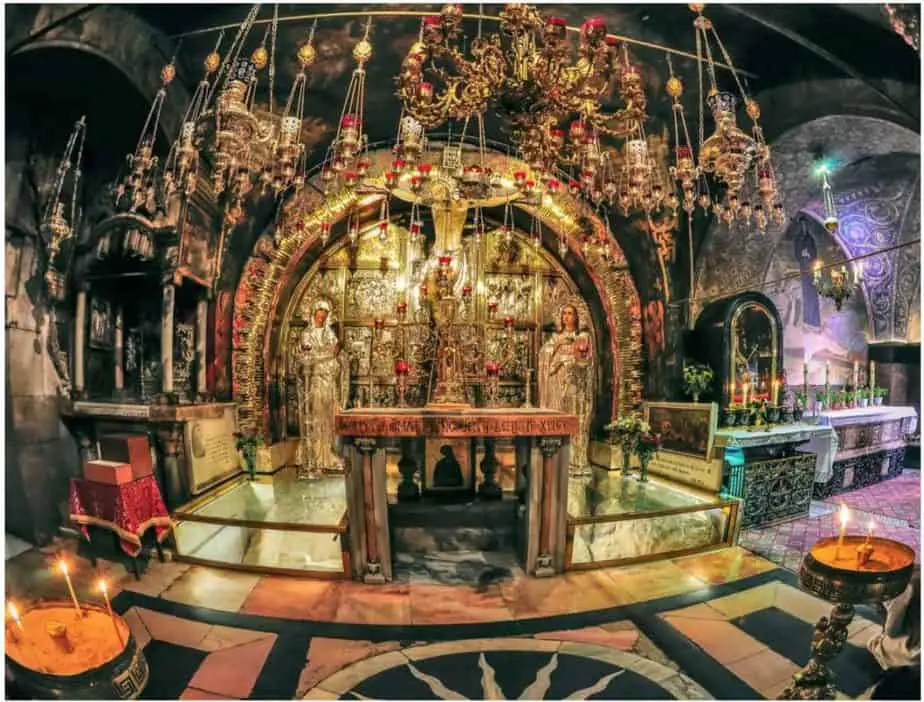
“Unless a man gives himself entirely to the Cross, in a spirit of humility and self-abasement; unless he casts himself down to be trampled underfoot by all and despised, accepting injustice, contempt and mockery; unless he undergoes all these things with joy for the sake of the Lord, not claiming any kind of human reward whatsoever – glory or honor or earthly pleasures – he cannot become a true Christian.”
+ St. Mark the Ascetic, “Letter to Nicolas the Solitary”, The Philokalia: The Complete Text (Vol. 1)

“You cannot be too gentle, too kind. Shun even to appear harsh in your treatment of each other. Joy, radiant joy, streams from the face of one who gives and kindles joy in the heart of one who receives. All condemnation is from the devil. Never condemn each other, not even those whom you catch committing an evil deed. We condemn others only because we shun knowing ourselves. When we gaze at our own failings, we see such a morass of filth that nothing in another can equal it. That is why we turn away, and make much of the faults of others. Keep away from the spilling of speech. Instead of condemning others, strive to reach inner peace. Keep silent, refrain from judgement. This will raise you above the deadly arrows of slander, insult, outrage, and will shield your glowing hearts against the evil that creeps around.”
— St. Seraphim of Sarov,
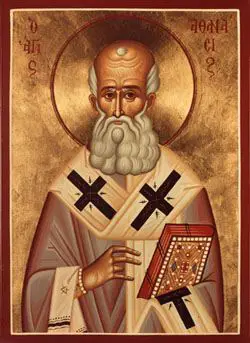
“The Lord did not come to make a display. He came to heal and to teach suffering men. For one who wanted to make a display the thing would have been just to appear and dazzle the beholders. But for Him Who came to heal and to teach the way was not merely to dwell here, but to put Himself at the disposal of those who needed Him, and to be manifested according as they could bear it, not vitiating the value of the Divine appearing by exceeding their capacity to receive it.”
— St. Athanasius the Great, On the Incarnation
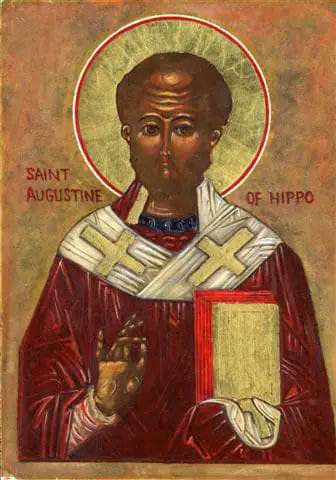
“What is perfection in love? Love your enemies in such a way that you would desire to make them your brothers … For so did He love, Who hanging on the Cross, said ‘Father, forgive them, for they know not what they do.’” (Luke 23:34)
— St. Augustine of Hippo, Sermons on I John, I.9
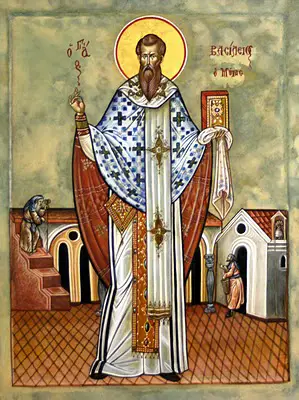
“If you see your neighbor in sin, don’t look only at this, but also think about what he has done or does that is good, and infrequently trying this in general, while not partially judging, you will find that he is better than you.”
— St. Basil the Great, Conversations, 20
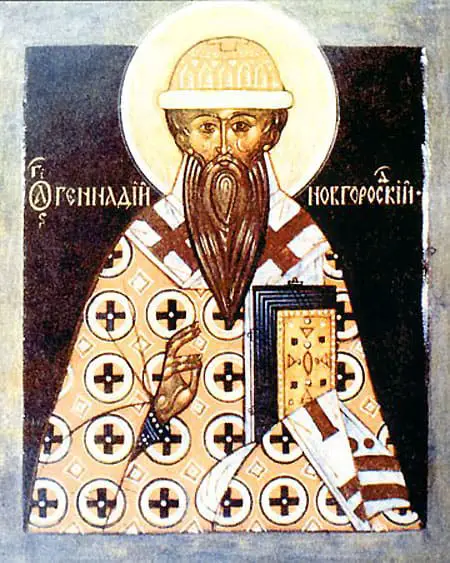
“Seek the simplest in all things, in food, clothing, without being ashamed of poverty. For a great part of the world lives in poverty. Do not say, “I am the son of a rich man. It is shameful for me to be in poverty.” Christ, your Heavenly Father, Who gave birth to you in the baptistery, is not in worldly riches. Rather he walked in poverty and had nowhere to lay His head. ”
— St. Gennadius of Constantinople, The Golden Chain, 24-25
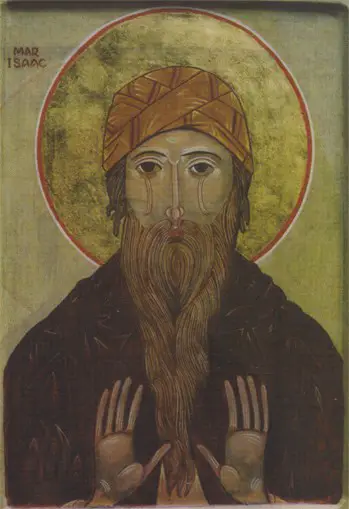
“If you are truly merciful, then when what is yours is unjustly taken, don’t be sad inside, and do not tell of our loss to your neighbor. Let a better loss, inflicted by those who insult you, be absorbed by your mercy”
— St. Isaac the Syrian, Homilies, 58

“Let them push you, but do not push; Let them crucify you, but do not crucify. Let them insult, but do not insult. Let them slander, but do not slander. Be meek, and do not be zealous in evil.”
+ St. Isaac the Syrian, Homily, 89
(Cited source but so far have not found this homily in the Ascetical Homilies).
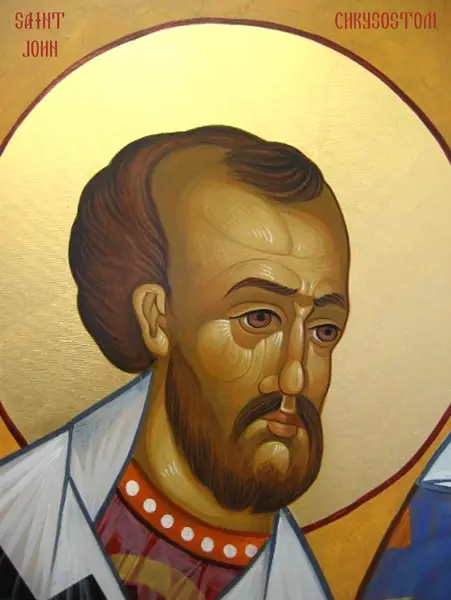
“As a moth gnaws a garment, so doth envy consume a man.”— St. John Chrysostom
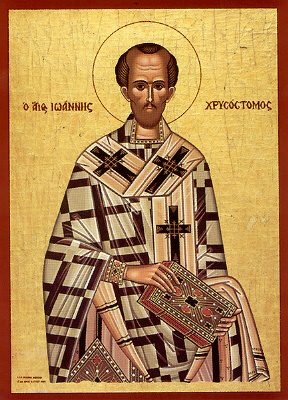
“But now your children will utter songs and dances of Satan, like cooks, and caterers, and musicians; no one knows any psalm but it seems a thing to be ashamed of even, a mockery and a joke. There is the treasury house of all these evils. For whatsoever soil the plant stands in, such is the fruit it bears; if in a sandy and salty soil, of like nature is its fruit; if in a sweet and rich one, it is again similar. So the matter of instruction is a sort of fountain. Teach him to sing those psalms which are so full of the love of wisdom. When in these you have led him on from childhood, by little and little you will lead him forward even to the higher things.”
— St. John Chrysostom, Homily IX on Colossians
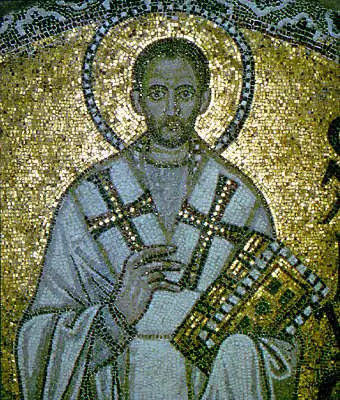
“Let the mouth also fast from disgraceful speeches and railings. For what does it profit if we abstain from fish and fowl and yet bite and devour our brothers and sisters? The evil speaker eats the flesh of his brother and bites the body of his neighbor. ”
+ St. John Chrysostom, Homily III, On the Statues
Also available very cheaply in a Kindle version that can be read with the free Kindle reading app.
On the Statutes Homily III

“One who strictly prosecutes the misdemeanors of others will find not condescension towards his own. ”
+ St. John Chrysostom, 3.6, On the Statues
Also available very cheaply in a Kindle version that can be read with the free Kindle reading app.
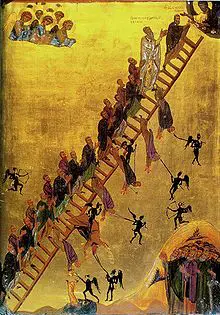
“A good grape-picker, who eats the ripe grapes, will not start gathering unripe ones. A charitable and sensible mind takes careful note of whatever virtues it sees in anyone. But a fool looks for faults and defects. And of such it is said: ‘They have searched out iniquity and expired in the search.’
Do not condemn, even if you see with your eyes, for they are often deceived ”
— St. John of the Ladder, Ladder of Divine Ascent, Steps 10.16-17
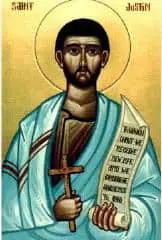
“Let it be understood that those who are not found living as He taught are not Christian- even though they profess with the lips the teaching of Christ.”
— St. Justin Martyr
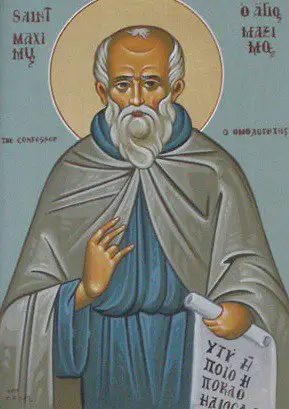
“In times of peaceful relationships do not recall what was said by a brother when there was bad feeling between you, even if offensive things were said to your face, or to another person about you and you subsequently heard of them. Otherwise you will harbor thoughts of rancor and revert to your destructive hatred of your brother.”
+ St. Maximos the Confessor, Four Hundred Texts on Love 4.34, The Philokalia: The Complete Text (Vol. 2)

“When a man’s intellect is constantly with God, his desire grows beyond all measure into an intense longing for God and his incisiveness is completely transformed into divine love. For by continual participation in the divine radiance his intellect becomes totally filled with light; and when it has reintegrated its passable aspect, it redirects this aspect towards God, as we have said, filling it with an incomprehensible and intense longing for Him and with unceasing love, thus drawing it entirely away from worldly things to the divine.”
— St. Maximos the Confessor, Four Hundred Texts on Love 2.48, The Philokalia: The Complete Text (Vol. 2)
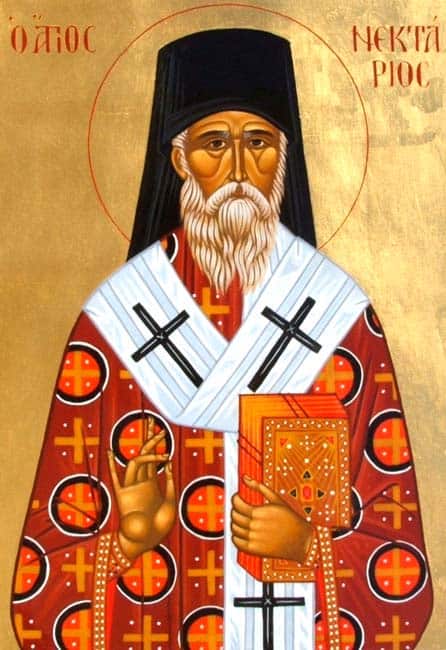
“A Christian must be courteous to all. His words and deeds should breath with the grace of the Holy Spirit, which abides in his soul, so that in this way he might glorify the name of God. He who regulates all of his speech also regulates all of his actions. He who keeps watch over the words he is about say also keeps watch over the deeds he intends to do, and he never goes out of the bounds good and benevolent conduct. The graceful speech of a Christian is characterized by delicateness and politeness. This fact, born of love, produces peace and joy. On the other hand, boorishness gives birth to hatred, enmity, affliction, competitiveness, disorder and wars.”
— St. Nektarius of Aegina, The Path to Happiness, 7
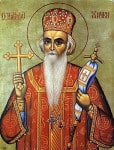
“God and the devil are found at opposite poles. No one can turn his face to God who has not first turned his back on sin. When a man turns his face to God, all of his paths lead to God. When a man turns his face away from God, all of his paths lead to perdition. When a man finally rejects God by word and in his heart, he is no longer fit to do anything that does not serve for his complete destruction, both of his soul and of his body.”
+ St. Nikolai Velimirovich, Thoughts on Good and Evil
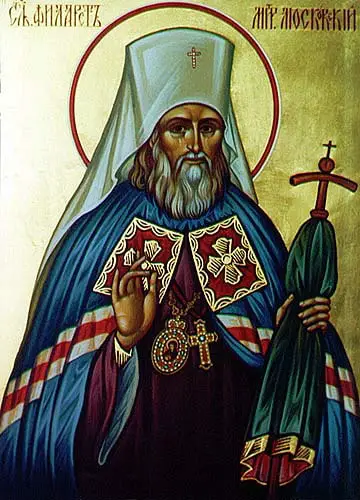
“The Church is holy, although there are sinners within her. Those who sin, but who cleanse themselves with true repentance, do not keep the Church from being holy. But unrepentant sinners are cut off, whether visibly by Church authority, or invisible by the judgement of God, from the body of the Church. And so in this regard the Church remains holy. ”
— St. Philaret of Moscow, Catechesis
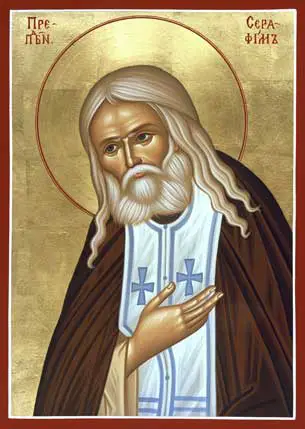
“Fasting, prayer, alms, and every other good Christian deed is good in itself, but the purpose of the Christian life consists not only in the fulfillment of one or another of them. The true purpose of our Christian life is the acquisition of the Holy Spirit of God. But fasting, prayer, alms and every good deed done for the sake of Christ is a means to the attainment of the Holy Spirit. Note that only good deeds done for the sake of Christ bear the fruit of the Holy Spirit. Everything else that is not done for the sake of Christ, even if it is good, does not bring us a reward in the life to come, not does it bring the grace of God in this life. This is why our Lord Jesus Christ said, ‘Whoever gathereth not with me scattereth’ (Matt. 12:30).
— St. Seraphim of Sarov, Conversation on the Goal of the Christian Life
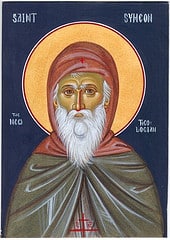
“Implore God with prayers and tears to send you a guide who is dispassionate and holy. But you yourself should also study the divine writings – especially the works of the fathers that deal with the practice of the virtues – so that you can compare the teachings of your master with them; for thus you will see and observe them as in a mirror. Take to heart and keep in mind those of his teachings that agree with the divine writings, but separate out and reject those that are false and incongruent. Otherwise you will be led astray. For in these days there are all too many deceivers and false prophets. ”
+ St. Symeon the New Theologian, Practical and Theological Texts, Text 33
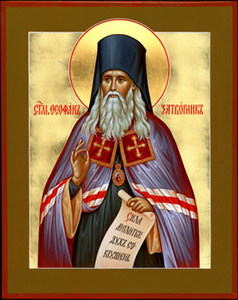
“Love covers a multitude of sins,” (I Pet. 4:8). That is, for love towards one’s neighbor, God forgives the sins of the one who loves.”
— St. Theophan the Recluse, Letters, VI.949
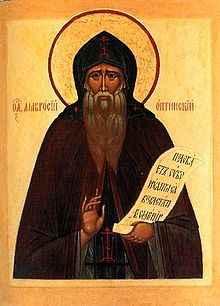
“If you find that there is no love in you, but you want to have it, then do deeds of love, even though you do them without love in the beginning. The Lord will see you desire and striving and will put love in your heart.”
— St. Ambrose of Optina
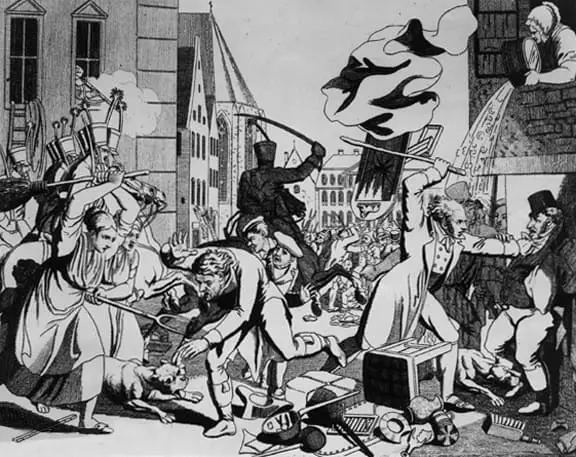
“A time is coming when men will go mad, and when they see someone who is not mad, they will attack him, saying, ‘You are mad; you are not like us.’”
+ St. Anthony the Great, The Sayings of the Desert Fathers: The Alphabetical Collection
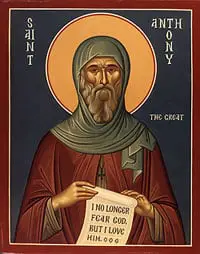
“Learn to love humility, for it will cover all your sins. All sins are repulsive before God, but the most repulsive of all is pride of the heart. Do not consider yourself learned and wise; otherwise, all your efforts will be destroyed, and your boat will reach the harbor empty. If you have great authority, do not threaten anyone with death. Know that, according to nature, you too are susceptible to death, and that every soul sheds its body as its final garment.”
— St. Anthony the Great
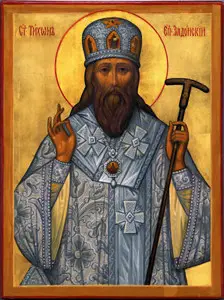
“You came into the world to save sinners; therefore You came to save Me also? You came to find and to save him who was lost; therefore You came to seek me too, for I am one of the lost. O Lord, O my God and Creator! I should have come to You as a transgressor of Your law. I should have fallen at Your feet, cast myself down before You, humbly begging forgiveness, pleading with You and craving Your mercy. But You Yourself have come to me, wretched and good-for-nothing servant that I am; my Lord has come to me, His enemy and apostate; my Master has come and has bestowed his love of mankind upon me. Listen my soul: God has come to us.”
— St. Tikhon of Zadonsk, A Treasury of Russian Spirituality
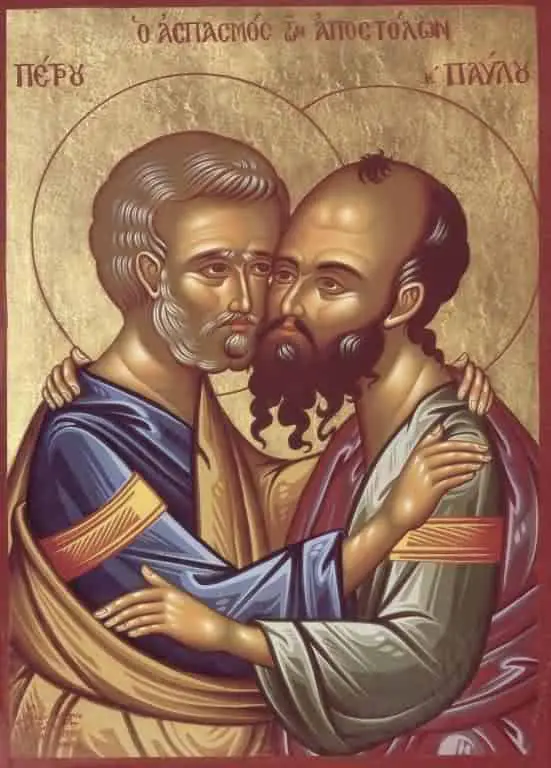
The steadfast and divinely eloquent preachers,/ the foremost of Thine apostles, O Lord,/ hast Thou received into the delight of Thy good things and into rest;/ for Thou hast accepted their pangs and death as greater than any wholeburnt offering,// O Thou Who alone knowest the hearts of men.
Holy Apostles Peter & Paul Kontakion, Tone 2
Commemorated June 29/July 12
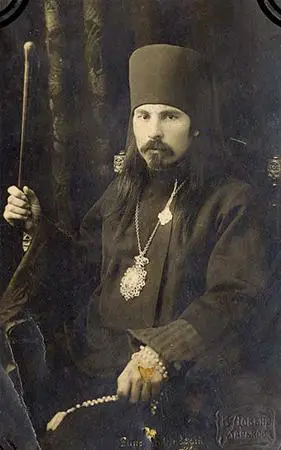
“The acquisition of of holiness is not the exclusive business of monks, as certain people think. People with families are also called to holiness, as are those in all kinds of professions, who live in the world, since the commandment about perfection and holiness is given not only to monks, but to all people”
— Hieromartyr Onuphry Gagaluk

O first enthroned among the apostles/ and teachers of the whole world;/ entreat the Master of all,/ that He grant peace to the world// and great mercy to our souls.
Holy Apostles Peter & Paul Troparion, Tone 4
Commemorated June 29/July 12
“Illumine our hearts, O Master Who lovest mankind, with the pure light of Thy divine knowledge. Open the eyes of our mind to the understanding of Thy gospel teachings. Implant also in us the fear of Thy blessed commandments, that trampling down all carnal desires, we may enter upon a spiritual manner of living, both thinking and doing such things as are well-pleasing unto Thee. For Thou art the illumination of our souls and bodies, O Christ our God, and unto Thee we ascribe glory, together with Thy Father, Who is from everlasting, and Thine all-holy, good, and life-creating Spirit, now and ever and unto ages of ages. Amen.”
— Prayer read silently by the priest before the reading of the Gospel
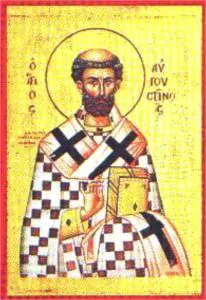
“God has promised forgiveness to your repentance, but He has not promised tomorrow to your procrastination.”
St. Augustine of Hippo
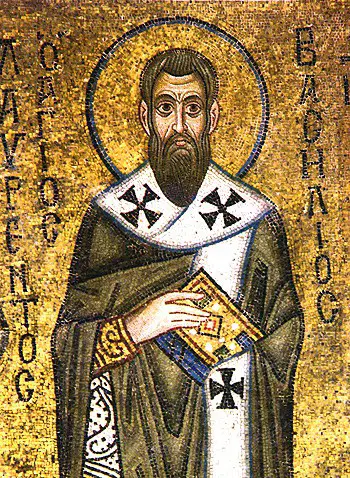
“Do not say, ‘This happened by chance, while this came to be of itself.’ In all that exists there is nothing disorderly, nothing indefinite, nothing without purpose, nothing by chance … How many hairs are on your head? God will not forget one of them. Do you see how nothing, even the smallest thing, escapes the gaze of God? ”
— St. Basil the Great
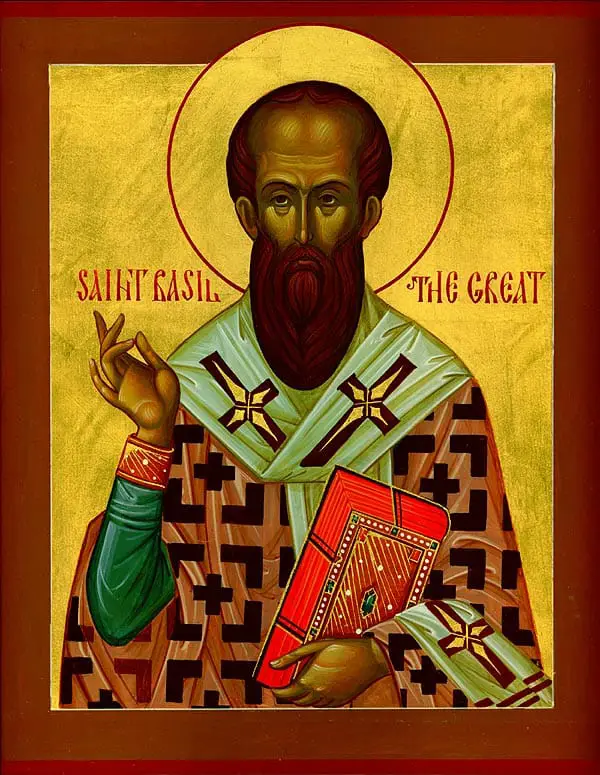
“The woman who purposely destroys her unborn child is guilty of murder. With us there is no nice inquiry as to its being formed or unformed. In this case it is not only the being about to be born who is vindicated, but the woman in her attack upon herself; because in most cases women who make such attempts die. The destruction of the embryo is an additional crime, a second murder, at all events if we regard it as done with intent. The punishment, however, of these women should not be for life, but for the term of ten years. And let their treatment depend not on mere lapse of time, but on the character of their repentance.”
— St. Basil the Great, Letter 188:2 or First Canonical Letter, Canon 2
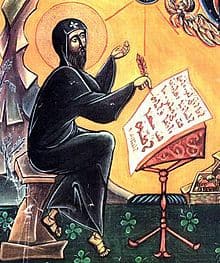
“No one should think that the Creation of Six Days is an allegory; it is likewise impermissible to say that what seems, according to the account, to have been created in the course of six days, was created in a single instant, and likewise that certain names presented in this account either signify nothing, or signify something else. On the contrary, one must know that just as the heaven and the earth which were created in the beginning are actually the heaven and the earth and not something else understood under the names of heaven and earth, so also everything else that is spoken of as being created and brought into order after the creation of heaven and earth is not empty names, but the very essence of the created natures corresponds to the force of these names.”
— St. Ephraim the Syrian, Commentary on Genesis, Ch. 1
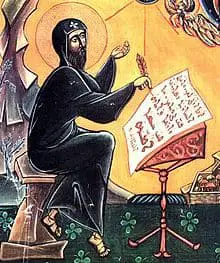
“When you begin to read or listen to the Holy Scriptures, pray to God thus: “Lord Jesus Christ, open the ears and eyes of my heart so that I may hear Thy words and understand them, and may fulfill Thy will.” Always pray to God like this, that He might illumine your mind and open to you the power of His words. Many, having trusted in their own reason, have turned away into deception.”
— St. Ephraim the Syrian
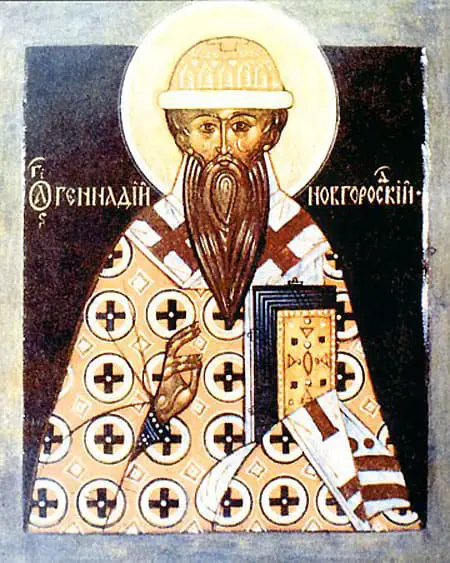
“Do not say: ‘I have sinned much, and therefore I am not bold enough to fall down before God.’ Do not despair. Simply do not increase your sins in despair and, with the help of the All-merciful One, you will not be put to shame. For He said, ‘he who comes to Me I will not cast out.’ (John. 6:37) And so, be bold and believe that He is pure and cleanses those who draw near to Him. If you want to accomplish true repentance, show it with your deeds. If you have fallen into pride, show humility; if into drunkenness, show sobriety; if into defilement, show purity of life. For it is said, ‘Turn away from evil and do good.’ (I Pet. 3:11)”
— St. Gennadius of Constantinople, The Golden Chain, 87-89
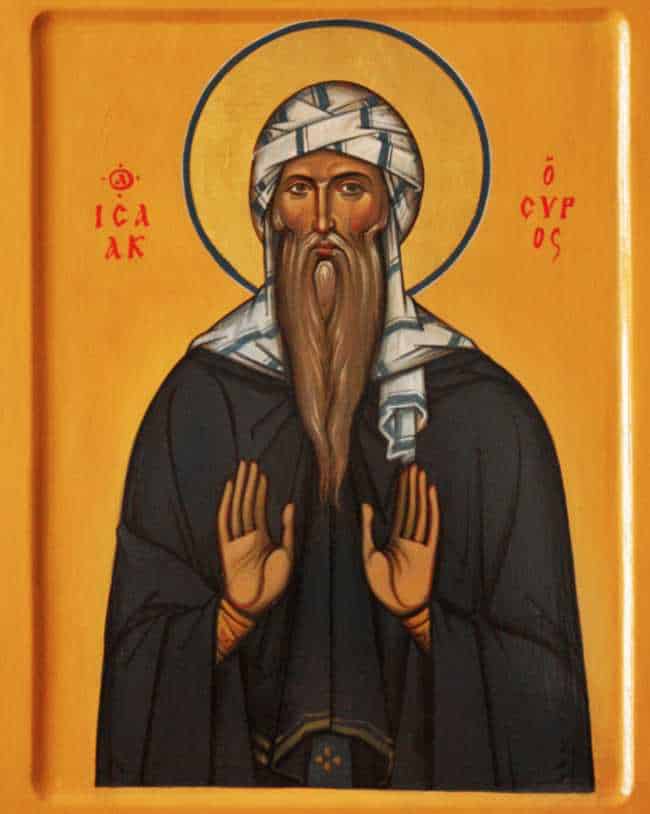
“In all things that you find in the Holy Scriptures, seek out the purpose of the words, that you may enter into the depth of the thoughts of the saints and understand them with greater exactness. Do not approach the reading of the Divine Scriptures without prayer and asking the help of God. Consider prayer to be the key to the true understanding of that which is said in the Holy Scriptures. ”
— St. Isaac the Syrian, Sermon 1.85

“The soul that loves God has its rest in God and in God alone. In all the paths that men walk in in the world, they do not attain peace until they draw nigh to hope in God.”
— St. Isaac the Syrian, Homily 56, 89

“The soul that loves God has its rest in God and in God alone. In all the paths that men walk in in the world, they do not attain peace until they draw nigh to hope in God.”
— St. Isaac the Syrian, Homily 56, 89
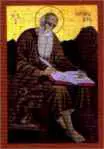
“The proud sin greatly who, after studying secular literature and having turned to the Holy Scriptures, consider all that they say to be the Law of God, and do not endeavour to come to know the thoughts of the prophets and apostles, but seek out from the scriptures inapropriate texts for their own thoughts, as if this were a good work, and not the most defiled kind of study: to distort the thoughts of Scripture and submit them to their own intentions, in spite of obvious contradictions… It is proper to children and charlatans to try to teach that which they do not know.”
–St. Jerome, Letter to St. Paulinus
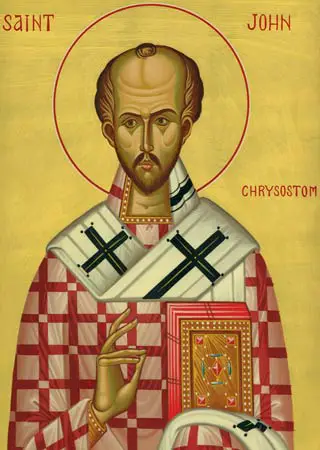
“Just as those who are deprived of light cannot walk straight, so also those who do not behold the ray of the Holy Scriptures must necessarily sin, since they walk in the deepest darkness.”
— St. John Chrysostom, Conversations on the Epistle to the Romans, 0.1

“Of all the afflictions that burden the human race, there is not one, whether spiritual or bodily, that cannot be healed by the Holy Scriptures.”
— St. John Chrysostom, Conversations on the Book of Genesis, 29.1
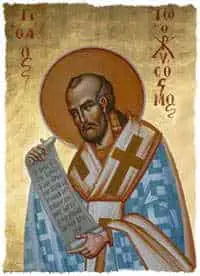
“Perhaps one who loves to speak from his own wisdom here also will not allow that the rivers are actually rivers, nor that the waters are precisely waters, but will instill in those who allow themselves to listen to them, that they (under the names of rivers and waters) represented something else. But I entreat you, let us not pay heed to these people, let us stop up our hearing against them, and let us believe the Divine Scripture, and following what is written in it, let us strive to preserve in our souls sound dogmas.”
–St. John Chrysostom, Homilies on Genesis, XIII, 4

“The Holy Scriptures lead us to God and open the path to the knowledge of God.”
— St. John Chrysostom, Conversations on the Gospel of John, 59:2

“When we teach children to be good, to be gentle, to be forgiving (all these are attributes of God), to be generous, to love their fellow men, to regard this present age as nothing, we instill virtue in their souls, and reveal the image of God within them.”
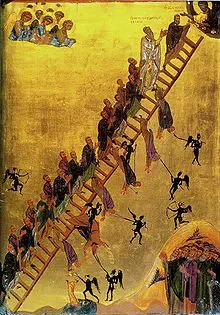
“When our praisers, or rather our seducers, begin to praise us, let us briefly call to mind the multitude of our sins, and we shall find ourselves unworthy of what is said or done in our honor.”
+ St. John of the Ladder, Ladder of Divine Ascent, Step 22.42
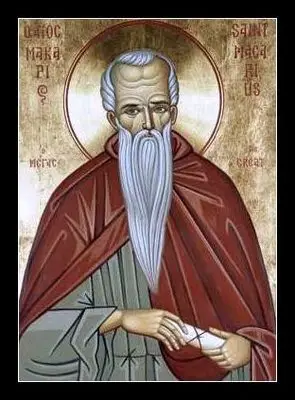
“That Paradise was closed and that a Cherubim was commanded to prevent man from entering it by a flaming sword: of this we believe that in visible fashion it was indeed just as it is written, and at the same time we find that this occurs mystically in every soul.”
— St. Marcarius the Great, Seven Homilies, IV, 5
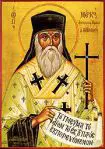
“A humble man who lives a spiritual life, when he reads the Holy Scriptures, while relate all things to himself and not to others.”
– St. Mark the Ascetic, Sermon, 1.6
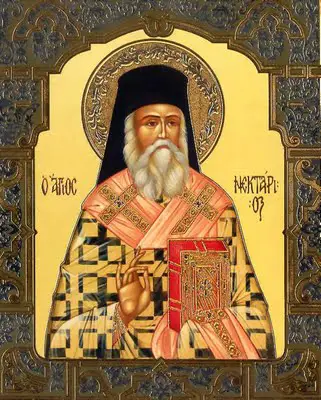
“How mistaken are those people who seek happiness outside of themselves, in foreign lands and journeys, in riches and glory, in great possessions and pleasures, in diversions and vain things, which have a bitter end! In the same thing to construct the tower of happiness outside of ourselves as it is to build a house in a place that is consistently shaken by earthquakes. Happiness is found within ourselves, and blessed is the man who has understood this. Happiness is a pure heart, for such a heart becomes the throne of God. Thus says Christ of those who have pure hearts: “I will visit them, and will walk in them, and I will be a God to them, and they will be my people.” (II Cor. 6:16) What can be lacking to them? Nothing, nothing at all! For they have the greatest good in their hearts: God Himself!”
— St. Nektarios of Aegino, Path to Happiness, 1
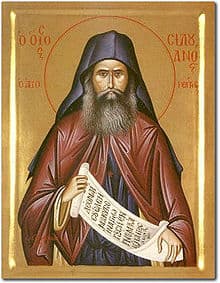
“The saints were people like all of us. Many of them came out of great sins, but by repentance they attained the Kingdom of Heaven. And everyone who comes there comes through repentance, which the merciful Lord has given us through His sufferings.”
+ St. Silouan the Athonite, Wisdom from Mount Athos: The Writings of Staretz Silouan, 1866-1938, XII.10
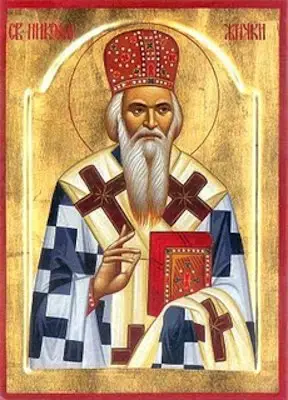
“Just as people do not enter a war in order to enjoy war, but in order to be saved from war, so we do not enter this world in order to enjoy this world, but in order to be saved from it. People go to was for the sake of something greater than war. So we also enter this temporal life for the sake of something greater: for eternal life. And as soldiers think with joy about returning home, so also Christians constantly remember the end of their lives and their return to their heavenly fatherland.”
–St. Nikolai Velimirovich, Thoughts on Good and Evil
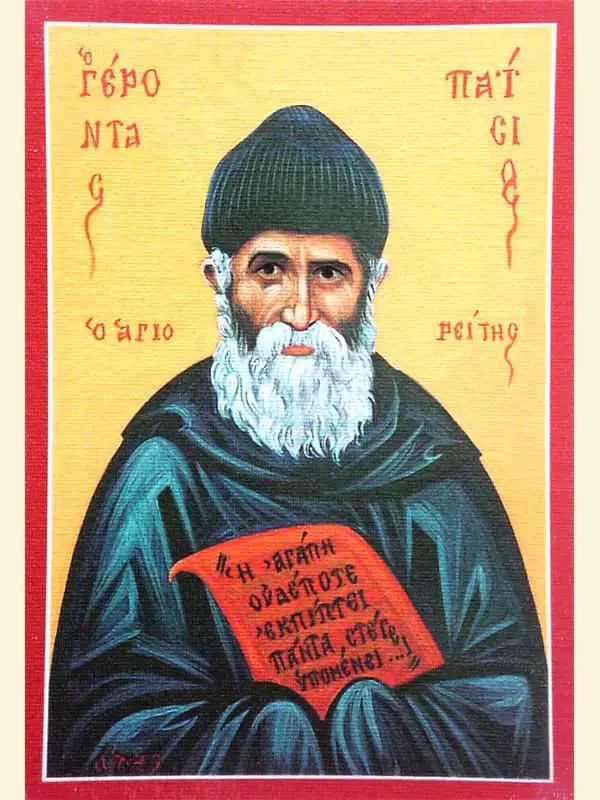
“The devil does not hunt after those who are lost; he hunts after those who are aware, those who are close to God. He takes from them trust in God and begins to afflict them with self-assurance, logic, thinking, criticism. Therefore we should not trust our logical minds.”
–Elder Paisios of Mt. Athos
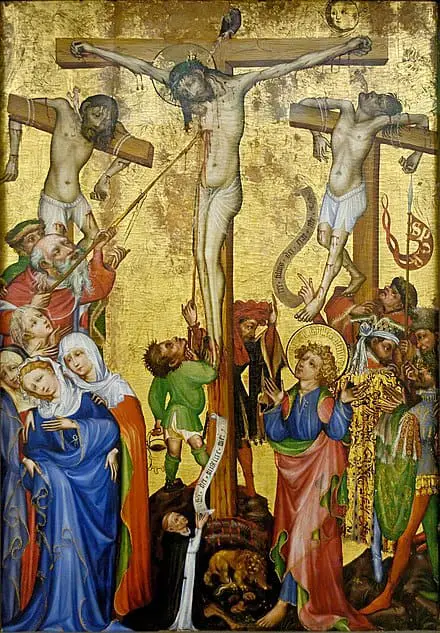
“The Wise Thief didst Thou make worthy of Paradise,
in a single moment, O Lord.
By the wood of Thy Cross illumine me as well, and save me.”
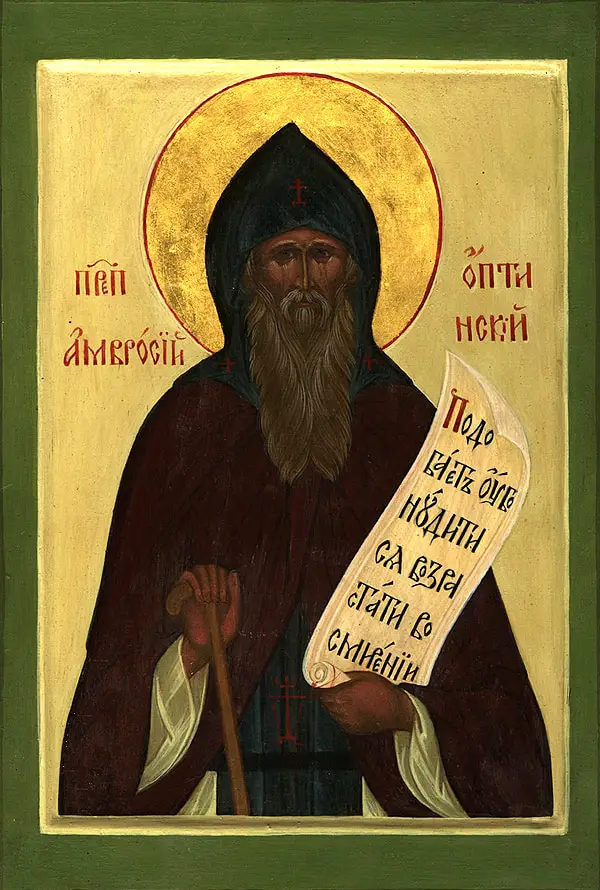
“We must begin with thanksgiving for everything. The beginning of joy is to be content with your situation.”
–St. Ambrose of Optina

“Never confuse the person formed in the image of God, with the evil that is in him; because evil is but a chance misfortune, an illness, a devilish reverie. But the very essence of the person is the image of God, and this remains in him despite every disfigurement.”
+ St. John of Kronstadt, My Life in Christ
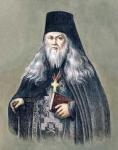
“If you would be simple-hearted like the Apostles, would not conceal your human shortcomings, would not pretend to be especially pious, if you would walk free from hypocrisy, then that is the path. While it is easy, not everyone can find it or understand it. This path is the shortest way to salvation and attracts the grace of God. Unpretentiousness, guilelessness, frankness of soul – this is what is pleasing to the Lord, Who is lowly of heart. Except ye become like children, ye shall not enter into the Kingdom of God (Matt. 18:13).”
+ Elder Leonid of Optina
“I wish you many years — but not for them to be too happy, because happiness in the world isn’t really so healthy. When a man is too happy in this world, he forgets God and forgets death.”
– Elder Paisius
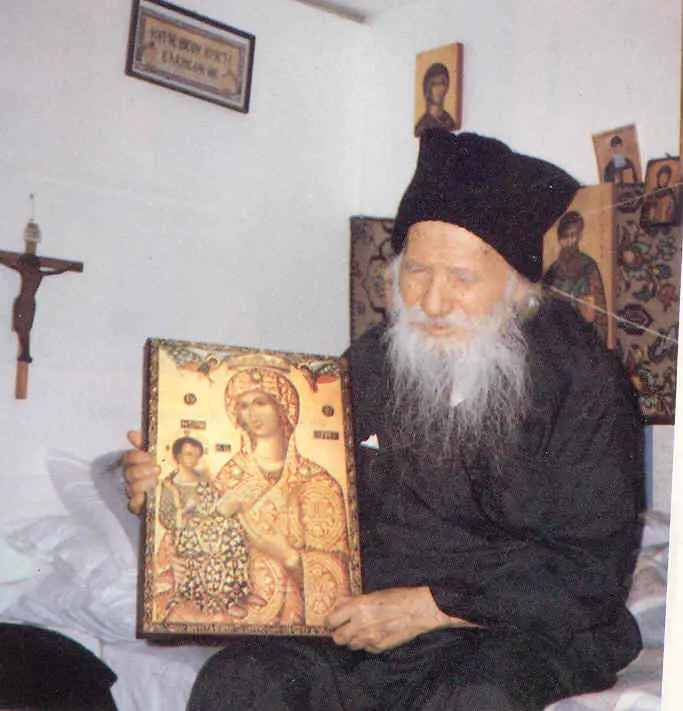
“What saves and makes for good children is the life of the parents in the home. The parents need to devote themselves to the love of God. They need to become saints in their relations to their children through their mildness, patience, and love. They need to make a new start every day, with a fresh outlook, renewed enthusiasm and love for their children. And the joy that will come to them, the holiness that will visit them, will shower grace on their children. Generally the parents are to blame for the bad behavior of the children. And their behavior is not improved by reprimands, disciplining, or strictness. If the parents do not pursue a life of holiness and if they don’t engage in spiritual struggle, they make great mistakes and transmit the faults they have within them. If the parents do not live a holy life and do not display love towards each other, the devil torments the parents with the reactions of the children. Love, harmony and understanding between parents are what are required for the children. This provides a great sense of security and certainty.”
— St. Porphyrios
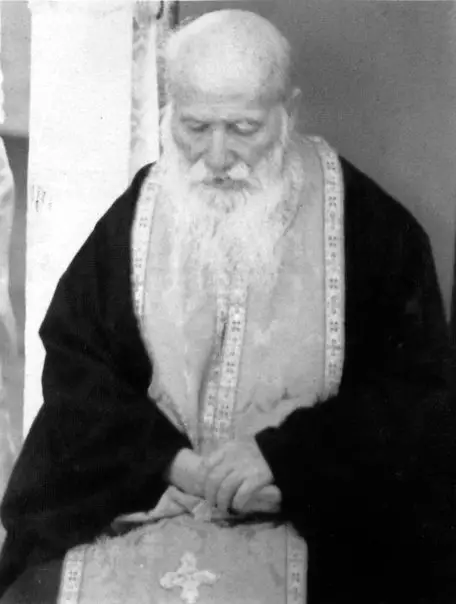
“You don’t become holy by fighting evil. Let evil be. Look towards Christ and that will save you. What makes a person saintly is love.”
— St. Porphyrios
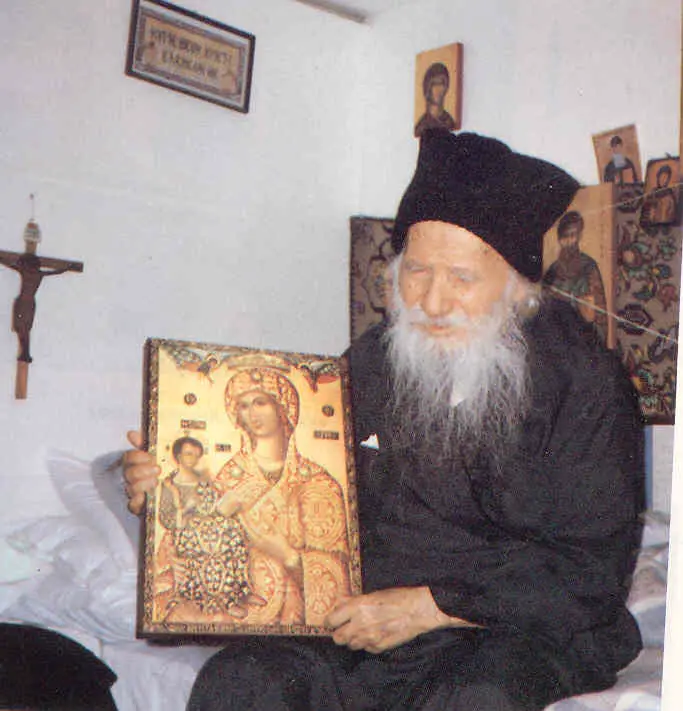
“What saves and makes for good children is the life of the parents in the home. The parents need to devote themselves to the love of God. They need to become saints in their relations to their children through their mildness, patience, and love. They need to make a new start every day, with a fresh outlook, renewed enthusiasm and love for their children. And the joy that will come to them, the holiness that will visit them, will shower grace on their children. Generally the parents are to blame for the bad behavior of the children. And their behavior is not improved by reprimands, disciplining, or strictness. If the parents do not pursue a life of holiness and if they don’t engage in spiritual struggle, they make great mistakes and transmit the faults they have within them. If the parents do not live a holy life and do not display love towards each other, the devil torments the parents with the reactions of the children. Love, harmony and understanding between parents are what are required for the children. This provides a great sense of security and certainty.”
— St. Porphyrios
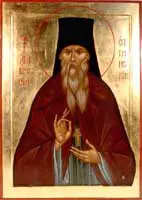
“Sinful thoughts continually disturb a man. But if he does not cooperate with them, then he is not guilty of them.”
+ St. Ambrose of Optina
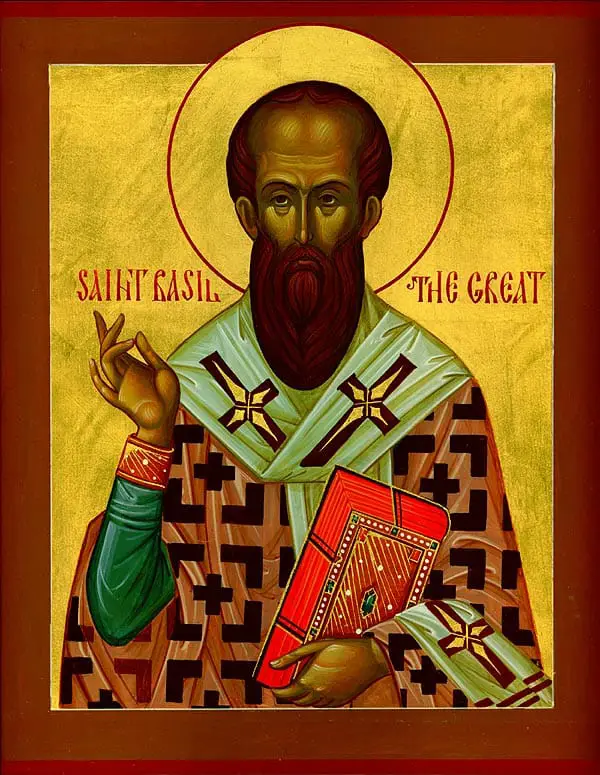
“Prayer is a request for what is good, offered by the devout of God. But we do not restrict this request simply to what is stated in words… We should not express our prayer merely in syllables, but the power of prayer should be expressed in the moral attitude of our soul and in the virtuous actions that extend throughout our life… This is how you pray continually — not by offering prayer in words, but by joining yourself to God through your whole way of life, so that your life becomes one continuous and uninterrupted prayer.”
—St. Basil the Great, Homily on the Martyr Julitta
“The primary lesson for life must be implanted in the soul from the earliest age. The primary lesson for children is to know the eternal God, the One Who gives everlasting life.”
— St. Clement
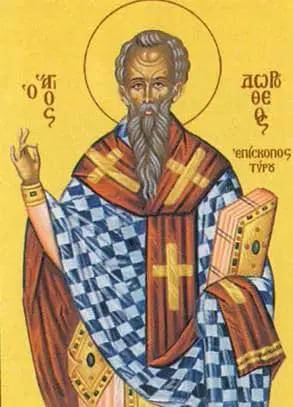
“Do not ask for love from your neighbor, for if you ask and he does not respond, you will be troubled. Instead show your love for your neighbour and you will be at rest, and so will bring your neighbour to love.”
— St. Dorotheos of Gaza

“As a handful of sand thrown into the ocean, so are the sins of all flesh as compared with the mind of God.”
— St. Isaac the Syrian

“If you practice an excellent virtue without perceiving the taste of its aid, do not marvel; for until a man becomes humble, he will not receive a reward for his labor. Recompense is given, not for labor, but for humility.”
— St. Isaac the Syrian

“Fathers and mothers: Go and lead your child by the hand into the church.”
— St. John Chrysostom
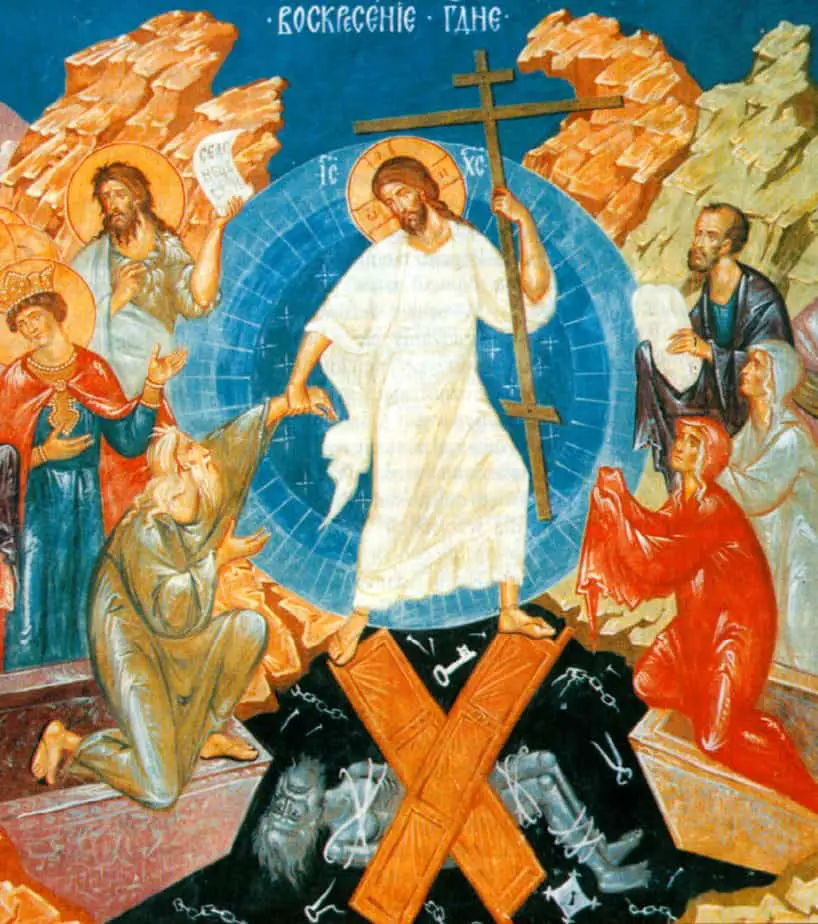
If anyone is devout and a lover of God, let him enjoy this beautiful and radiant festival.
If anyone is a wise servant, let him, rejoicing, enter into the joy of his Lord.
If anyone has wearied himself in fasting, let him now receive his recompense.
If anyone has labored from the first hour, let him today receive his just reward. If anyone has come at the third hour, with thanksgiving let him keep the feast.
If anyone has arrived at the sixth hour, let him have no misgivings; for he shall suffer no loss. If anyone has delayed until the ninth hour, let him draw near without hesitation. If anyone has arrived even at the eleventh hour, let him not fear on account of his delay. For the Master is gracious and receives the last, even as the first; he gives rest to him that comes at the eleventh hour, just as to him who has labored from the first. He has mercy upon the last and cares for the first; to the one he gives, and to the other he is gracious. He both honors the work and praises the intention.
Enter all of you, therefore, into the joy of our Lord, and, whether first or last, receive your reward. O rich and poor, one with another, dance for joy! O you ascetics and you negligent, celebrate the day! You that have fasted and you that have disregarded the fast, rejoice today! The table is rich-laden; feast royally, all of you! The calf is fatted; let no one go forth hungry!Let all partake of the feast of faith.
Let all receive the riches of goodness.
Let no one lament his poverty, for the universal kingdom has been revealed.
Let no one mourn his transgressions, for pardon has dawned from the grave.Let no one fear death, for the Saviour’s death has set us free.
He that was taken by death has annihilated it! He descended into hades and took hades captive! He embittered it when it tasted his flesh! And anticipating this Isaiah exclaimed, “Hades was embittered when it encountered thee in the lower regions.” It was embittered, for it was abolished! It was embittered, for it was mocked! It was embittered, for it was purged! It was embittered, for it was despoiled! It was embittered, for it was bound in chains!
It took a body and, face to face, met God! It took earth and encountered heaven! It took what it saw but crumbled before what it had not seen!
“O death, where is thy sting? O hades, where is thy victory?
”Christ is risen, and you are overthrown!
Christ is risen, and the demons are fallen!
Christ is risen, and the angels rejoice!
Christ is risen, and life reigns!
Christ is risen, and not one dead remains in a tomb!
For Christ, being raised from the dead, has become the First-fruits of them that slept.
To him be glory and might unto ages of ages. Amen.
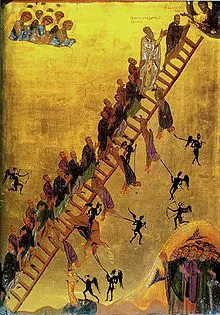
“Fire and water are incompatible; and so is judging others in one who wants to repent. If you see someone falling into sin at the very moment of his death, even then do not judge him, because the Divine judgment is hidden from men. Some have fallen openly into great sins, but they have done greater good deeds in secret; so their critics were tricked, getting smoke instead of the sun.”
+ St. John Climicus, Ladder of Divine Ascent, Step 10.8
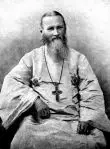
“A man who is wrathful with us is a sick man; we must apply a plaster to his heart – love; we must treat him kindly, speak to him gently, lovingly. And if there is not deeply-rooted malice against us within him, but only a temporary fit of anger, you will see how his heart, or his malice, will melt away through your kindness and love – how good will conquer evil. A Christian must always be kind, gracious, and wise in order to conquer evil by good.”
–St. John of Kronstadt, “My Life in Christ”
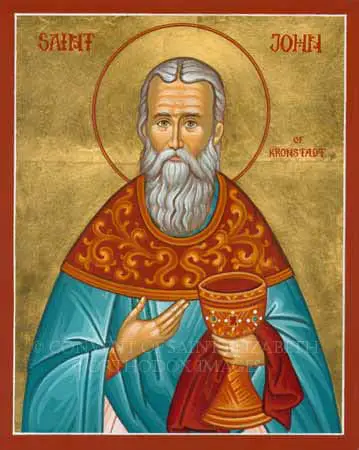
“People say that if you feel no inclination to pray, it is better not to pray; but this is crafty, carnal sophistry. If you only pray when you are inclined to, you will completely cease praying; this is what the flesh desires. ‘The Kingdom of Heaven Suffereth violence.’ You will not be able to work out your salvation without forcing yourself.”
— St. John of Kronstadt
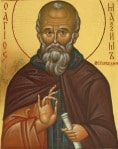
“Nothing created by God is evil. It is not food that is evil but gluttony, not the begetting of children but unchastity, not material things but avarice, not esteem but self-esteem. It is only the misuse of things that is evil, not the things themselves.”
–St. Maximos the Confessor
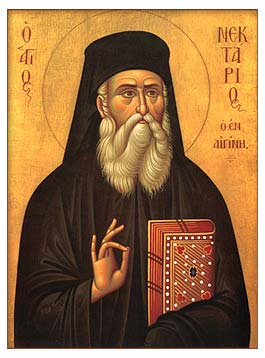
“Do not think that you have a right to complain when your prayers are not answered. God fulfills your desires in a manner that you do not know.”
— St. Nektarios of Aegina

“For to sin, even in the case of those who are most righteous, is easy, while repentance is not easy for everyone because death is near; and even before death comes there is despair. It is good, then, not to fall; or, if we fall, to rise again. And should we fall, we should not despair and so estrange ourselves from the Lord’s love. For if He so chooses, He can deal mercifully with our weakness. Only we should not cut ourselves off from Him or feel oppressed when constrained by His commandments, nor should we lose heart when we fall short of our goal. Rather, let us learn that a thousand years in the sight of the Lord are but a single day, and a single day is as a thousand years (cf. Ps. 90:4). Let us be neither hasty nor tardy, and let us be always ready to make a new start. If you fall, rise up. If you fall again, rise up again. Only do not abandon your Physician, lest you be condemned as worse than a suicide because of your despair. Wait
on Him, and He will be merciful, either reforming you, or sending you trials, or through some other provision of which you are ignorant.”
+ St. Peter of Damaskos, “Twenty-Four Discourses,” VIII Mortification of the Passions, The Philokalia: The Complete Text (Vol. 3)
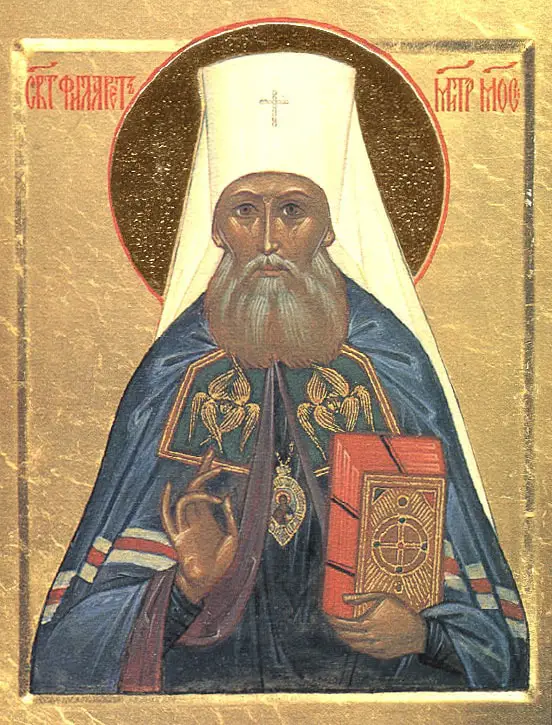
“Every Christian should find for himself the imperative and incentive to become holy. If you live without struggle and without hope of becoming holy, then you are Christians only in name and not in essence. But without holiness, no one shall see the Lord, that is to say they will not attain eternal blessedness. It is a trustworthy saying that Jesus Christ came into the world to save sinners (1 Tim. 1:15). But we deceive ourselves if we think that we are saved while remaining sinners. Christ saves those sinners by giving them the means to become saints.”
— St. Philaret of Moscow, Sermon of September 23, 1847

“To have faith in Christ means more than simply despising the delights of this life. It means we should bear all our daily trials that may bring us sorrow, distress, or unhappiness, and bear them patiently for as long as God wishes and until He comes to visit us. For it is said, ‘I waited on the Lord and He came to me.’”
— St. Symeon the New Theologian
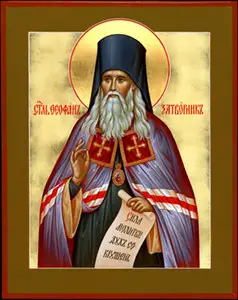
Since the enemy watches you constantly, waiting for an opportunity to sow evil in you, be doubly watchful over yourself, lest you fall in the nets spread for you. As soon as he shows you some fault in your neighbor, hasten to repel this thought, lest it take root in you and grow. Cast it out, so that no trace is left in you, and replace it by the thought of the good qualities you know your neighbor to possess, or of those people generally should have. If you still feel the impulse to pass judgment, add to this the truth that you are given no authority for this and that the moment you assume this authority you thereby make yourself worthy of judgment and condemnation, not before powerless men, but before God, the all-powerful Judge of all. This reversal of thoughts is the strongest means, not only for repelling accidental critical thoughts, but also for completely freeing yourself of this vice.
— From Unseen Warfare, St. Theophan the Recluse and St. Nicodemus of the Holy Mountain
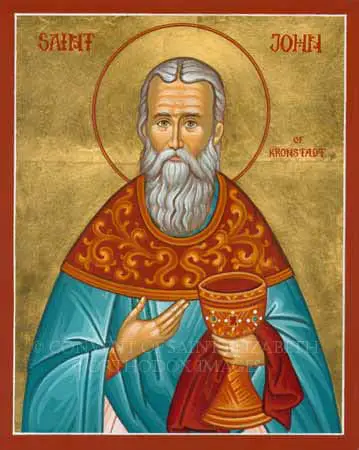
“The Comforter, the Holy Spirit, who fills the whole universe, passes through all believing, meek, humble, good, and simple human souls, dwelling in them, vivifying and strengthening them. He becomes one spirit with them and everything to them – light, strength, peace, joy, success in their undertakings, especially in a pious life, and everything good – “going through all understanding, pure and most subtle spirits” (Wisdom of Solomon vii, 23). “We have been all made to drink into one Spirit” (I Cor. xii.13). All pious people are filled with the Spirit of God similarly as a sponge is filled with water.”
+ St. John of Kronstadt, My Life in Christ [paperback] or [hardback]
You don’t need a Kindle device to read the Kindle version of this book, which is available a very reduced cost. Try Amazon’s FREE Kindle Cloud Reader app for your computer, phone, or tablet.